
EVOLVING QUICK SERVICE FOR THE FUTURE VIRTUAL DINING CONCEPTS COFOUNDER ROBBIE EARL IS PUSHING HIS COMPANY INTO THE FUTURE AND MAKING A STAMP IN THE TECHNOLOGY SEGMENT. Where Do Concessions Go Next? P. 34 Krystal’s New Evolution P. 42 PLUS: The industry’s next generation brings innovation to the forefront. 25 YOUNG LEADERS TO WATCH | P. 18 |
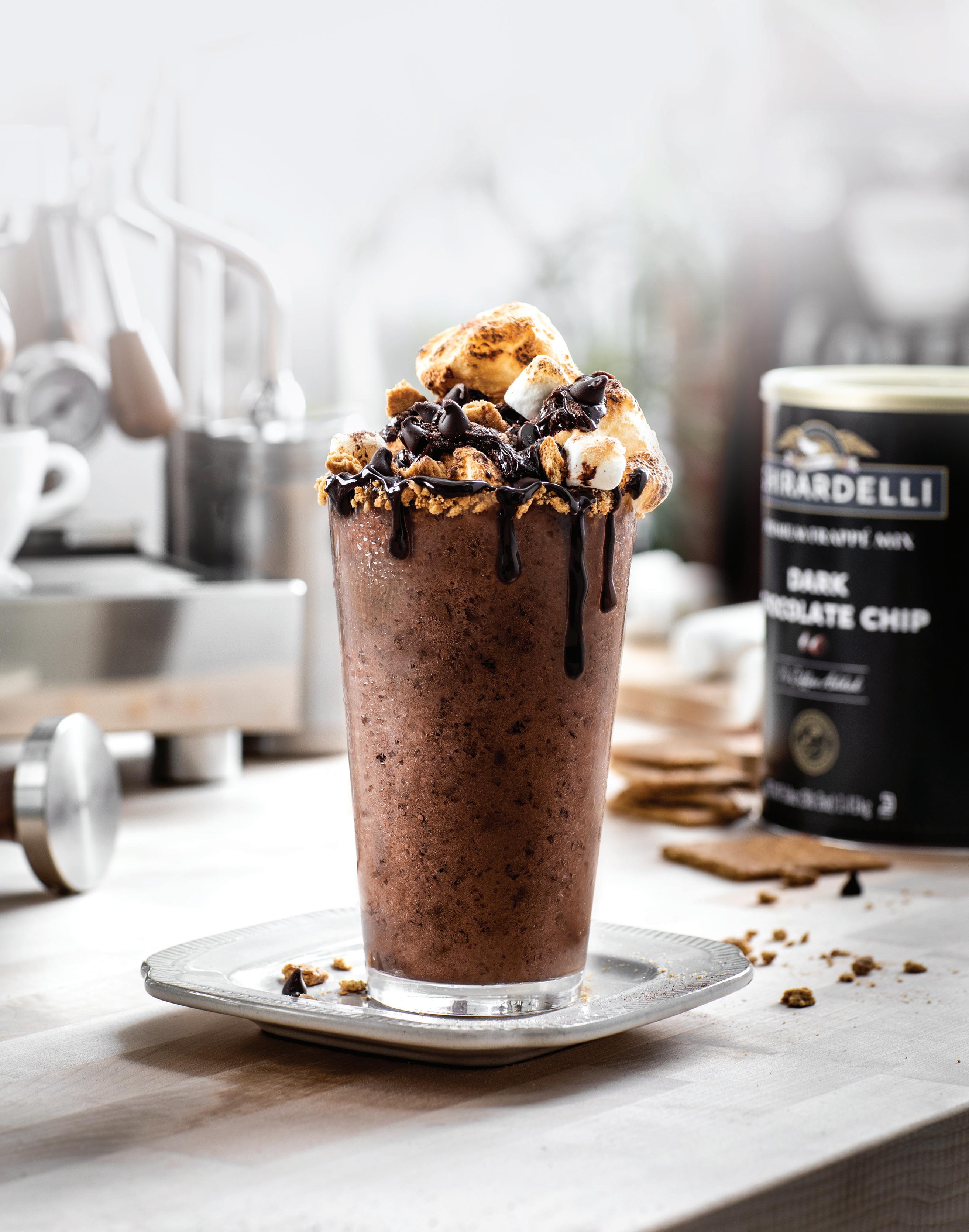


Scan to learn more. Crafted with rich dutched cocoa and real milk powder, Dark Chocolate Chip Frappé Mix features premium chocolate chips perfected by Ghirardelli for an extra bold chocolate experience. Simply add your signature ingredients, blend and impress. Order your FREE samples at 800.877.9338 or professionalproducts@ghirardelli.com Bold FROM BEAN TO CHIP TO BEVERAGES GROW YOUR SALES WITH GHIRARDELLI BRAND POWER ©2023 Ghirardelli Chocolate Company
The






 BY SATYNE DONER
BY SATYNE DONER
Smoothie Success Doesn't Rest
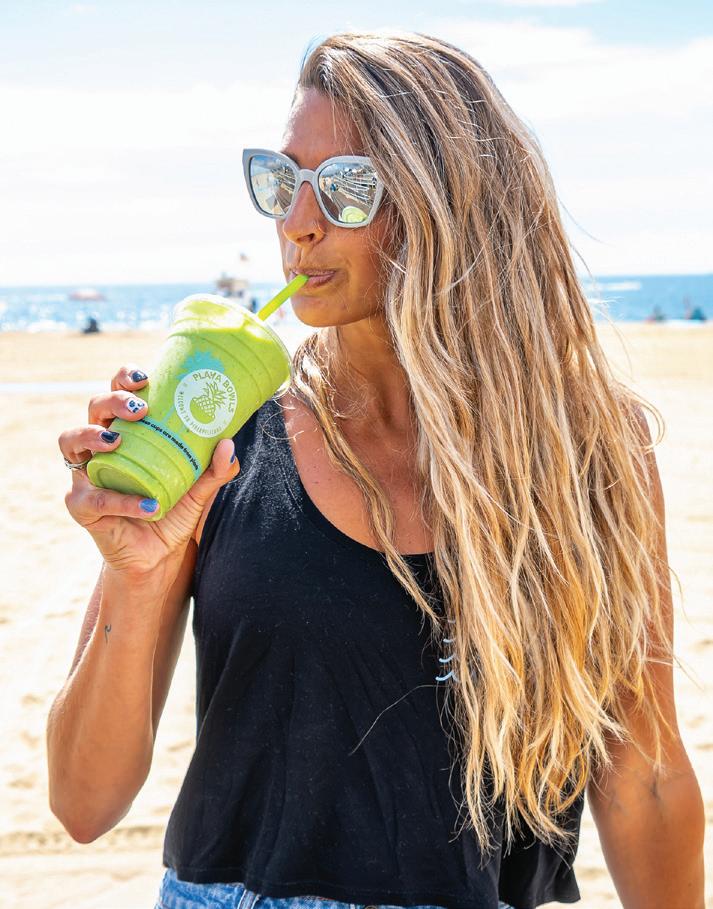
The segment is filling with competitors ready to grow.


 BY SAM DANLEY
BY SAM DANLEY
The emerging fast casual wants to put Korean cuisine on a national stage.
BY
SAM
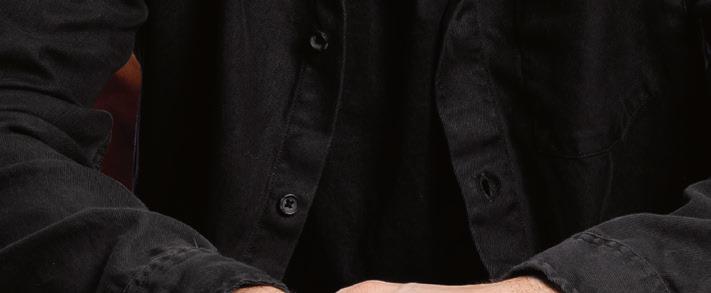
 DANLEY
DANLEY

The Red Chickz founder tells his journey from Iranian immigrant to rising restaurateur.




June ON THE COVER Virtual Dining Concepts co-founder Robbie Earl is always on the cusp of finding innovation. PHOTOGRAPHY: VIRTUAL DINING CONCEPTS RICH POLK NEWS 16 FRANCHISE FORWARD So You Want to Be a Franchisor?
franchisees
learning what it’s like to run a brand from the top.
DONER 61 INNOVATE
Ghost
Some
are
BY SATYNE
Chipotle Goes
restaurant
leader taps into one of the industry’s biggest trends.
11
IDEAS
INSIGHT
FRESH
14
Cupbop
ONES TO WATCH
64
TO FINISH
Lalehzarian
START
Shawn
DEPARTMENTS QSR / LIMITED-SERVICE,UNLIMITEDPOSSIBILITIES TABLE OF CONTENTS JUNE 2023 #304 FEATURES VIRTUAL DINING CONCEPTS RICH POLK, PLAYA BOWLS, DICKEY'S BARBECUE PIT 2 BRANDED CONTENT 4 EDITOR’S LETTER 7 SHORT ORDER 63 ADVERTISER INDEX 18 25 Young Leaders to Watch BY QSR STAFF The food and beverage sector is filled with youthful bright minds eager to make a significant impact. 34 Concessions of The Future BY SAM DANLEY Accelerated by COVID, multiple tech upgrades are boosting the fan experience. 42 Loud and Krystal Clear BY BEN COLEY After decades of operations, the legacy restaurant is finding a new voice. QSR is a registered trademark of WTWH Media, LLC. QSR is copyright © 2023 WTWH Media, LLC. All rights reserved. The opinions of columnists are their own. Publication of their writing does not imply endorsement by WTWH Media, LLC. Subscriptions (919) 945-0704. www.qsrmagazine.com/subscribe. QSR is provided without charge upon request to individuals residing in the U.S. meeting subscription criteria as set forth by the publisher. AAM member. All rights reserved. No part of this magazine may be reproduced in any fashion without the express written consent of WTWH Media, LLC. QSR (ISSN 1093-7994) is published monthly by WTWH Media, LLC, 1111 Superior Avenue Suite 2600, Cleveland, OH 44114. Periodicals postage paid at Cleveland, OH and at additional mailing offices. POSTMASTER: Send address changes to QSR, 101 Europa Drive, Suite 150, Chapel Hill, NC 27517-2380. 25 YL 2023 YOUNG LEADERS TO WATCH 18/ THE INDUSTRY’S FUTURE IS IN GOOD HANDS WITH SEVERAL YOUNG STARS, INCLUDING DICKEY’S BARBECUE PIT'S SIMONE SMITH ( BOTTOM RIGHT ), PLAYA BOWLS’ ABBY TAYLOR ( TOP RIGHT ), AND VIRTUAL DINING CONCEPTS’ ROBBIE EARL. www.qsrmagazine.com | QSR | JUNE 2023 1
EDITORIAL
EDITORIAL DIRECTOR

Danny Klein dklein@wtwhmedia.com

QSR EDITOR


Ben Coley bcoley@wtwhmedia.com
FSR EDITOR

Callie Evergreen cevergreen@wtwhmedia.com
ASSOCIATE EDITOR


Sam Danley sdanley@wtwhmedia.com
CUSTOM MEDIA STUDIO
DIRECTOR OF CUSTOM CONTENT Peggy Carouthers pcarouthers@wtwhmedia.com
ASSOCIATE EDITOR, CUSTOM CONTENT




Charlie Pogacar cpogacar@wtwhmedia.com


ASSOCIATE EDITOR, CUSTOM CONTENT Kara Phelps kphelps@wtwhmedia.com
ART & PRODUCTION
ART DIRECTOR Tory Bartelt tbartelt@wtwhmedia.com
GRAPHIC DESIGNER Erica Naftolowitz enaftolowitz@wtwhmedia.com
PRODUCTION MANAGER
Mitch Avery mavery@wtwhmedia.com
SALES & BUSINESS DEVELOPMENT
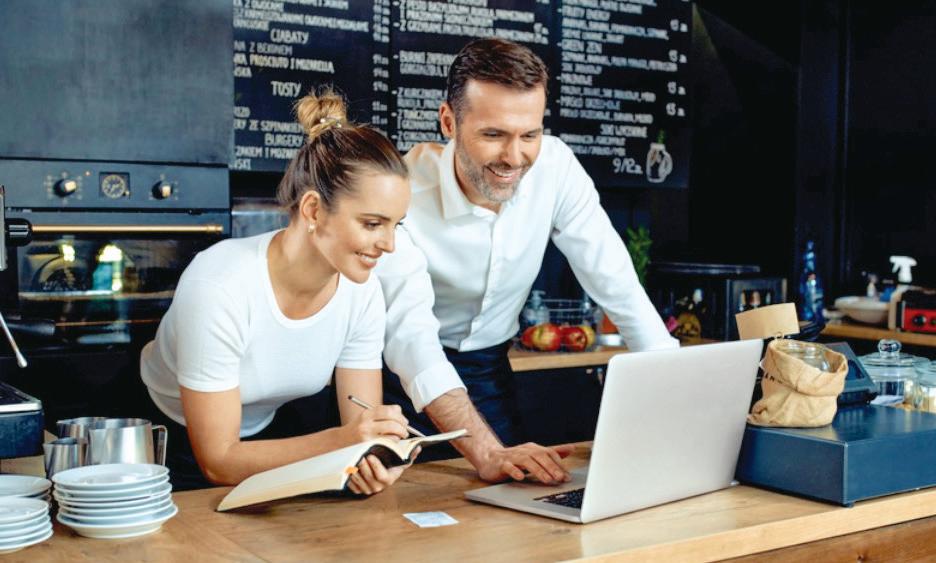









GROUP PUBLISHER
Greg Sanders gsanders@wtwhmedia.com
NATIONAL SALES DIRECTOR Eugene Drezner edrezner@wtwhmedia.com
919-945-0705
NATIONAL SALES MANAGER Edward Richards erichards@wtwhmedia.com 919-945-0714

NATIONAL SALES MANAGER Amber Dobsovic adobsovic@wtwhmedia.com 919-945-0712
NATIONAL SALES MANAGER
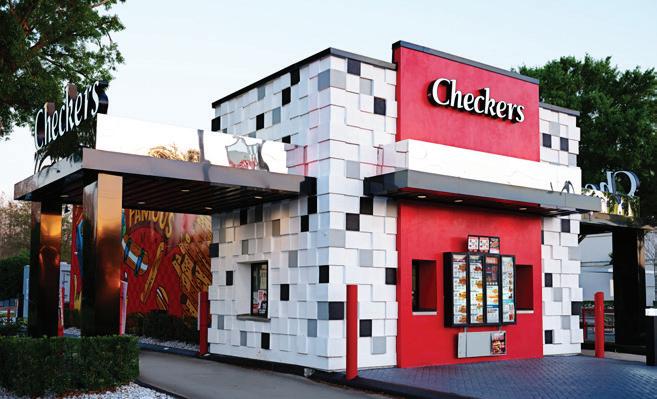







John Krueger jkrueger@wtwhmedia.com
919-945-0728
CUSTOMER SERVICE REPRESENTATIVE Tracy Doubts tdoubts@wtwhmedia.com
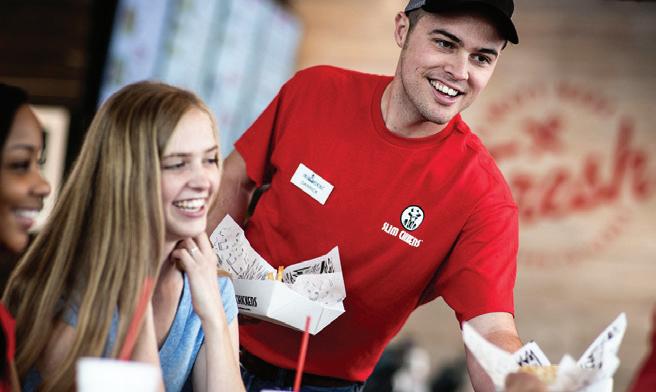


919-945-0704
FOUNDER Webb C. Howell
ADMINISTRATION
919-945-0704 / www.qsrmagazine.com/subscribe
QSR is provided without charge upon request to individuals residing in the U.S. who meet subscription criteria as set forth by the publisher.



REPRINTS
The YGS Group 800-290-5460 FAX : 717-825-2150 qsrmagazine@theygsgroup.com www.qsrmagazine.com/reprints
Sponsored content in this magazine is provided to the represented company for a fee. Such content is written to be informational and non-promotional. Comments welcomed at sponsoredcontent@qsrmagazine.com.

FUNDING How Two Restaurants Secured Funding During Tough Times These resourceful establishments found ways to thrive despite headwinds.
BY BIZ2CREDIT ARTIFICIAL INTELLIGENCE How Operators Can Hit Growth Goals Faster Using AI Using AI and real-time technology to spot potential opportunities and issues.
BY LINEUP.AI FRANCHISING Checkers & Rally’s Expands with New Look and Franchise Incentives The brand plans to open upwards of 40 new restaurants this year with a modernized design.
BY CHECKERS & RALLY’S COMPLIANCE The Secret Weapon Helping Slim Chickens Uphold Brand Standards In a stage of rapid growth, the chicken brand relies on this solution to create consistent processes.
BY WISETAIL ONLINE SEE THESE STORIES AT QSRMAGAZINE.COM/SPONSORED
THIS ISSUE BRAND STORIES FROM QSR BRANDED CONTENT
SPONSORED
SPONSORED
SPONSORED
SPONSORED
IN
WTWH MEDIA LLC RETAIL, HOSPITALITY, AND FOOD GROUP FOOD SAFETY TODAY / FOOD SAFETY IS EVOLVING TO ENSURE RESTAURANT CUSTOMERS ARE PROTECTED IN A SHIFTING WORLD. 48 Modernizing Food Safety New advancements are responding to new challenges. 52 Keep It Simple How can brands ensure food safety during labor shortages? 56 A Strong Brand Reputation Consumers now expect food safety practices to be visible. 60 Key Players Here are the biggest names in the world of food safety. SmartChain / p. 47 SmartChain VENDOR RESOURCES / TRENDS / NEW PRODUCTS Chain Advancing Tech P48 Labor and Training P52 Visible Practices P56 Key Players P60 Food Safety Today Food safety is evolving to ensure restaurant customers are protected in a shifting world. /BY KARA PHELPS SPONSORED SECTION JUNE 2023 ADOBE STOCK CHECKERS & RALLY'S LINEUP.AI SLIM CHICKENS 2 JUNE 2023 | QSR | www.qsrmagazine.com




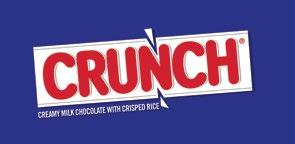

For exciting recipe ideas and to learn more about Ferrero Foodservice brands, visit www.ferrerofoodservice.com, or call (800) 408-1505 for more information. Ferrero S.p.A. © Ferrero 2023 Candy & Cookie Explosion Milkshakes
with Ferrero Dessert Inclusions, Keebler® Cookies & Keebler® Waffle Cones
Made
Youth is Power
The much-used phrase, “age is nothing but a number” is typically reserved for people who believe they’re being underestimated because they’re getting up there in years. The saying is just as appropriate for the younger crowd.
There are some pretty interesting examples throughout history. Mozart wrote his first symphony at 8 years old. Bumble founder Whitney Wolfe Herd became the world’s youngest female selfmade billionaire at 31 years old. Tiger Woods became the No. 1 ranked golfer at 21. Doogie Howser even finished medical school at 14. OK, that last one is fictional, but there is a point in saying all of this. The common thread among these folks is that the difference between improbable and achievable is a combination of talent, skill, luck, hard work, and dedication.
Food and beverage employment is often depicted as a transient career used to develop soft skills for other sectors. This is partially true. The segment does build character, but career ladders also exist. QSR has 25 examples proving as much in this issue.
Since 2018, our magazine has compiled a list of young stars in the restaurant industry who share a hunger to beat the odds. In what can sometimes feel like an unforgiving business with razor-thin margins—especially during the COVID era—the group has repeatedly risen above. This year’s collection features young leaders across operations, growth and development, marketing, technology, and franchising. It’s a diverse crowd, showing that innovation and perseverance is table stakes in any department.
Headlining the list is 29-year-old Robbie Earl, who cofounded Virtual

Dining Concepts, a company created out of necessity during the pandemic. The brand is well-known for combining culinary and celebrity, like Mariah’s Cookies ( Mariah Carey), Guy Fieri’s Flavortown Kitchen, and Robert Irvine’s American Heroes. One of the biggest hits among them is MrBeast Burger, which Earl played a significant role in formulating. The ghost concept is named after MrBeast, aka YouTube star Jimmy Donaldson. Earl nurtured the relationship and helped the brand go from virtual to brick-and-mortar last year in New Jersey’s American Dream shopping center.
Resumes for the rest are just as impressive. Thirty-two-year-old Abby Taylor, who traveled the world to surf, cofounded Playa Bowls, which now has more than 175 shops nationwide across 20 states. No stores closed during COVID and 250 more openings are planned in the next five years. Or how about 33-year-old KK Corporation president Kesuv Kash Aggarwal, who’s continuing his family’s legacy. His mother started it all in 1997 when she bought her first Subway restaurant, and now Aggarwal is leading 146 franchise stores.
The beauty of this annual list—and also the most difficult—is that QSR receives numerous nominations each year. And by rule, no one can appear on the list twice. This year being the sixth installment, we’ve highlighted 137 different young leaders in total. We know there are a lot more out there, and we promise to tell as many of their stories as we can in the future.
Ben Coley, Editor
QSR MAGAZINE
Restaurants are capable of nurturing young talent, and we have plenty of proof.
BCOLEY@WTWHMEDIA.COM
4 JUNE 2023 | QSR | www.qsrmagazine.com EDITOR’S LETTER


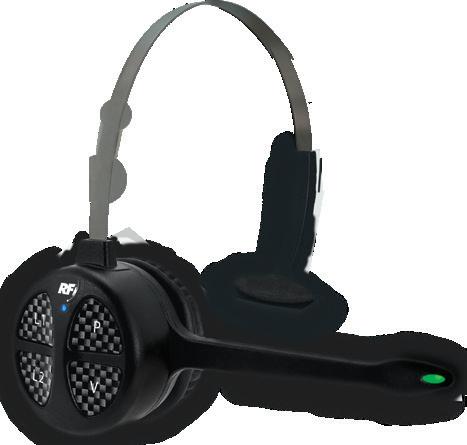





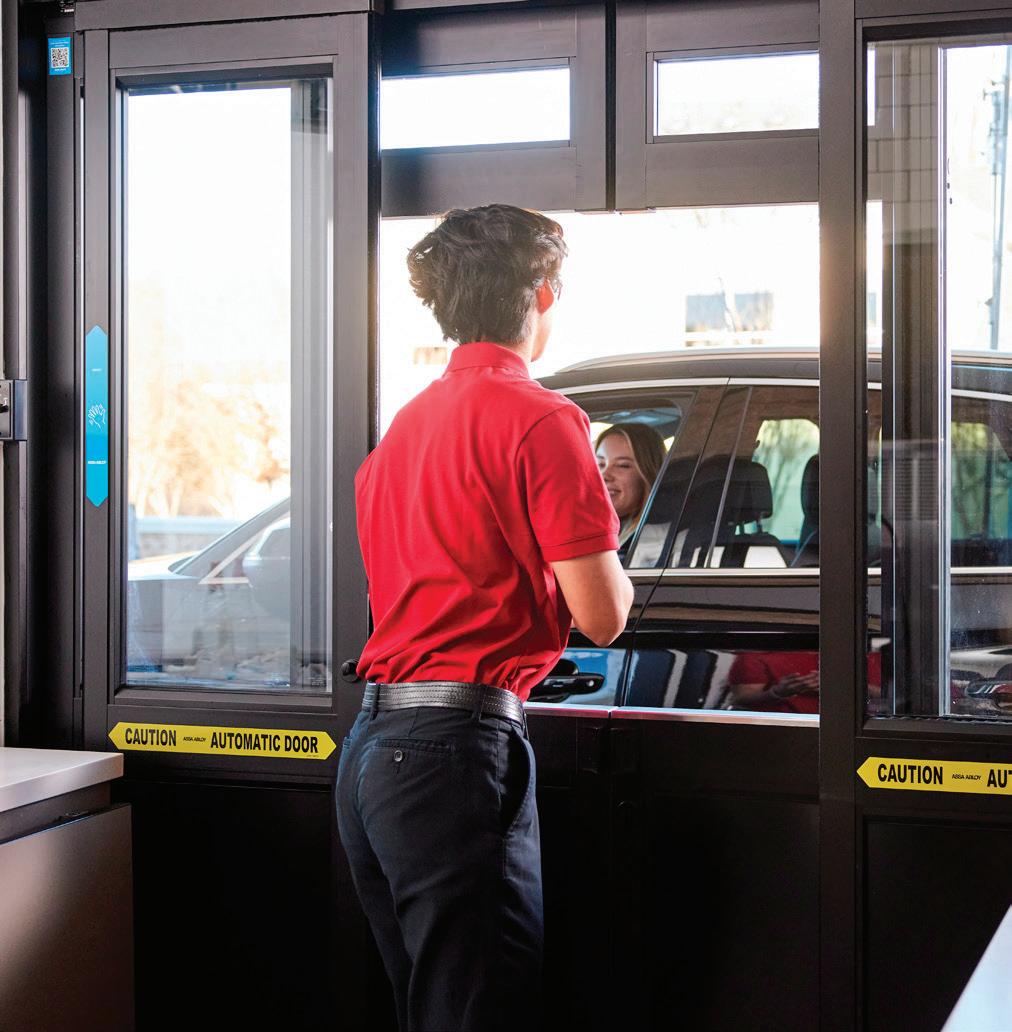
Increased Throughput for Maximum Efficiency Allow us to introduce the ASSA ABLOY SL500 Express door series. Designed to be used as either an automatic window or an automatic door, our patent-pending design helps maximize throughput, keeping your customers moving along. Learn more Contact Ross.Merkling@assaabloy.com or call 704-221-2068 assaabloyentrance.us
SHORT ORDER

Panera’s latest move wasn’t short on style.
Panera’s Fashion Statement

The sandwich chain launched its rst merchandising storefront.
IN MAY, PANERA ANNOUNCED its second MyPanera Week—a weeklong celebration of fan-favorite menu items.
As part of the festivities, the fast-casual giant debuted The Panera Shop, an online merchandise storefront where customers can purchase what the brand calls “Carb Couture.” The items are inspired by Panera's menu. Some examples include “Mac Drip” sweatshirts and pants and “Just Baked” baby onesies.
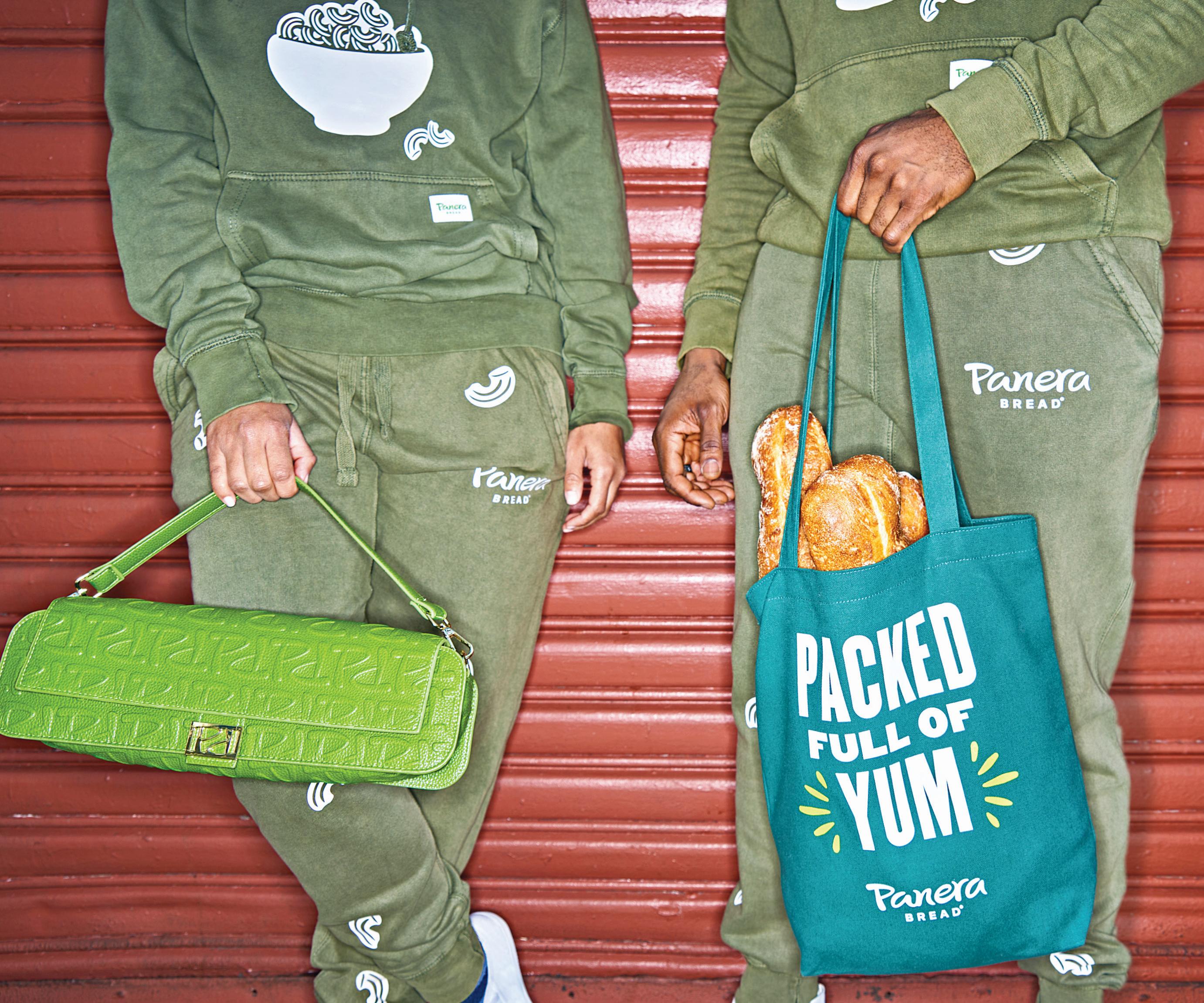
MyPanera loyalty members had exclusive access to the shop from May 1 to May 7, with all net profits from sales during this period donated to the Panera Bread Foundation. As of May, the rewards program had more than 52 million guests.
“MyPanera has always been focused on delivering personalized experiences and disruptive value to our guests,” said Eduaro Luz, the chain's chief brand and concept officer, in a statement.
PANERA NOAH FECKS www.qsrmagazine.com | QSR | JUNE 2023 7
Customers want convenience any way they can get it,
including from the sky. Flytrex, a drone delivery service that partners with retailers and restaurants to bring items directly to diners’ yards, caters to more than 140,000 suburban customers across Texas and North Carolina. It’s partnered with some of the bigger names in quick service, including Jersey Mike’s, Charleys Philly Steaks, and El Pollo Loco.
In late March, Flytrex released its 2022 Yardstick, a report detailing customer trends. The data highlights volume, types of items delivered, fastest times, and more.
• Favorite foods: SALADS AND SANDWICHES
• Top three dishes: FRIES, TURKEY SANDWICHES, AND BURRITO BOWLS
STATISTICS TO KNOW:
Flytrex delivered 85,000-plus items by drone across 21,350 orders in 2022. The average time from takeoff to delivery was 3 minutes and 32 seconds, and the fastest time from order to delivery was 12 minutes and 13 seconds. Flytrex experienced its busiest day on October 14, when it witnessed one order every fi ve minutes. The company had more than 4,000 unique users in 2022, a 765 percent increase year-over-year.
QUIRKY NOTES:
One consumer placed 532 drone orders in 2022. Another scheduled eight deliveries in one day. A third guest ordered coff ee 81 times throughout the year. Some other odd orders include: fi ve types of Girl Scout cookies, 12 types of macarons, four dozen large eggs, and four pints of ice cream. The largest order delivered was three tomato soups and one noodle soup, two cobb salads with chicken, two BLTs, and two-and-a-half cheese sandwiches.
CUSTOMER INTEREST:
Guests’ favorite food groups were sandwiches and salads, accounting for nearly one-fi fth (19.8 percent) of all orders. Chicken and wings were second at 18.5 percent. That was followed by Mexican food (12 percent), burgers (11.7 percent), retail and grocery (8 percent), coff ee, tea, and snacks (7.2 percent), Asian food (5.5 percent), and pizza (5.2 percent). An “other” category represented 12.2 percent.
COMMENTARY:
• Average Time from Takeoff to Delivery: 3 MINUTES AND 32 SECONDS
The top grocery items ordered were fresh produce (36.3 percent), dairy and eggs (9.2 percent), pantry (8.7 percent), sweets and snacks (8.3 percent), frozen goods (7.7 percent), beverages (6.8 percent), bread and bakery (5.1 percent), refrigerated goods (3.7 percent), and meat and seafood (3.5 percent). The “other” category accounted for 10.7 percent.
The top three dishes via the Flytrex app were fries, turkey sandwiches, and burrito bowls, and the top three packaged items delivered were bananas, sports drinks, and milk.
“ The drone delivery industry as a whole has progressed immensely over the past year, and this snapshot is a testament to its soaring future,” said Yariv Bash, CEO and cofounder of Flytrex, in a statement. “We strive to provide the utmost convenience and satisfaction to everyone who uses our service, and we’re thrilled to see that our customers are as delighted and excited about drone delivery as we are. Building on this momentum, we look forward to expanding our service and eventually providing the same level of quality practicality across suburban America.”
ADOBE STOCK CREATIVETEAM
8 JUNE 2023 | QSR | www.qsrmagazine.com SHORT
ORDER

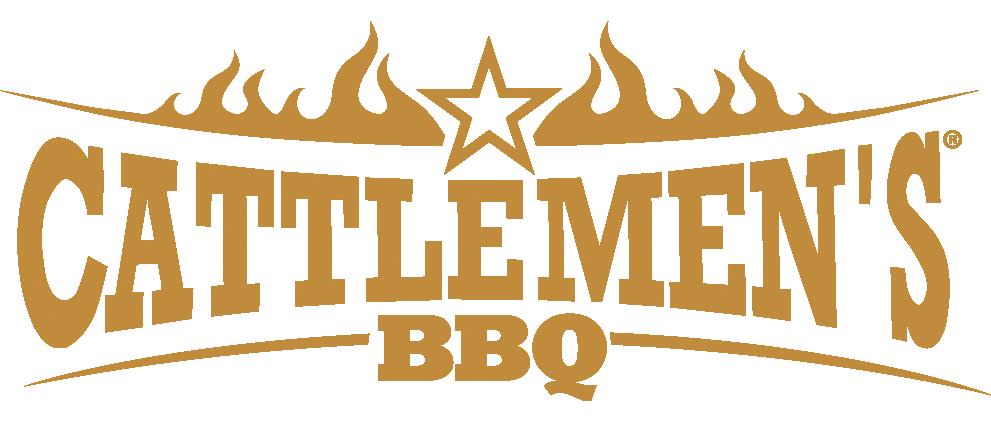

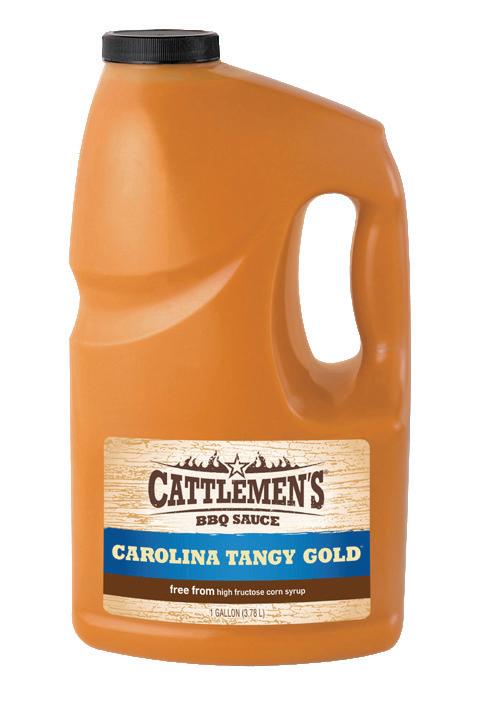
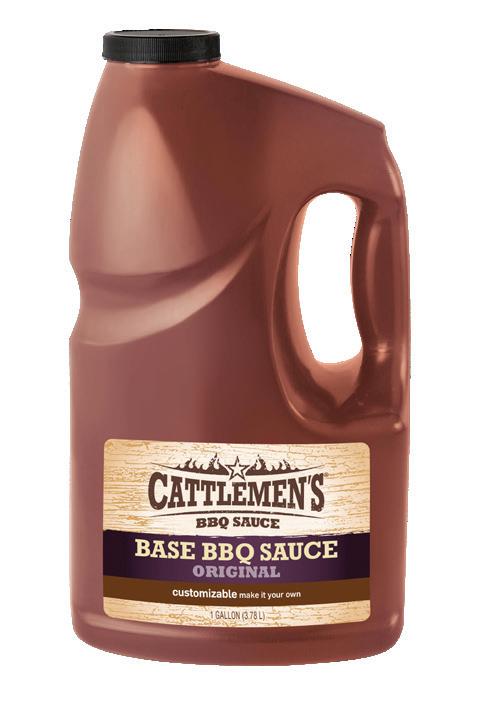

TO LEARN MORE ABOUT CATTLEMEN’S® BBQ SAUCE, VISIT McCORMICKFORCHEFS.COM/CATTLEMENS BUILT FOR YOUR BACK OF HOUSE, NOT YOUR BACKYARD BETTER COVERAGE & CLING NO ARTIFICIAL FLAVORS NO STARCHES OR FILLERS MEET CATTLEMEN’S® BBQ SAUCE








































Contact us to Learn More www.nationallps.com 312-819-4900 info@nationallps.com We Help Restaurants Enhance Remote Security and Ops Auditing Capabilities Combine CCTV with POS Data to Improve Investigations Speed up Evidence Sharing and Case Creation Reduce False Alarms Through Video Verification Replace Physical Keys with Electronic Access Control Improve Food Safety with Sanitation Auditing
fresh ideas
Smoothie Success Doesn’t Rest
BY SAM DANLEY
The demand for smoothies is higher than ever, at least that’s what dollar signs say.


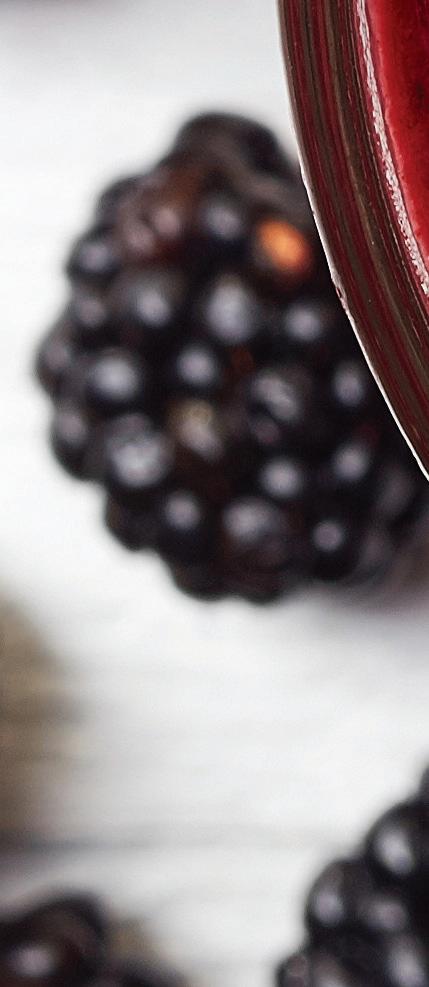
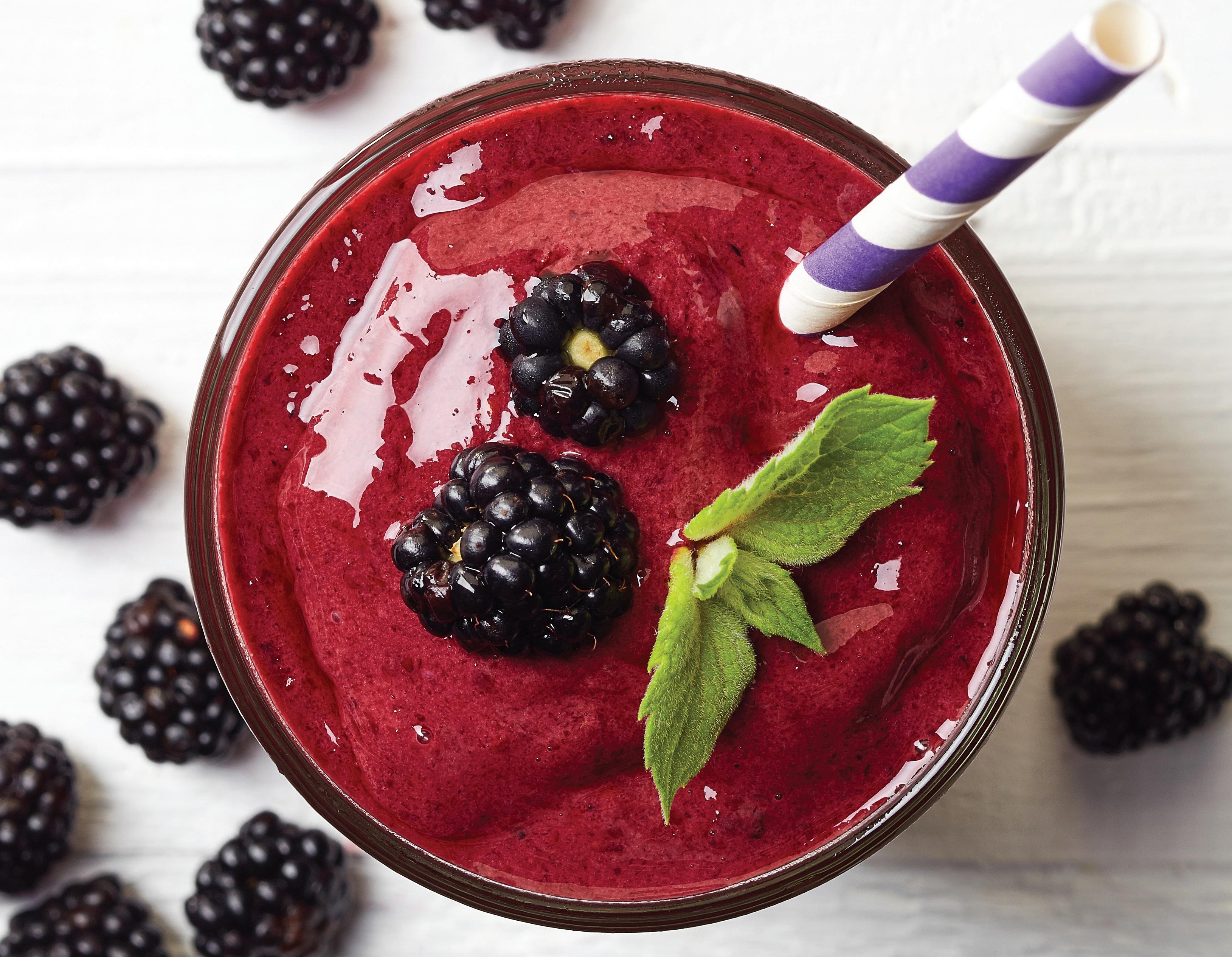
The market, valued at $27.2 billion in 2023, is expected to reach $52.5 billion in 10 years, according to research firm Fact.

MR. That’s a CAGR of 6.8 percent.

Smoothie King was well-positioned to capitalize on the COVIDdriven health and wellness craze. In 2019 the company completed a years-long menu overhaul that saw it swap out nearly every ingredient with better-for-you options.

Coming out of the pandemic in 2021, same-store sales were up 16.5 percent. Chief marketing officer Marianne Radley says the legacy smoothie chain has managed to maintain its momentum since, but it isn’t resting on its laurels. As the category matures and the competition from smaller players intensifies, Smoothie



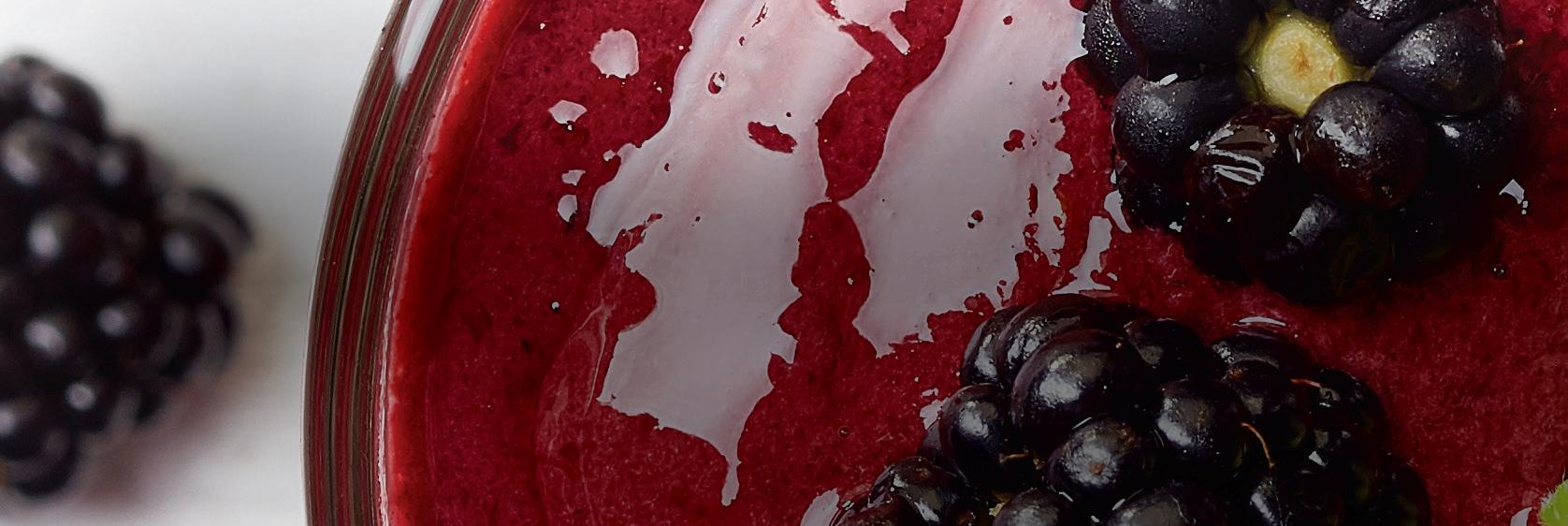


King ramped up innovation on multiple fronts.

It recently embarked on its largest menu launch. The company this spring debuted a new smoothie bowl platform, serving up menu items with a spoon instead of a straw for the first time in its 50-year history. It also opened its first drive-thru-only prototype. The design stands at 800 square feet and features a traditional drive-thru lane on one side of the building, with a lane dedicated to online ordering and third-party delivery on the other.


Smoothie King last year opened 77 new stores and grew its footprint to more than 1,400 units. It also signed franchise and area development agreements to add over 160 stores to new and existing markets. It plans to open at least 100 new locations this year, and Radley says the drive-thru-only design will help fuel that ongoing national expansion.
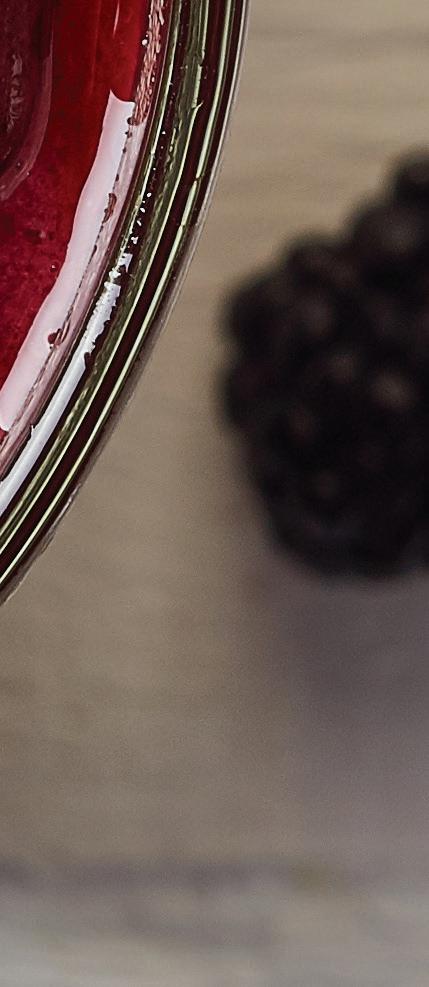
ADOBE STOCK / BAIBAZ
| GROWTH AND DEVELOPMENT |
From menu updates to new store prototypes, innovation is key to winning in the increasingly crowded segment.
THERE IS NO SHORTAGE OF GROWTH OPPORTUNITIES IN THE SMOOTHIE CATEGORY. www.qsrmagazine.com | QSR | JUNE 2023 11
“We’re seeing a lot of success with that model,” she says. “It’s all about providing ease of access for our guests. We’re spending a lot of time making sure that our models are really optimizing the off-premises business and optimizing digital sales.”
Consumer demand for convenience also is shaping prototype innovation at Tropical Smoothie Cafe. The company last year opened its first double drivethru location. Like Smoothie King’s latest model, the design includes a designated lane for delivery and digital orders, which now account for more than a third of the brand’s total sales.
Digital is a top priority for Tropical Smoothie Cafe, which has more than 1,200 locations across 44 states. It recently invested in upgraded app technology, enhanced mobile ordering capabilities, and a new loyalty program to elevate its digital experience.
Chief marketing officer Deborah von Kutzleben says the company is working with franchisees to develop more double drive-thrus, and it’s exploring additional prototypes that will cater to the growing strength across digital channels.
“How can we get people their smoothies as quickly and as seamlessly as possible? That’s always at the forefront of our minds,” she says. “At first blush, customers might not think a smoothie would be a great experience from a delivery perspective, but we really stand by how it holds up to time.”
Tropical Smoothie Cafe opened 158 stores last year, the highest number of new cafe openings for the brand in a single year. It also achieved its 11th consecutive year of same-store sales growth. While much of that growth can be attributed to the namesake beverage’s health halo, the company has made a point to balance health with indulgence. From functional smoothies to dessert-inspired blends that satisfy sweet cravings, a steady stream of LTOs has helped the brand stay relevant with a broad base of customers.
Despite its name, von Kutzleben says the company doesn’t see itself competing squarely in the smoothie space. It also offers a robust food menu centered around flatbreads, wraps, sandwiches, and salads.
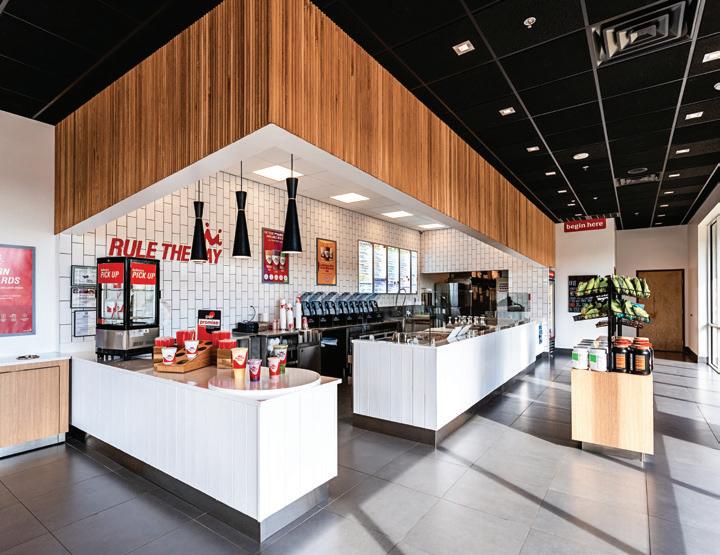
“We know our guests are cross-shopping a lot of more mainstream [quick-service] and fast-casual brands, so we sort of sit in between all of them,” she says.
An all-day breakfast menu is a key differentiator. Earlier this year the company bolstered its breakfast menu with new morningcentric flatbreads and smoothies, which helped drive an increase in traffic for the daypart.
Main Squeeze Juice Co. also is aiming to bolster its breakfast business. Around 70 percent of the brand’s revenue comes from juices and smoothies, and much of that business is lunch driven.
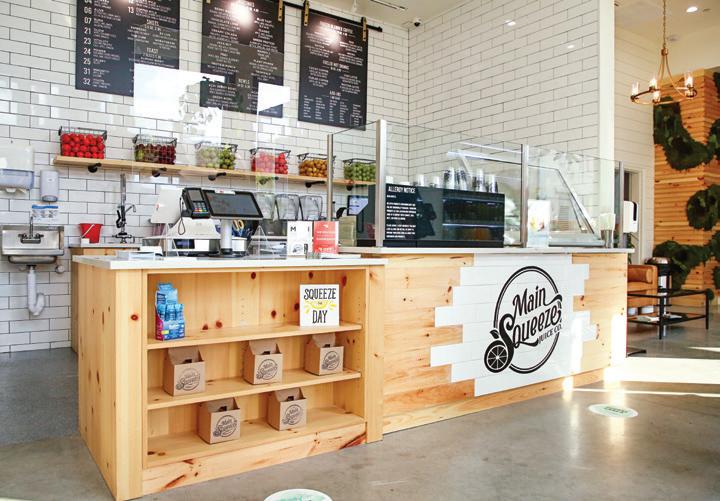
“Our challenge is being able to educate that we have something other than juices and smoothies,” says chief operating officer Julie Canseco. “That means maximizing our lunch by sampling things out, so people are primed to come back for breakfast later. We’re really focused on that 7 a.m. to 9 a m. window—think overnight chia seed pudding and different types of breakfast wraps. We’re also looking at making bars out of our juice pulp to really make a more robust breakfast daypart program.”
Main Squeeze is a newer player in the smoothie space. It opened its first store in New Orleans in 2017. Since then, it has expanded to 28 units throughout the South, with around 60 locations currently in development. The company’s footprint almost doubled this spring when it acquired Tennessee-based I Love Juice Bar, a 23-unit concept offering a similar selection of juices, bowls, and smoothies.
Canseco says the current environment, marked by inflation and economic uncertainty, makes growing through acquisitions a better option. The company is continuing to explore opportunities to purchase similar concepts and expand into markets where it can convert existing stores into Main Squeeze locations.
“Mom and pop juice bars have really struggled lately because the costs have been so out of whack. They don’t have buying power and they don’t have any leverage. It’s just a lot harder to make a fresh product,” she says. “Second-generation sites are everywhere, and they’re already built for this.”
The deal with I Love Juice Bar was struck with Conscious Growth Capital, an investment firm that first partnered with Main Squeeze last summer to fast-track franchise sales and real estate development to scale nationally. Following the investment, Main Squeeze inked a 30-unit development deal with an operator in Arizona and opened new locations in Texas and Missouri.

Canseco says faster and more accurate service will help improve unit-level performance and position the brand for longterm success.
“The problem is that when you’re making products as fresh as we are, that could mean three to five minutes for a ticket,” she says. “But we know the faster we can make our times, the more frequently people will visit us.”
SMOOTHIE KING, TROPICAL SMOOTHIE CAFE, MAIN SQUEEZE JUICE CO.
| GROWTH AND DEVELOPMENT |
Sam Danley is the associate editor of QSR. He can be reached at sdanley@wthwmedia.com.
12 JUNE 2023 | QSR | www.qsrmagazine.com fresh ideas
SMOOTHIE KING, TROPICAL SMOOTHIE CAFE, AND MAIN SQUEEZE JUICE CO. ARE ALL EXPERIENCING FRANCHISE SUCCESS.



Cupbop
With a convenient take on a trendy cuisine, the emerging brand aims to become the first national Korean quick-service chain.
BY SAM DANLEY
Kwon gave Song a call and pitched himself as a partner. He says it was evident the demand for the brand was there, but Cupbop was struggling to “take things to the next level.” It had grown to 10 locations while he was in New York, but he knew he could help it expand further. So, he left the finance world, purchased equity in the company, and got to work developing a strategy that would enable the business to scale efficiently.
Early on, Kwon decided to pivot from food trucks and channel all of the company’s resources toward brick-and-mortar restaurants. He says Cupbop had to dial back on growth to position itself for future success. That meant foregoing aggressive development goals to focus on the fundamentals.
“My priority is never store count,” Kwon says. “What really makes a brand special is the inherent demand you can generate, and that comes down to AUVs, margin profiles, and same-store sales.”

FOUNDERS: Junghun Song
HEADQUARTERS: Salt Lake City, Utah
YEAR STARTED: 2013
ANNUAL SALES: ~$40 million (systemwide)

TOTAL UNITS: 47 (U.S. only)
FRANCHISED UNITS: 19 (U.S. only)
AMONG THE COUNTRY’S TOP 50 QUICKSERVICE chains, Panda Express stands out as the only Asian concept. Dok Kwon believes there’s room for more, and he wants Cupbop to be next. The emerging brand is on a mission to be the first Korean-inspired fast-casual chain to go national.
Kwon joined the Korean barbecue concept as a co-owner and chief operating
officer in 2020, after working as an investment banker and hedge fund manager in New York City. He’d spent the better part of a decade on Wall Street and was “itching for something new.” As he was plotting his next move, he remembered Cupbop, a food truck he frequented while living in Salt Lake City.
When fellow Korean immigrant Jung Song first started serving up Korean barbecue under the Cupbop banner in 2013, Kwon was one of the earliest fans.


“One thing I knew right off the bat, before I even joined, was that the brand is naturally very scalable,” Kwon says. “That has to do with the fact that it started with a food truck, where you can run in very small spaces with only a few people, and where the operations have to be extremely simple.”
He isn’t the only former fan that’s helping Cupbop grow its footprint. Not long after Song opened his food truck, he met a pair of Indonesian students studying at the University of Utah. They struck up a partnership, and the company now has more than 150 locations throughout the Southeast Asian country.
Stateside, the company has taken a measured approach to growth. It hasn’t raised any money and has grown through organic cash flow, building one store at a time. When Kwon joined, Cupbop had a sole franchisee that had been grandfathered in since 2017. Despite a steady stream of inquiries from outside operators, he resisted opening the brand up for additional franchising opportunities.

“One thing I learned as an investor is that a lot of great companies fail when they start growing for

CUPBOP
DEPARTMENT ONES TO WATCH CONTINUED ON PAGE 62
14 JUNE 2023 | QSR | www.qsrmagazine.com
Junghun Song (left) and Dok Kwon have big plans for the Korean fast-casual segment.
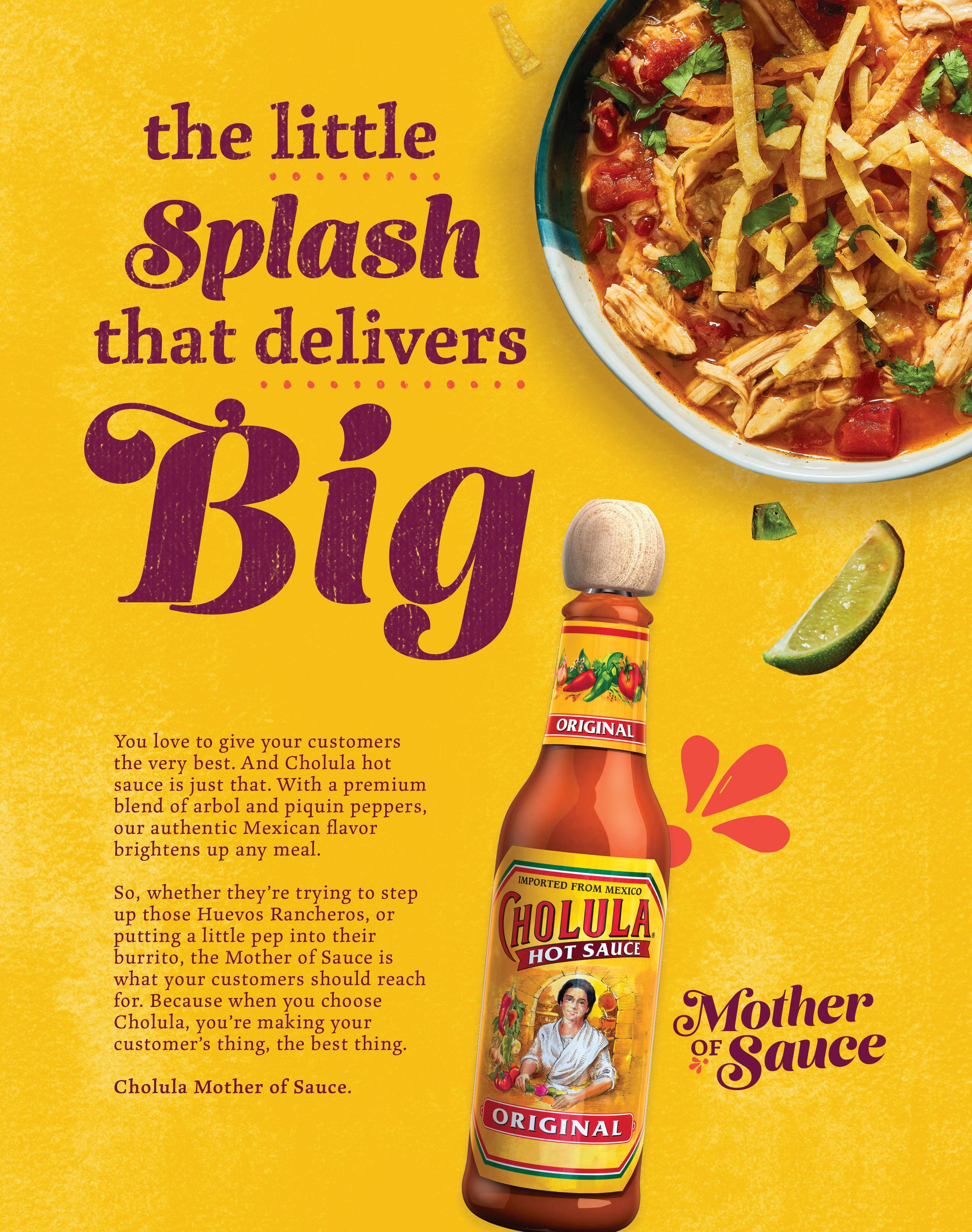
So You Want to Be a Franchisor?

Franchisees are making the transition and finding a wealth of growth opportunity.
BY SATYNE DONER
In recent years, the quick-service industry is seeing more brands than ever make the leap from franchisee to franchisor. Longstanding franchisees of powerhouse brands such as Yum! Brands and Jack in the Box transitioned into purchasing concepts of their own to diversify their portfolio and put their experience to the test.
Ampex Brands, a Texas-based franchisee of chains such as Pizza Hut, KFC, Taco Bell, and 7-Eleven, acquired Au Bon Pain from Panera in 2021 and bought bellagreen in 2022. Ampex Brands operates with more than 500 units, and with these new acquisitions, moved into the franchisor seat for the first time in its 16-year history.
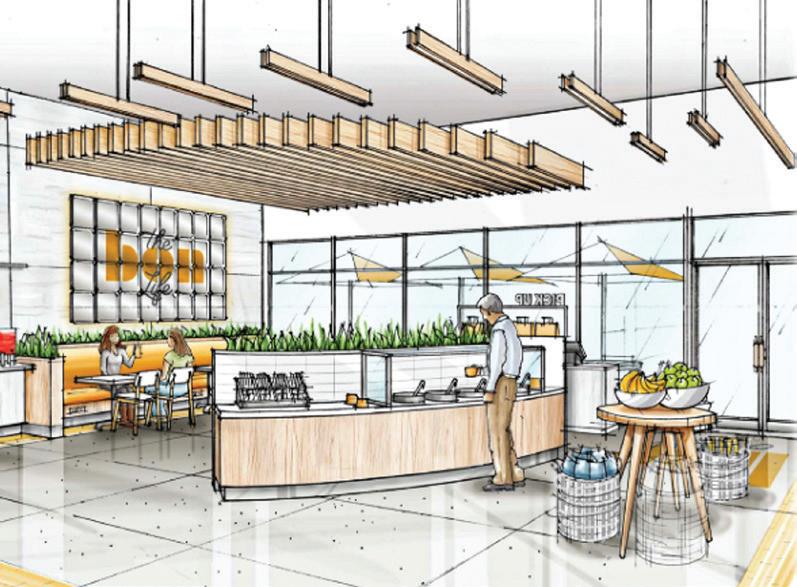
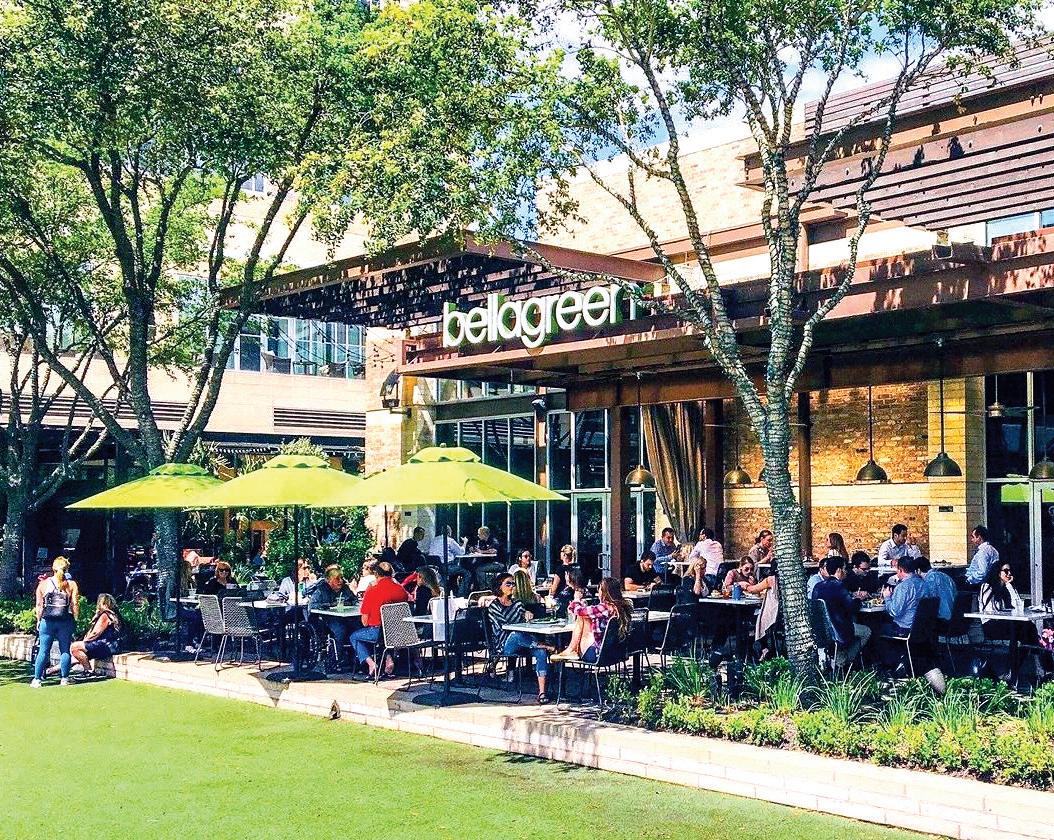
Tabbassum Mumtaz, CEO of Ampex Brands, says there are certainly “growing pains” behind the transition. He stresses that understanding the difference between the franchisor and franchisee systems is often the biggest hurdle companies face.
“Once you get into the franchisor position, you realize it’s more than just collecting royalties,” Mumtaz explains. “A lot of work goes behind it. Sourcing the product, the iteration of new products and marketing, making sure franchisees are happy, collecting sales information, it is all-important.”
Despite the increase in responsibilities, Mumtaz expresses growth has provided key learning opportunities and experiences. Although as a franchisee Ampex Brands nets $500 million in yearly revenue through its Yum! holdings and 7-Eleven locations, Mumtaz sought a different approach for the future direction of his company.
“If you think about the brands we have, there was very little space for us to grow within the franchise concept,” Mumtaz says. “The only other option was to either buy a franchise or create our own unique concept. So, that was one of our biggest motivators.”
Mumtaz defines finding the balance between franchisor and franchisee as a “humbling experience.”
“Learning from each branch helps,” Mumtaz says. “So, we have adopted aspects from our different brands and implemented them to ensure that the learning is there.”
While operationally the brands are separated according to their strengths to keep things simple, Mumtaz draws connections with cross-training and weekly newsletters. Additionally, the geographic location of units is strategically placed to provide extra support when needed.
“Our units are all next to each other … in Dallas for example, we have around 150 units for different brands. We seek help from each other—especially for team members,” Mumtaz explains. “If someone is working two jobs, we would rather have them working for two of our brands. Flexible hours, sharing our teams, and leadership visiting from different brands have helped us operationally.”
Yadav Enterprises, the largest Jack in the Box franchisee and significant investor in the ownership group of TGI Fridays, has taken a path akin to Ampex Brands with the acquisition of Taco Cabana in 2021.
Yadav Enterprises is also a franchisee of Denny’s, El Pollo Loco, and Corner Bakery Café, with roughly 340 locations spread across Northern California, Texas, and six Midwestern states. It purchased the 148-unit Taco Cabana business for $85 million. In fact, news of this purchase came just a day after Ampex Brands announced it would acquire Au Bon Pain. In addition, Yadav Enterprises also a bought controlling interest in Nick the Greek last year.
Anil Yadav, CEO of Yadav Enterprises,
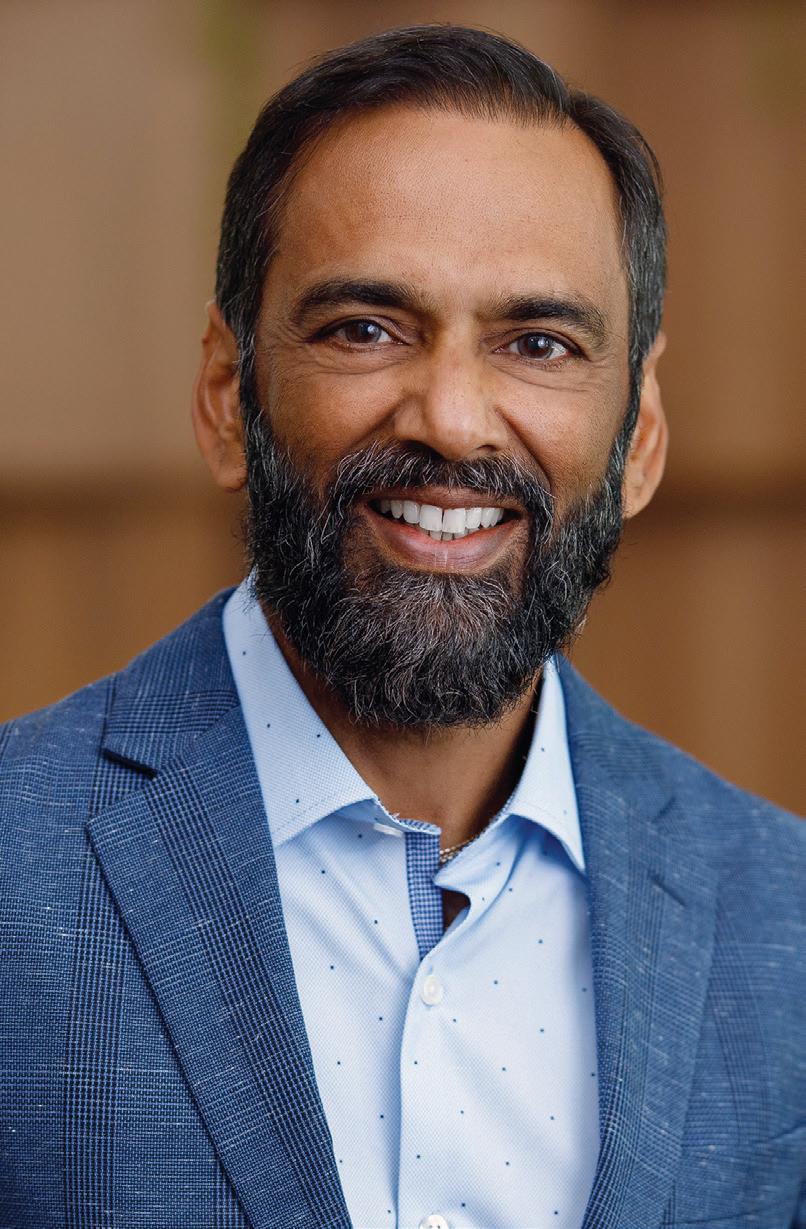
AMPEX BRANDS (3)
DEPARTMENT FRANCHISE FORWARD CONTINUED ON PAGE 62
16 JUNE 2023 | QSR | www.qsrmagazine.com
Ampex Brands CEO Tabbassum Mumtaz says becoming a franchsior has provided key learning opportunities.
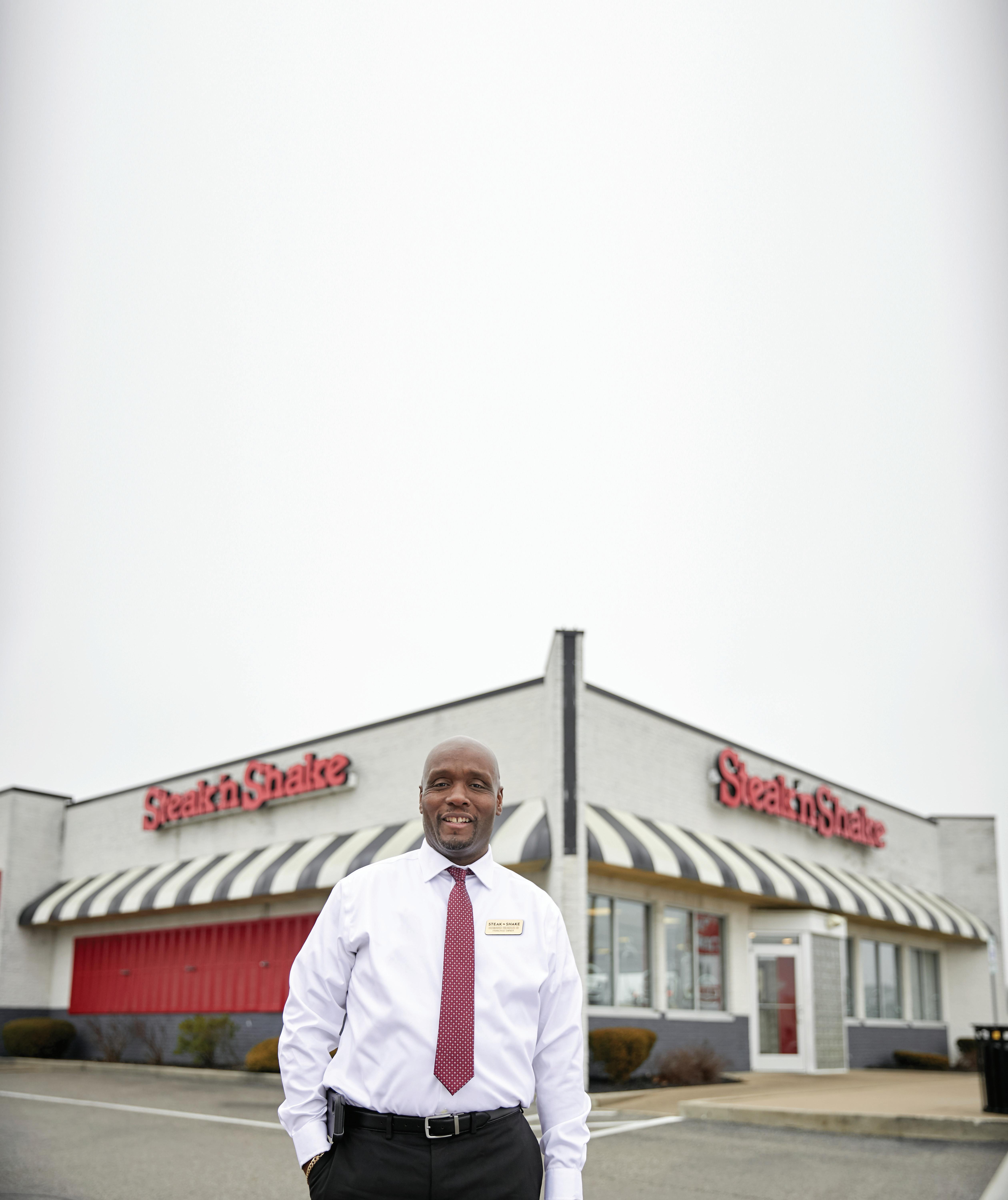


Do you want to be an OWNER? total investment 10k • Go into business for yourself, not by yourself • Average owner earned over six figures* • Ability to demonstrate the gold standard in service Scan to apply for Franchise Opportunities across the U.S. steaknshakefranchise.com *Based on the average annual earnings of 82 Steak ʻn Shake Franchise Partner Program franchisee outlets opened and operating for 12-months or more during the two-year period ending December 29,2021, as published in our April 29, 2022 Franchise Disclosure Document. Of these 82 outlets, 34 (40.6%) met or exceeded $136,933 annual average earnings. However, your individual results may vary and there is no assurance that you will do as well.
/ BY QSR STAFF
Young Leaders to Watch
THE PANDEMIC BROU�HT UNPRECEDENTED CHALLEN�ES FOR THE RESTAURANT INDUSTRY, but it also presented opportunities for young leaders to shine. In response to the crisis, many of these up-andcoming executives demonstrated remarkable resilience, creativity, and adaptability.
They quickly pivoted to new business models, embraced technology to enable contactless ordering and delivery, and implemented safety protocols to protect employees and customers. Moreover, they leveraged their digital savviness to build online communities and engage with customers in new and meaningful ways. By doing so, these 25 young leaders not only helped their restaurants survive but also positioned themselves as visionaries.
25 YL
The food and beverage sector is filled with youthful bright minds eager to make a significant impact.
18 JUNE 2023 | QSR | www.qsrmagazine.com
Robbie EARL COFOUNDER
VIRTUAL DINING CONCEPTS
AGE: 29


Robbie Earl recognizes how rare it is to create a new category from scratch.







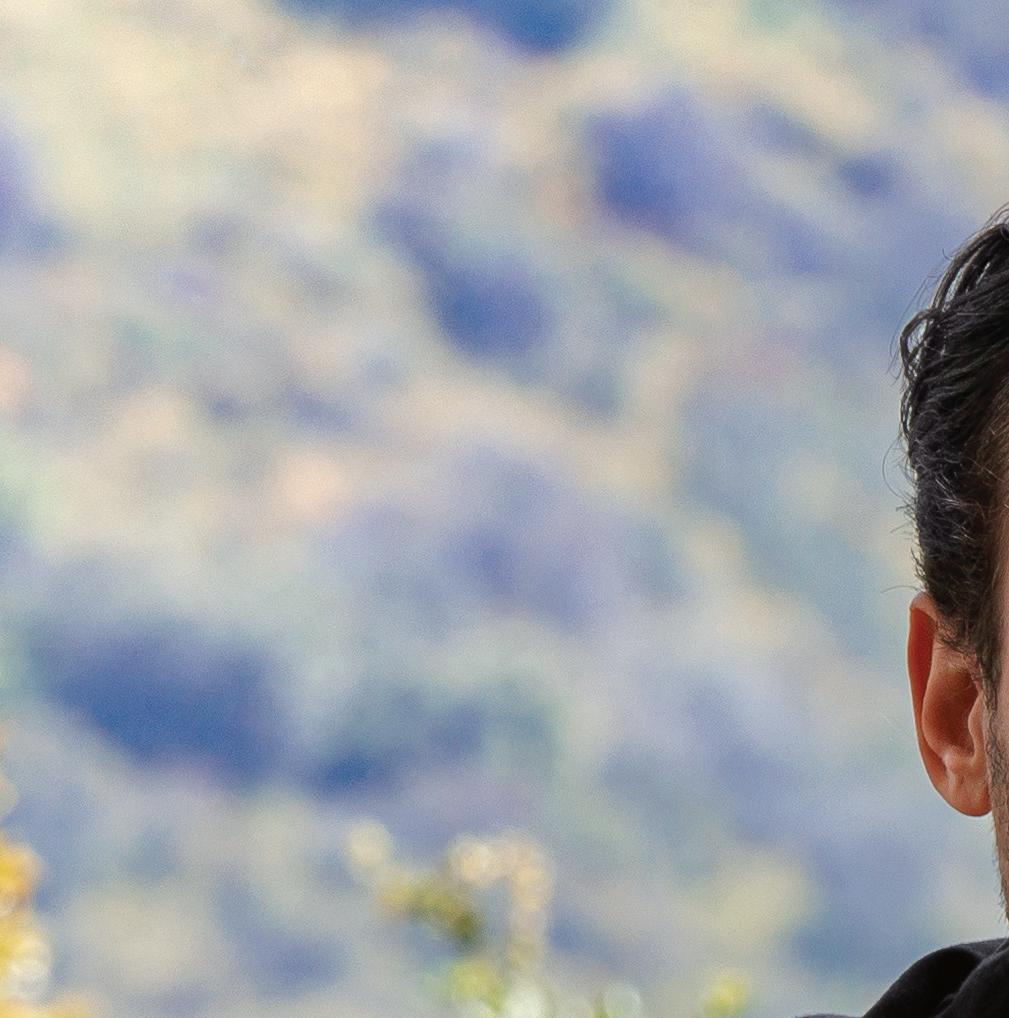
One of his favorite stories is Patagonia founder Yvon Chouinard and The North Face creator Doug Tompkins being lifelong friends, taking road trips together. They carved out an outerwear sports category that “changed the very fabric of everything,” Earl says.
Virtual Dining Concepts, founded in 2020 during the peak of COVID, intended to do the same. The company creates food and beverage concepts licensed to operators with additional kitchen capacity. It was formed in response to restaurants needing extra revenue.
“I love the innovation that we’re doing and bringing to the space,” Earl says. “And just seeing people experience the product, whether
5 YL
VIRTUAL DINING CONCEPTS RICH POLK www.qsrmagazine.com | QSR | JUNE 2023 19 YOUNG LEADERS
it is a restaurant that we were able to help or a customer that enjoyed a meal and was surprised and delighted by it, that is probably my favorite part of what we do.”
Some examples of Virtual Dining Concepts’ work includes MrBeast Burger (with YouTube star MrBeast, aka Jimmy Donaldson), Mariah’s Cookies ( Mariah Carey), Guy Fieri’s Flavortown Kitchen, and Robert Irvine’s American Heroes.
Earl co-founded the company with his father, Robert Earl (founder of Planet Hol lywood), and Trish Giordano, a longtime marketing executive with Earl Enterprises. He describes the partnership by quoting Isaac Newton, who once said, “if I have seen further [than others], it is by standing on the shoulders of giants.” That’s how he views the expertise of his father and Giordano, whose credibility and knowledge help Virtual Dining Concepts make the right decisions.
But Earl carries his weight. He oversees much of the day-to-day operations and helps develop many new brands. The three main skillsets he uses for the job are hospitality, dealing with talent, and in-depth knowledge of technology. He acquired the first two by working in his father’s restaurants since he was 14 years old and by attending Boston University School of Hospitality Administra tion. After graduating, Earl worked at talent management companies, where he gained a strong belief that creators could build brands
and form a new industry. He also participated in several startups that gave him a broad understanding of the restaurant tech ecosystem.
Earl and his team ask multiple questions before recognizing a concept as viable. Could this be a national brand? Is it able to survive and thrive on its own? Is it good enough to stand the test of time? There’s also a talent lit-
for a brand, and not all of them have a community.

“I always say I’d rather have one person that would buy something from me than 10 people who just want to watch and not engage,” Earl says “It’s a totally different ball game.”
Virtual Dining Concepts spends time with talent enough to understand their vision and become embedded in their following. From there, it’s data analysis of what will work and what won’t. After taste tests, the concept undergoes an operations process, which can be difficult, Earl says. The brand can’t be too complicated. For instance, hand-breading a product can take a lot of prep time. Those items can be tricky, especially if a restaurant already operates at scale. To remove this obstacle, Virtual Dining Concepts created a “speedy system” in which it learned how to get concepts to a certain number of SKUs and ease of execution. The process considers backof-house workers’ ability to learn the product and go off of muscle memory.
One of Virtual Dining Concepts’ biggest successes was MrBeast Burger. Earl met Donaldson four or five years prior when he was playing in the creator brand space. He orig-
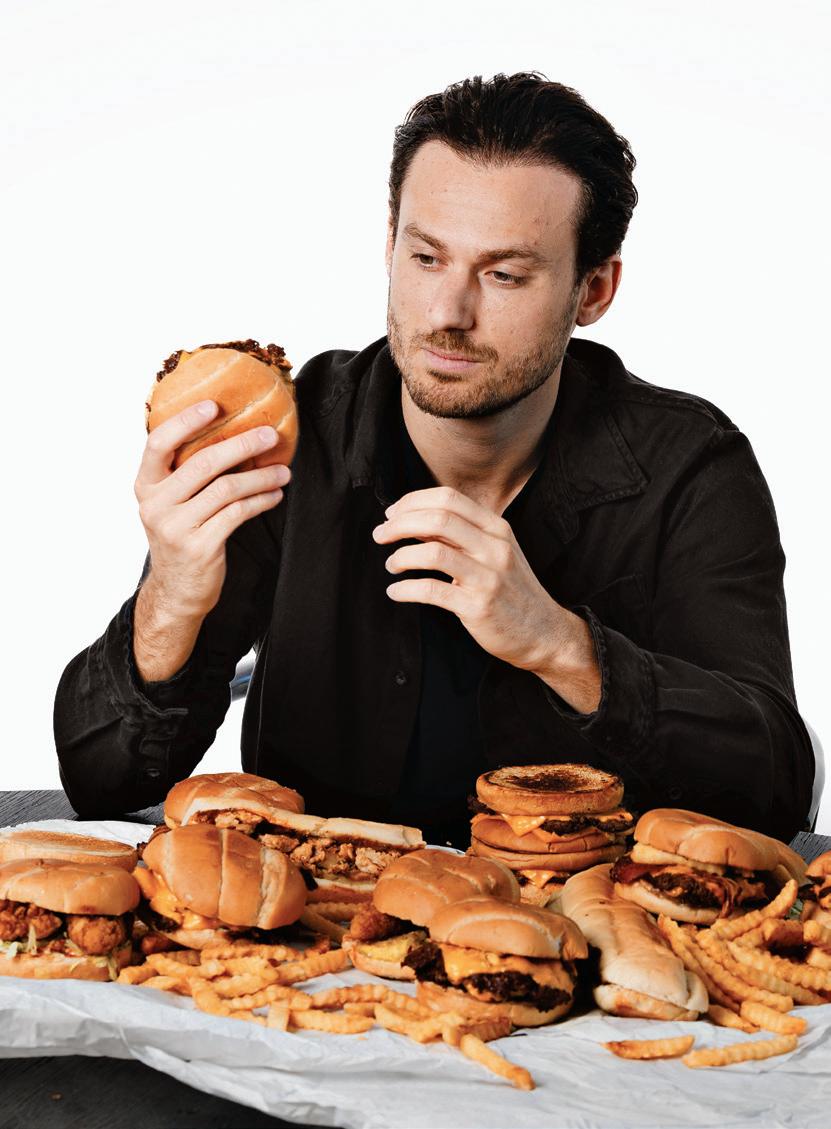
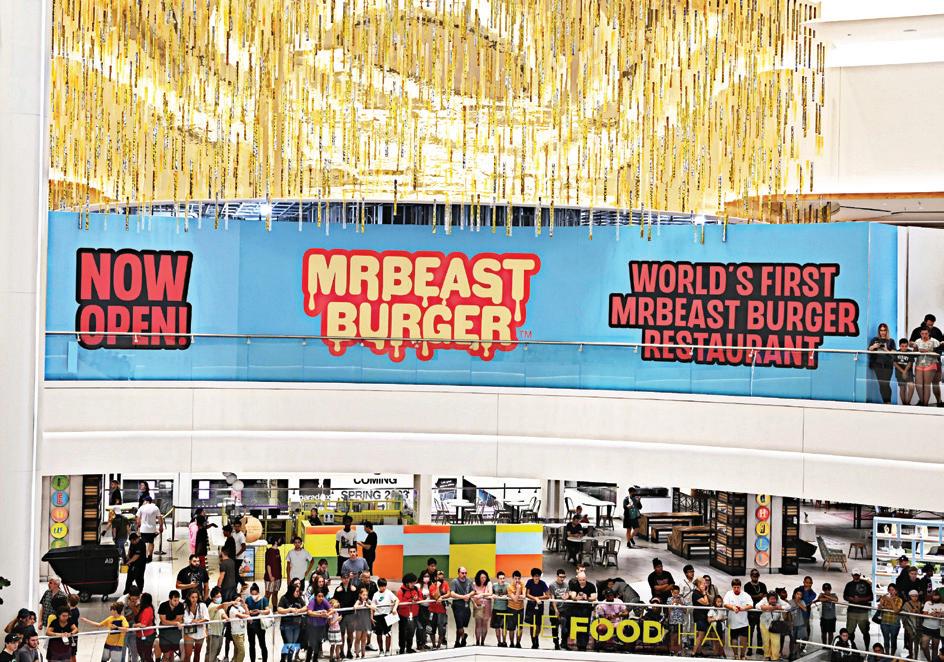
inally pitched the social media sensation a different idea, and Donaldson ripped it to shreds. So Earl came back with an even stronger pitch. It was going to be pizza at first, but statistics showed burgers had a greater opportunity for disruption.
“It wasn’t originally going to be a smash burger,” Earl recalls. “So at the time, we had two to three burger concepts that we were testing and seeing what worked, and our best one was smash burgers. So in the back of everyone’s head, we’re like, ‘This thing is a hit no matter what. We know it’s going to work.’ And we were like, ‘Oh, well, let’s talk to Jimmy about the non-smash patty.’ And I was just like, ‘No, let’s go with the best product that we possibly have with the best talent for the high-
VIRTUAL
VIRTUAL DINING CONCEPTS DAVE KOTINSKY (2) 20 JUNE 2023 | QSR | www.qsrmagazine.com YOUNG LEADERS
ROBBIE EARL PLAYS A BIG ROLE IN CULTIVATING NEW BRANDS FOR VIRTUAL DINING CONCEPTS.
DINING CONCEPTS RICH POLK
est probability of success.’ And things just fell into place on it all.”
Earl says MrBeast Burger’s success resulted from hard work, preparation, and luck converging. In September, the brand opened its first physical location at American Dream, a shopping, dining, and entertainment concept in New Jersey. Thousands of customers filled the mall, hoping to see Donaldson and get a taste of the virtual sensation. It was staggering for Earl but also one of the hardest things he’s had to do. It was one of those days—everyone stood on their feet constantly, the POS broke, the KDS system stopped working, and the menu changed a few times.
Despite the challenges, Earl calls the restaurant “a mastery in creation.”
“It was amazing to see the experience that people had,” Earl says. “They were happy to wait in line for however long they were in that line. It was just a surreal experience at the end of it all. I think I slept for probably 24 hours, but not until after three days because the business kept going, and I had to go back. One of the big concerns was, are we going to open tomorrow? And Jimmy was very focused on, ‘We need to make today perfect so there is tomorrow.’ And fortunately, we did. We called in some extra support, and I think it was a great experience for everyone involved.”
Virtual concepts are still in their infancy, Earl says, and the rules keep changing. Future guidelines could shift everything from required menu components to customer ratings, error percentages, and core metrics that third parties hold valuable. Education is required, too. Even three years after the pandemic, many customers are curious about ghost kitchens and don’t quite understand them. All these shifts are happening simultaneously, and Earl believes it’s Virtual Dining Concepts’ responsibility to guide the restaurant industry through this innovation.
The one thing Earl is confident in is the long-term runway of virtual brands. When a company can solve an issue, it tends to stick around.
“No matter what the economic climate is, I think the need for our service is there. You look at the list of problems for restaurants, getting customers is at the top of it,” Earl says. “And something like what we do provides that. And through technology, I think we can further enhance and build on it with a restaurant-first approach.”
Kelsey
M c MANEMIN
SENIOR DIRECTOR OF MARKETING
SALATA SALAD COMPANY
AGE: 32
are seeing with influencer marketing will certainly play a larger role in strategy development, customer acquisition, and budgeting.”
Andrew LEE SENIOR MANAGER, STRATEGY & MARKETING
BB.Q CHICKEN USA
AGE: 28
Growing up in South Korea, Andrew Lee spent much time at bb.q Chicken, which debuted in 1995. When his father worked late nights, he treated Lee to fried chicken, so the brand “definitely holds a special place in my heart,” Lee says. “And I’m thrilled to be in a role where I can help open more bb.q restaurants and share my love of Korean fried chicken with customers across the nation and the world.”
In her four years at Salata, Kelsey McManemin has grown from director of field marketing to senior director of marketing, overseeing the marketing strategy across the national, regional, and local levels. When she joined in 2019, her first initiative was revamping the entire grand opening strategy. The renewed approach led to record sales for an opening, and since, Salata has debuted 27 restaurants. In addition, the unit opening in Mesquite, Texas, in April 2022 achieved the highest grand opening figures in company history. The success is due largely to McManemin’s programs—one that fills key field marketing roles with industry veterans and another that supports franchisees by outlining the best ways to get involved in the community.
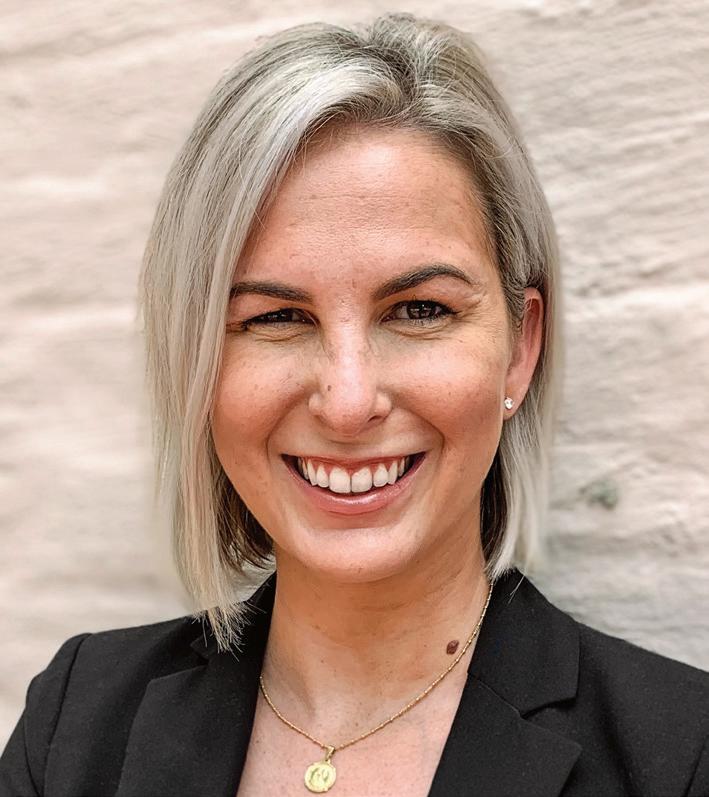
Her responsibilities include brand strategy, product innovation, loyalty program, guest retention and app strategy, managing local and national public relations efforts, and the new Mobile Kitchen, which serves as another revenue driver for franchise stores closing for a remodel. Her team’s tactics have proven successful as Salata set sales records in 2022, delivering 9.25 percent comps growth and an AUV of $1.3 million. In 2023, McManemin will help the chain open 16 stores and fill a pipeline of 50 stores.
“For the industry as a whole, I believe we will continue to see innovation in the digital space, especially in the way of new avenues on how to reach customers where they are consuming content,” McManemin says. “Additionally, the reach and audiences we
The chain entered the U.S. in 2014. Lee joined the bb.q Chicken team as operations manager five years later after graduating from the Culinary Institute of America. Speaking three languages ( English, Korean, and Japanese) combined with financial and hospitality skills, he bridges cultures and plays an extensive role in expansion plans. As an operations manager, Lee led store openings and implemented new online ordering and POS systems. When he first joined the concept, there were 32 locations. Now the brand has more than 150—a 400 percent increase in three years.

“We’ll be seeing more Korean culture and cuisine go mainstream in the industry,” Lee says. “We’re already seeing Korean items like Gochujang, Mando, K-BBQ, Cupbop, and Korean Fried Chicken all over the country, and I think this trend is definitely going to continue as more people fall in love with our food and culture.”
Lee, now senior manager of strategy and marketing, continues to make his mark. In 2022, he hired marketing agency MGH and led a complete rebrand in the U.S., including a new tagline, design, and website.
www.qsrmagazine.com | QSR | JUNE 2023 21 YOUNG LEADERS
SALATA SALAD COMPANY BB.Q
CHICKEN USA
Casey COOLEY DIRECTOR OF FRANCHISE DEVELOPMENT & REAL ESTATE
JEREMIAH’S ITALIAN ICE
AGE: 34
Casey Cooley has impacted Jeremiah’s Italian Ice’s franchising strategy from the very beginning. After joining Pivotal Growth Partners in 2019—a full-service growth and development consultancy—he was assigned to Jeremiah’s and helped launch the brand’s franchise opportunity. Since that turning point, the brand has awarded more than 260 franchise units across more than 115 groups and has seen more than a 350 percent increase in new units in fewer than four years.

“I think holistically dessert is having a reemergence—cookies, frozen treats, cakes, etc.,” Cooley says. “They are fun, colorful, familyfriendly, and approachable to most, if not all, demographics. I think virtual experience will cool off some, and people will look for those instances where fellowship and community can be facilitated and held-desserts have always been a part of that.”
In 2020, Cooley and his real estate team identified 50-plus locations to open the following year by taking advantage of second-generation spaces that an operator could quickly convert.
Although travel restrictions complicated site selections, Cooley leveraged relationships with national and local real estate brokers to ensure franchisee support. Jeremiah’s managed to open its first 10 franchise units in 2020. The chain doubled that total in the first six months of 2021. By the end of that year, the company had 40 franchise locations.
Taylor FISH
DIRECTOR OF FRANCHISE MARKETING
BAD ASS COFFEE OF HAWAII
AGE: 28
Taylor Fish’s journey with Bad Ass Coffee of Hawaii began during the height of the pan-
Abby TAYLOR COFOUNDER AND CMO
PLAYA BOWLS
AGE: 32
As you might imagine for a fine artist by training who traveled the world to surf, a 9 to 5 gig was never going to cut it for Abby Taylor. A self-described “Jersey Shore girl,” Taylor and Rob Giuliani (also an avid surfer) came across myriad versions of superfruit acai and pitaya bowls during their travels. They decided to bring the category, which was hardly mainstream in 2014, to the Jersey

22 JUNE 2023 | QSR | www.qsrmagazine.com YOUNG LEADERS
JEREMIAH’S ITALIAN ICE PLAYA BOWLS NOAH FECKS
Shore. The pair lived above a pizza shop and asked the owner if they could set up a single umbrella stand on the boardwalk in front of the business. They borrowed an umbrella, played music, bought a blender, and stood up a small refrigeration unit and devised a small menu that featured many of the items still available today. “Nobody knew what it was,” Taylor says. “But once people tried it, the line was down the road.”
Today, Taylor’s creative spirit is on full display as CMO. She oversees the creative identity of the Playa Bowls brand, from its bright colors and playful imagery to catchy slogans and social media campaigns to its menus. She’s hand-painted many of the shop’s murals as well. Taylor was recognized on Forbes’ 30 Under 30 list and won the Ernst & Young Entrepreneur of the Year Regional Award for Innovation in 2019.


And along the way, Playa Bowls ballooned to more than 175 shops nationwide across 20 states, making it one of the largest players in the now-crowded segment. Playa Bowls kicked off 2023 by announcing a 40 percent increase in average-unit volume as well as aggressive plans to open 250 stores over the next five years. Just in 2022, the chain debuted 36 units and signed 77 agreements. It entered nine new markets and inked deals to reach seven fresh ones.
“The brand really is how Rob and I live our lives,” Taylor says. “It’s so much in our DNA. It’s not fake, and people see the authenticity in it. They grew with us from the stand to all these locations. … It’s a concept that could work anywhere.”
Playa Bowls navigated the pandemic without any closures. Fortuitously, it had begun partnering with third-party platforms prior to COVID and was able to tap in-app advertising and promotions when lockdowns arrived. Also, it didn’t hurt the product was built to travel. During that stretch, the chain expanded its catering program and made it easier to order delivery in bulk from Playa Bowls’ app. Additionally, Taylor led an initiative called “Helping Heroes” that opened an avenue for communities to make donations toward providing bowls and smoothies to essential workers.
Going forward, Taylor says, the brand’s mission will mirror its day-one goals—introduce a healthy lifestyle to new audiences and do it with personality. “I feel like we’re only at the tip of the iceberg honestly,” she says.
demic. Although she was hired during challenging times, Fish, head of franchise marketing, has continuously been at the forefront of the brand’s growth. Since Fish was the second person hired in the marketing department after the Royal Aloha Coffee Company bought Bad Ass Coffee, there was no precedent. Fish took the initiative and launched an app that includes online ordering, a mobile wallet, and a loyalty program. The app is now a main component of the brand’s success.
Fish also established LTOs catering to popular flavor trends while keeping true to the brand’s Hawaiian roots with island-inspired twists. She has helped Bad Ass Coffee break into 11 new markets with grand openings that raise money for charity. In addition, Fish has introduced technological tools to help franchisees with marketing, including their music program that makes “every coffee run feel like an escape.” In 2022, Bad Ass Coffee awarded 45 franchise deals, and it’s seeing 76 percent growth in AUV compared to pre-COVID.
“This is only the beginning of what’s to come with Bad Ass Coffee of Hawaii and our robust marketing efforts. As we look to the future, it’s our aim to disrupt the national coffee franchise category with a true experiential brand like Bad Ass Coffee of Hawaii,” Fish says.
Ryan WEAVER CEO
LEE’S
FAMOUS RECIPE CHICKEN AGE: 33
Ryan Weaver is bringing energy to a brand founded more than 50 years ago. He’s part of an investment group led by ex-Apollo Global Management professionals that purchased Lee’s in 2021 from industry veteran Chuck Cooper.

Since that transaction, Weaver has overseen record sales of more than $213 million in systemwide sales in 2022, AUVs of $1.7 million, and an upcoming modern store prototype. In addition, the new leadership team made good on its promise to align with franchisees by purchasing 16 existing stores in the first 18 months. Those locations, based in Ohio, Florida, Kentucky, and Indiana, were bought from longtime operators ready to retire. “For Lee’s, we continue to see a lot of opportunities to continue to evolve how we leverage technology in our business—this is everything from keeping our app and loyalty program relevant to embracing newer sales channels, including delivery, and looking at our technology stack we utilize in our restaurants,” Weaver says.
In March 2022, Lee’s signed the most significant development deal in company history when franchisees Noman Aiyash and Leo Gonzalez agreed to build 12 new restaurants in the next seven years in the Detroit market. Weaver has also been part of three new franchise openings, improvements to corporate infrastructure, and the reintroduction of an annual franchisee convention that’s increased communication efforts between the company and operators.
Kelli MUTZ
PRINCIPAL TEAM LEADER, SUPPLY CHAIN AND DISTRIBUTION
CHICK-FIL-A
AGE: 35
The supply chain and network behind running restaurants today has been one of the most difficult arenas coming out of the pandemic. And Kelli Mutz is navigating all of it as Chick-fil-A continues to expand at the fastest pace in its history (the brand recently opened its first Hawaii location and is even exploring international growth) Mutz spearheaded “multiple grueling undertakings,” according to her nomination, to ease supply chain constraints and provide optimal service for operators and customers. Positive indicators emerged: product delivery has been reliable, sales and transactions increased chainwide, and, most importantly, customer
LEE’S FAMOUS RECIPE CHICKEN
CHICK-FIL-A
www.qsrmagazine.com | QSR | JUNE 2023 23 YOUNG LEADERS
BAD ASS COFFEE
satisfaction improved.
“I am thankful for the opportunity to grow professionally at Chick-fil-A and be part of the incredible transformation in the [quick-service] industry,” she says. “The complexities of supply chain are fascinating and multifaceted. In the past few years, I have seen how my ‘velvet brick’ mentality allows me to challenge with radical candor. Although occasionally ruffling feathers, it is always with the hope of creating a healthier environment to conduct our work and to help serve customers and operators.”
Mutz was also instrumental in ensuring product was delivered in a timely and efficient manner amid the pandemic. Many of Chickfil-A’s locations experienced soaring demand through drive-thru, resulting in a shift in service time.
Mutz facilitated logistics in distribution partners and delivery staffing.
“I am invigorated when working through hard things with others [e.g., product shortages, pandemic delays, or capacity constraints]. I hope to create clarity with truth and empathy as I work to build the Chickfil-A brand in the niche I find myself,” Mutz adds.
Korey
TAYLOR DIRECTOR OF DIGITAL ENGAGEMENT
TACO JOHN’S AGE: 31
From launching her career at NASCAR Digital Media to helping create the Einstein Bros. Bagels mobile app, Korey Taylor is a force in the digital marketing and loyalty space. After joining Taco John’s International in September 2020 as lead manager of digital engagement, Taylor quickly proved herself a strong leader and was promoted to director of digital engagement in August 2022.
“Taco John’s has a strong culture of fostering growth from within. Being the youngest director in the company, I’ve experienced this firsthand,” Taylor says. “There is an understanding that age is just a number, and our
company recognizes the value that each individual brings to the brand.”
Most recently, Taylor not only constructed a new points-based rewards program for Taco John’s International—called Bigger Bolder Rewards—but also designed and launched an improved mobile app for the 375-unit Mexican quick-service brand.
“Receiving the support I need to roll out systemwide initiatives from our chief-level executives, franchisees, and our Board has helped advance Taco John’s exponentially in the digital space in a rather short amount of time,” she notes.
KALIA CULTURE, TRAINING & DEVELOPMENT OPERATOR
Sara WALKER DIRECTOR OF PEOPLE DEVELOPMENT
VELVET TACO AGE: 33
Aman Kalia, leader of culture and training for Tim Hortons franchisee Saisethsons Hospitality Group, guides with a servant leadership philosophy and “H.E.A.R.T.” values—hospitality, excellence, appreciation, relationship, and training.
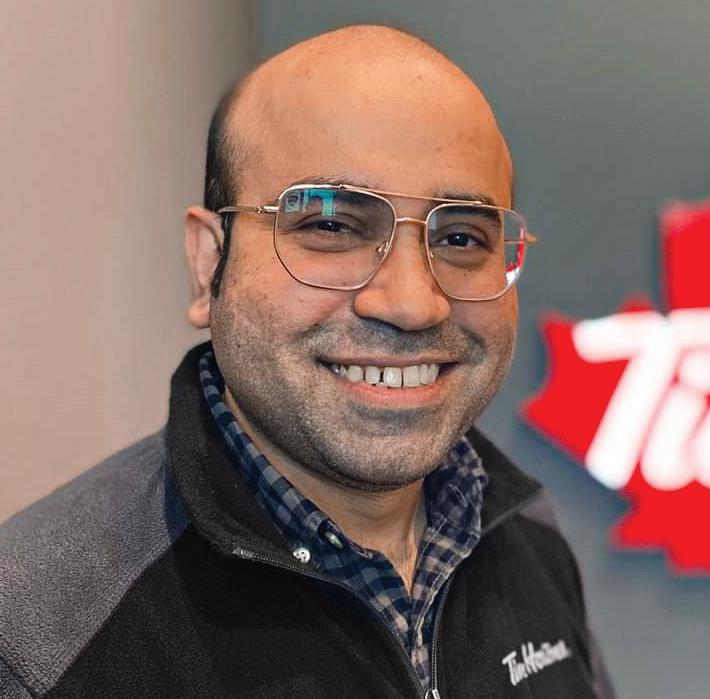
“We as a company believe in raising the bar,” Kalia says. “The theme, ‘being different is better than being better’ plays in all the work or projects we do, and how we invest in our people.”
During the pandemic, Kalia led an objective to over-communicate the latest restaurant updates and trends to team members via multiple channels, including video calls over Zoom. He scouted workers’ needs systemwide and allocated company resources and funds to give extra support. He ensured no employee was laid off and provided extra training classes.
Sara Walker has quite the repertoire: the work ethic of a baby boomer but the technical skills and collaborative nature of a Gen Z and millennial. Top it off with an incredible sense of urgency, and you have someone who embodies the “Be Relentless, Never Settle” core value of Velvet Taco.

Walker joined Velvet Taco seven years ago as a manager but quickly outgrew her position. She had the innate ability to train others, manage projects, and pay attention to detail.
This made Walker a perfect fit for her current role as director of people development, where she takes charge of training initiatives, new restaurant openings, and operational communication. Moreover, she oversees the streamlining of the entire restaurant support office.
The brand’s recent GM Leadership Conference was spearheaded by Walker,
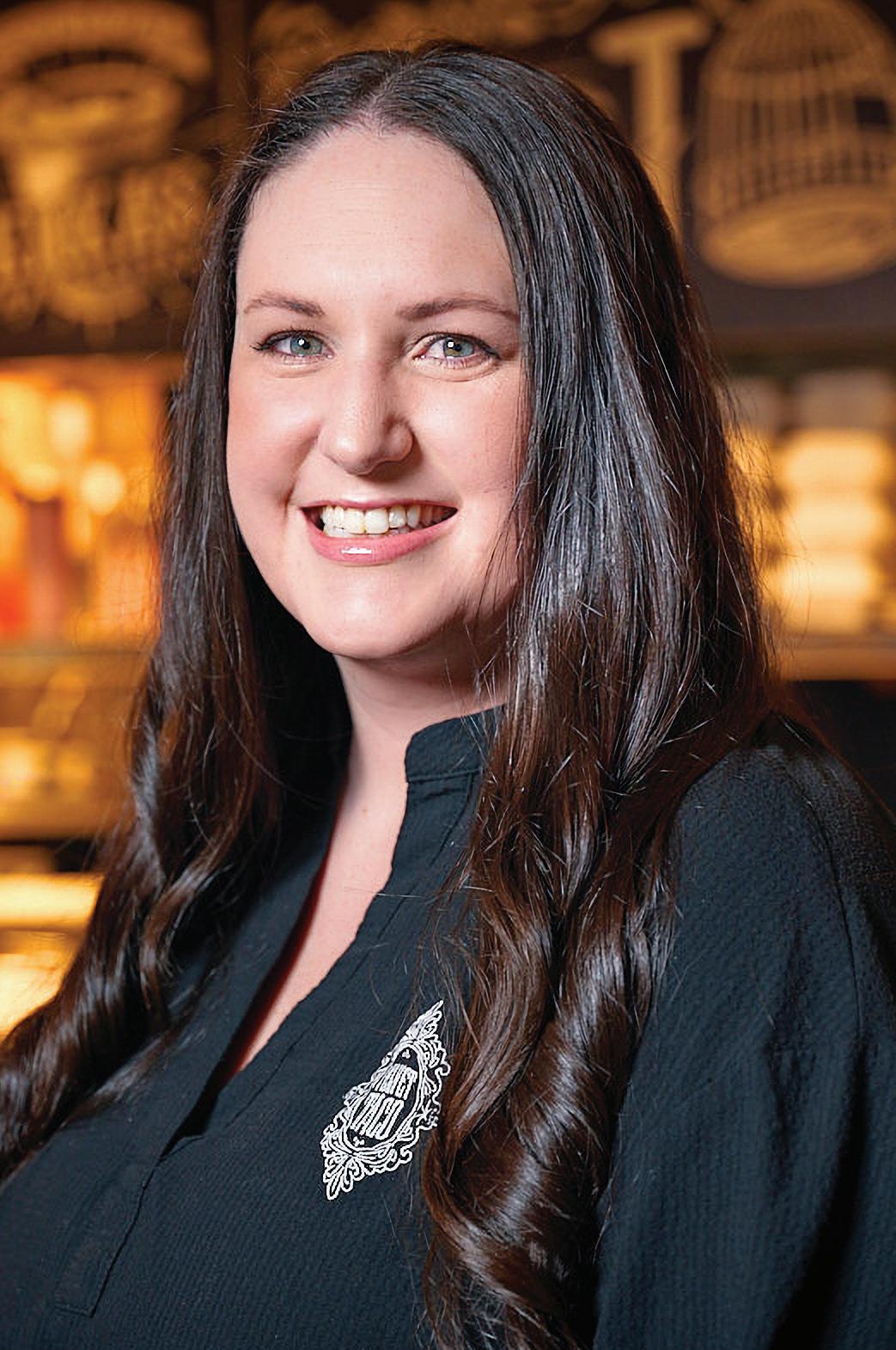 Aman
Aman
SAISETHSONS HOSPITALITY GROUP AGE: 34
TACO JOHN’S
SAISETHSONS HOSPITALITY GROUP
24 JUNE 2023 | QSR | www.qsrmagazine.com YOUNG LEADERS
VELVET TACO
where she showed off her flair for organizational and operational skills. She also helped modernize Velvet Taco’s training platforms by implementing a new LMS.

Walker consistently seeks feedback on how she can be better and serves as a role model for others, nurturing an environment of continuous improvement, her nomination said.
“What’s kept me at Velvet Taco for so long is the empowerment and the support that I get from our leadership team,” Walker says. “It always feels good when you come into work, and people appreciate who you are.”
According to her nomination, Walker is open-minded and has her finger on the pulse of the brand, remaining flexible to change her processes as the company grows. She is careful to think creatively yet remains courteous to the brand’s integrity.
During the pandemic, Walker stepped out of her managerial position at the restaurant support office to work as a manager at one of Velvet Taco’s restaurants for five months. She worked on the front lines to support the brand in its time of need, even while she was six months pregnant. She never complained and uplifted every team member she came across.
Operationally, she implemented new systems and protocols during the pandemic to ensure the safety and health of her team. She proved she could impact both the training of Velvet Taco’s people and its operations by working on pivoting the Weekly Taco Feature program.
This pivot was crucial to providing relief to the teams working on the Weekly Taco Feature concept; she implemented a process to cross-utilize existing ingredients to ease the operations for the management teams.
Walker is a talented young leader with a steadfast loyalty to Velvet Taco’s operations and people, according to her nomination. She has helped move the brand’s training platforms into the 21st century and continues to improve daily.
“I think the thing that’s gotten me so far is always being willing to lend a helping hand, staying positive and being willing to fail, even if it’s just working through it together as a team,” Walker says. “If you don’t fail, you’re not trying.”
“It is difficult and challenging at times because it’s easier to have a rock star team member than to give that individual the gift of a better career and then train them for that role, while we now have the need of training the replacement as well,” Kalia explains. “So more times than not, it does feel like we struggle all the time, but in hindsight we have made people better than before and developed leaders.”
Samantha HEBEL MANAGER OF ADVERTISING
HUNGRY HOWIE’S AGE: 31
Samantha Hebel’s history with Hungry Howie’s began over 20 years ago. The daughter of seasoned Hungry Howie’s franchisee owners, Hebel’s first experiences with the brand included running the register, making pizzas, and delivering orders in her teenage years. Currently, she is manager of advertising. Hebel works closely with operations to support franchisees and talk them through current and forthcoming promotional materials. She is also responsible for all budgets and strategies for the brand’s advertising and media agencies. Hebel’s long standing with Hungry Howie’s helps her resonate with franchisees who she now assists in her everyday job. Hebel has felt the most accomplished by helping operators.
“My dedication to the Hungry Howie’s brand and its franchisees comes from the opportunities and success it has carved for myself and my family over the years. Growing up with the brand and being fully submerged in the business, I was able to witness the hard work and passion it takes to be successful in a highly retail and competitive industry,” says Hebel.
In the past eight years, Hebel has played a pivotal role in developing Hungry Howie’s marketing strategies, producing sequential same-store sales growth. She has also been responsible for executing plans to improve the profitability of underperforming locations.
Katelyn ZBOROWSKI
DIRECTOR OF PRODUCT MARKETING AND MENU INNOVATION
TACO BELL
AGE: 32
If there are two pillars Taco Bell leads out front on, it’s marketing and menu innovation. Few, if any, restaurant brands do it better. And Katelyn Zborowski is fully aware of that reality.
“For a marketing leader, there is no greater responsibility than to fuel and nurture a growth mindset culture,” she says. “Creating a culture of courage, creativity, and respect will unleash repeatable success that others can only dream of.”
Zborowski grew up watching her family operate Tim Hortons locations in Canada, getting an insider’s look into what it takes to run a franchise. She began her career with Taco Bell Canada and helped the business stack consecutive years of double-digit samestore sales growth. In 2018, she relocated to Irvine, California, to support Taco Bell’s U.S. fleet with a “contagious energy that continues to burn as bright as it did on day one.”
Under Zborowski’s purview, Taco Bell has launched record-breaking products spanning traditional LTOs to digital innovations to permanent platforms, including the Toasted Cheddar Chalupa, $2 Grilled Chicken Burritos, $5 National Taco Day Gift Set, $5 Build Your Own Cravings Box, At Home Taco Bar, and Taco Bell’s Grilled Cheese Burrito.
 HUNGRY HOWIE’S
HUNGRY HOWIE’S
www.qsrmagazine.com | QSR | JUNE 2023 25 YOUNG LEADERS
TACO BELL
HUFFMAN FRANCHISE OWNER

TACOS 4 LIFE AGE: 26
Knox Huffman sometimes has difficulty believing he’s made it to where he has. Just four years ago he walked into a Tacos 4 Life and decided he wanted to be a part of a brand that’s mission extended beyond the counter. He began as a cashier in an Arkansas location with no restaurant experience. In three months, he was promoted to team lead. A few months later, Knox was elevated again, this time to assistant manager. In under 12 months, and at just 22 years old, Knox found himself store leader of a Springdale, Arkansas, restaurant.

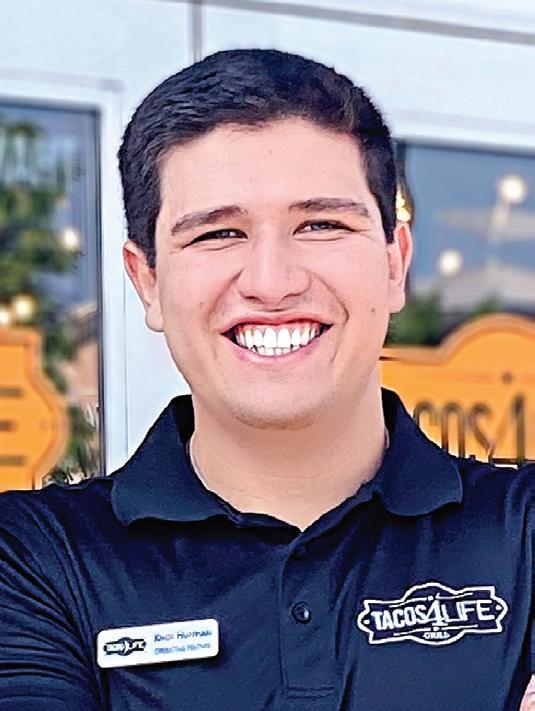
“That absolutely blows my mind. I think about these facts and have no explanation to fall back on other than that God walked alongside me and guided me in every single decision,” he says. ”
Tacos 4 Life has long deployed a model where its business supports raising meals for children worldwide. Huffman ensures employees understand the brand’s broader goals and their role in getting there. Some workers even followed Huffman across state lines when a location in Tulsa, Oklahoma, became available. Since buying the unit in November 2022, the store has seen a 50 percent sales jump.
During the pandemic, Tacos 4 Life only leaned into its ethos further. Knox moved from Springdale to Little Rock in 2020 to lead the Shackleford store in a restructuring as its operating partner. He helped the team raise 256,939 meals that year.
husband Andrew Dana. The “Jew-ish” deli offers unique takes on traditional deli fare with influences from Moreira’s childhood in Argentina.
While the food is key to the brand’s success, Moreiera says “people are the most important ingredient.”
The people-first mindset was evident during the COVID-19 pandemic when Call Your Mother expanded from one to seven locations and surpassed 200 employees. Moreira and Dana broadened their benefits to include language classes, practical skills workshops, and parental leave. Pledging to keep all employees on the payroll throughout the public health crisis, they also created an online fundraiser that offered passes to skip the line at Call Your
first U.S. franchise last November in Wooster, Ohio. Hock, who assumed his role in 2022, is Caribou’s inaugural director of franchise operations. When moved into the role, naturally, Hock entered an entirely new business segment for the chain and faced the challenges of creating systems and tools as he worked to bring the franchise system to light.
“Through my role at Caribou, I’ve found great purpose in empowering our team and enhancing our franchise operations that allow others to bring premium coffee experiences to our guests,” he says.
Hock continues to spearhead efforts in assisting franchisees with operations, training, design, construction, IT, and marketing and guarding Caribou’s standards. Hock is also heading up a vetting process to find franchisees who understand the brand’s values, which led to the implementation of Caribou’s “Store Brand Excellence Form,” which guides franchisees.
Chef Daniela Moreira is one-half of the dynamic duo that created Washington, D.C.based Call Your Mother Deli, alongside her
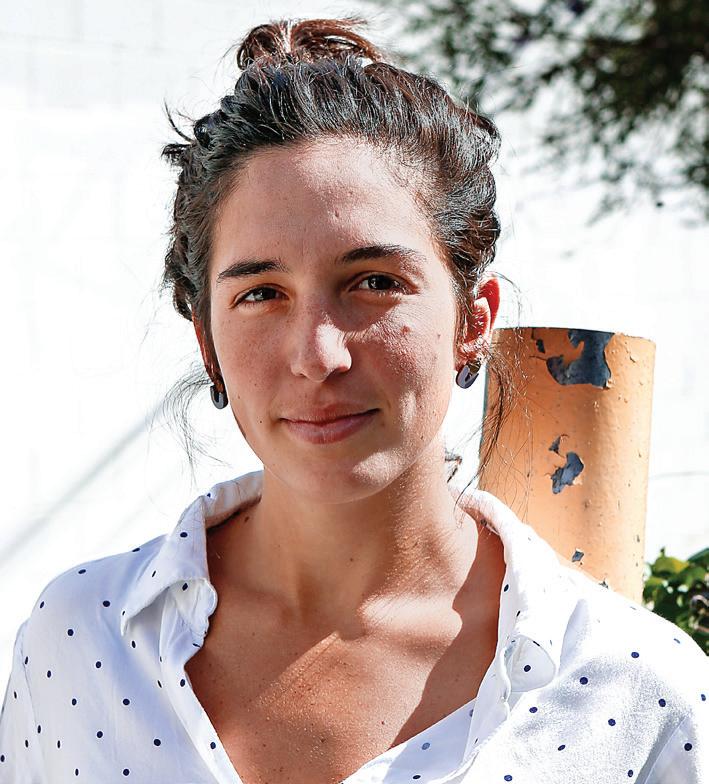
Mother for a year and the chance to name and create your own bagel. The nearly $75,000 in proceeds went directly toward employee wages.
“We prioritize customers by hiring personable people and then prioritize our staff in order to be one of the best places to work,” Moreira says. “I’m proud that we were able to keep all employees on payroll during the pandemic and offer them new and practical benefits.”
“If I were to be recognized for my contribution to the company, it really goes back to the foundation of Caribou’s purpose—creating day making experiences that spark a chain of good, that drives our team to success,” he says.
Jonathan Hock is at the controls of a gamechanging era in Caribou’s history. The brand launched its domestic franchise program on October 21 and celebrated the opening of its
Knox
Daniela MOREIRA OWNER AND CHEF CALL YOUR MOTHER DELI AGE: 32
Jonathan HOCK DIRECTOR OF FRANCHISE OPERATIONS CARIBOU COFFEE AGE: 32
Megan SPRAGUE SENIOR DIRECTOR OF PUBLIC RELATIONS AND CHIEF OF STAFF RAISING CANE’S ( FORMERLY WINGSTOP ) AGE: 31
TACOS 4 LIFE CALL YOUR MOTHER DELI LAURENCE CASEY WINGSTOP
26 JUNE 2023 | QSR | www.qsrmagazine.com YOUNG LEADERS
Megan Sprague is humble, hungry, and smart, according to her nomination. A force
CARIBOU COFFEE
Packaging That Delivers Repeat Business
Protecting Meal Quality Brings Customers Back for More

PROTECT TEMPERATURE & TEXTURE TO DELIVER THE BEST TASTE
Cross-flow ventilation protects taste by maintaining temperature and texture for up to 30 Minutes.
SERVE APPEALING PRESENTATION, EVEN OFF-PREMISE
Durable & stackable single and multi-compartment table-ready designs, so meals arrive looking great.
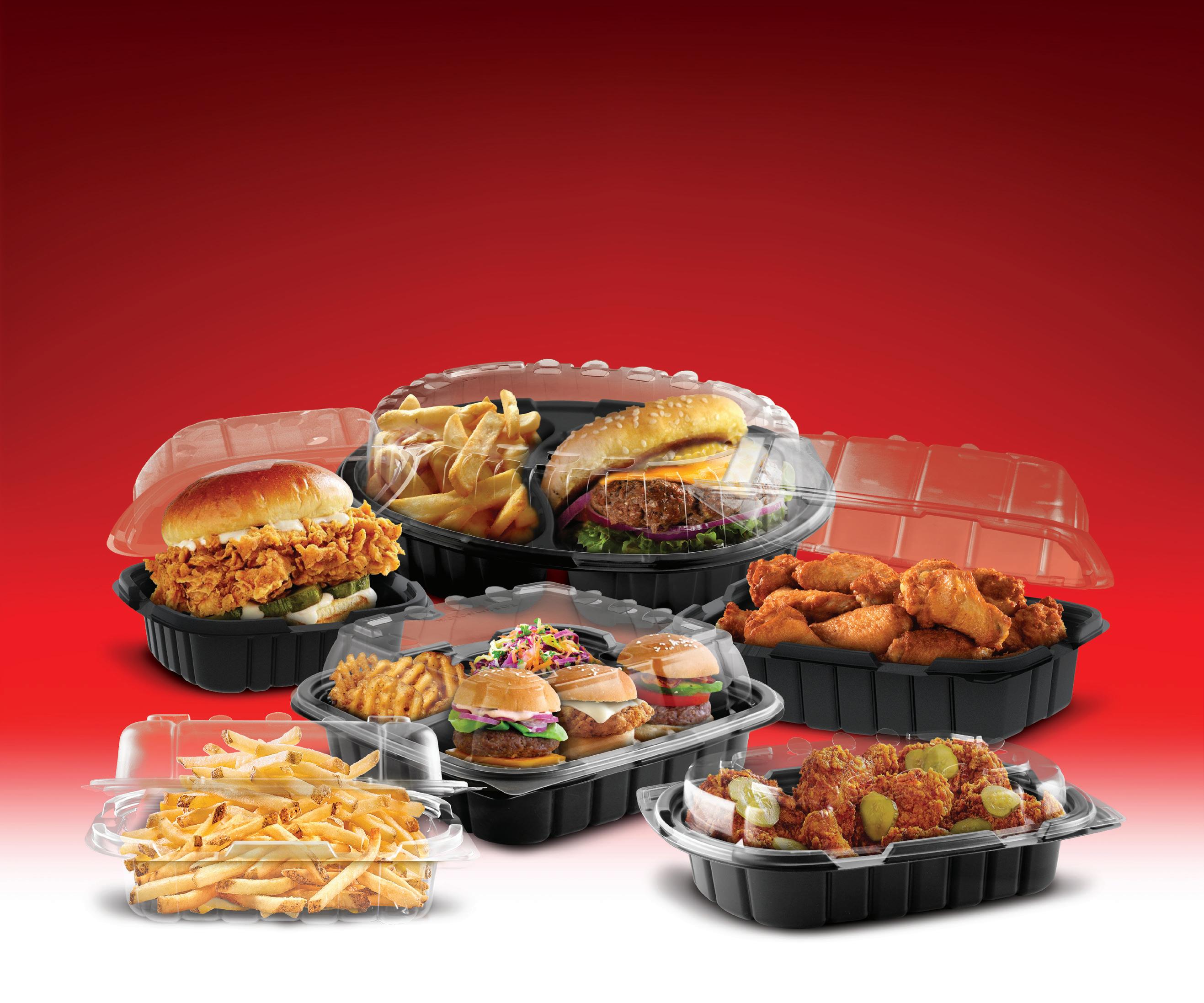
INCREASE PROFIT BY REDUCING ORDER ERRORS

Clear, anti-fog lids help the kitchen avoid order errors without opening the packages and releasing heat.
PROTECT FOOD, SERVE SUSTAINABLY
Protecting food quality reduces food waste. Reusable, microwave & dishwasher safe, and recyclable after use.
TEST & TASTE THE CRISP FOOD DIFFERENCE FOR YOURSELF
CRISP FOOD TECHNOLOGIES® CONTAINERS ©2023 Anchor Packaging® LLC - St. Louis, Missouri
SAMPLES anchorpac.com
REQUEST FREE
KASH AGGARWAL PRESIDENT
Keshuv Kash Aggarwal joined KK Corporation as a store manager when he was 16 years old, but his introduction to restaurant leadership started well before then. The company was founded in 1997 when his mother, Renu Aggarwal, purchased her first Subway restaurant in Houston.

Aggarwal says being raised in the company and surrounded by strong leadership has shaped his approach as he’s worked his way up the company’s ranks. After managing a store as a teenager, he became the company’s IT manager. From there, he was elevated to business development manager, then vice president of operations, and eventually chief operating officer, a role he held in 2017 when Hurricane Harvey devastated the Texas Gulf Coast.
Under his leadership, KK Corporation provided meals for Houstonians without food and water. Aggarwal and his team kept stores open late and created catering packages that were delivered to temporary shelters and local hospitals. His car and the company’s office both flooded during the hurricane, but that didn’t stop him from setting up an emergency fund for employees that
were impacted by the storm.
Aggarwal became president of KK Corporation in 2019, and a year later, he was tasked with leading the business took some lessons he learned during the hurricane, working to keep stores open while providing financial assistance to employees through an emergency relief fund.
Today, he leads a company with 146 Subway franchise locations, including 136 stores in Houston and 11 stores in upstate New York. He says Hurricane Harvey and COVID-19 reinforced the importance of the people making the business possible.
As president of the company founded by his mother, Aggarwal has focused on infusing KK Corporation’s culture with a sense of fun. Successes are celebrated and shared across the organization, and training processes have been updated to be more energetic and engaging.
“One of our core values is that we’re built on joy,” he says. “Hard work and dedication are important, but it’s also important to have fun. If you look at our Instagram or our LinkedIn, you can see how much fun we’re having with our staff.”
He has focused on creating more confidence across teams by giving staff more ownership over their areas of expertise, whether upper-level management or store-level employees.
“In order to create confidence in teams, you have to set goals and you have to set expectations. In order to set goals, you have to provide data,” Aggarwal says. “There’s a lot of feedback and following up on those goals, but we always try to make it fun with the way we’re cheering everybody on.”
He also is a big believer in self-education. He holds a bachelor’s degree in entrepreneurship and has earned certificates in corporate management, real estate development, and leadership strategies.
“I’m really into doing education seminars with my team,” he says. “For example, we had a professor of psychology come and talk to upper management about how to think with a different part of their brain when issues arise. For me, it’s all about how we can keep learning, keep getting better as an organization, and keep bringing innovative ideas to be a successful top franchisee.”
to be reckoned with, she joined Wingstop in 2017 as a communications associate and quickly climbed the ranks to senior director of public relations and chief of staff.
She grew the communications team and crafted media approaches that have helped Wingstop on its way to becoming a top 10 restaurant brand, all with kindness and resilience.
She was a key driver of Cannes Lions award-winning campaigns such as Thighstop and Blazed & Glazed. Thighstop delivered over 5 billion-plus impressions alone.
But Sprague’s leadership influence extended beyond the communications team. She also served as the chief of staff to Wingstop’s executive team, pushed event strategies, and spearheaded platforms such as “Flavor for Good.” Additionally, during the pandemic, Sprague led both the Wingstop COVID-19 task force and the Social Justice task force following the death of George Floyd. She also helped the brand grow from 1,000 to 2,000 locations while living “The Wingstop Way.”
In May, she was named head of public relations for Raising Cane’s.
Mason WIEDERHORN CHIEF BRAND OFFICER
FAT BRANDS
AGE: 32
Mason Wiederhorn joined Fatburger in 2012 as a videographer before quickly moving to creative director and most recently chief brand officer in 2021.

Overseeing more than 25 employees across various departments, he is responsible for creative and construction initiatives. He’s personally designed more than 100 restaurants across FAT Brands’ portfolio and overseen construction timelines and development processes for 150-plus upcoming openings in 2023. Wiederhorn is also behind Fatburger’s refreshed store design, where he balanced vintage branding with modern upgrades. Johnny Rockets, Pretzelmaker, and Native Grill & Wings also underwent comprehensive rebrands.
FAT BRANDS
Keshuv
KK
KK
28 JUNE 2023 | QSR | www.qsrmagazine.com YOUNG LEADERS
CORPORATION AGE: 33
CORPORATION
JOIN THE QUICK-SERVICE EVOLUTION









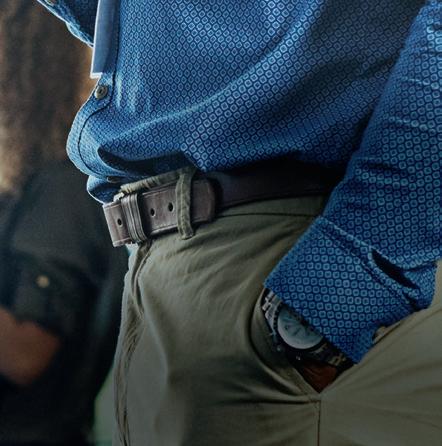


































KEYNOTE SPEAKERS:




Introducing the QSR Evolution Conference—the ultimate destination for anyone in the quick-service restaurant industry looking to stay ahead of the game.

Join us for two days of informative sessions, expert speakers, and networking opportunities. Discover the latest industry trends, gain insights into customer behavior, and learn about cutting-edge technology that can help take your business to the next level.

Don't miss out on this exciting opportunity to connect with fellow industry professionals and gain a competitive edge in the ever-changing world of quick-service restaurants. Register now and secure your spot at the QSR Evolution Conference—the must-attend event of the year!

QSREVOLUTIONCONFERENCE.COM
SCAN FOR MORE INFORMATION
CO-LOCATED WITH:
ANDREW CATHY CEO Chick-fil-A
CHRIS TOMASSO CEO First Watch
TREVOR HAYNES President North America Subway
CHRISTIAN CHARNAUX Chief Growth Officer Inspire Brands
Wiederhorn has played a vital role in FAT Brands’ cobranding efforts. Using insights from the Fatburger/Buffalo’s Express combo that began in 2013, he spearheaded Johnny Rockets’ first cobranding with a fast-casual version of Hurricane Grill & Wings. He also led FAT Brands to its first tri-brand opportunity with Fatburger, Buffalo’s Express, and Hot Dog on a Stick.
“At FAT Brands, we are currently focused on improving the customer journey, namely the frictionless ordering experience, and accuracy and efficiency in operations,” Wiederhorn says.
Andie SMIRL FRANCHISE SALES MANAGER
FUZZY’S TACO SHOP
AGE: 33
Nobody “bleeds Baja” like Andie Smirl does for Fuzzy’s Taco Shop. She started as a cashier on the weekends at 17 and so deeply immersed herself in the brand’s culture that she worked her way up to the corporate office, where she now serves as franchise sales manager.
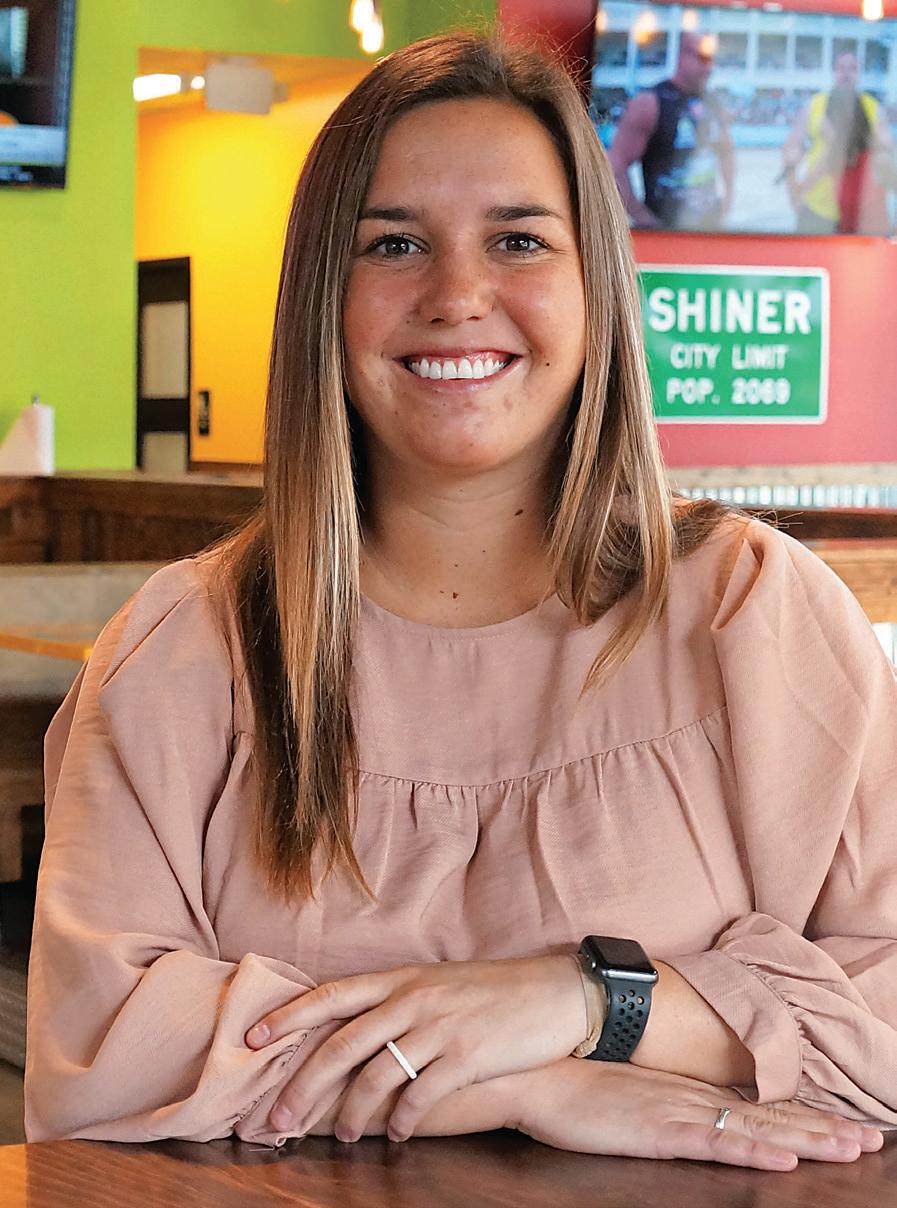
“To say ‘I have grown up alongside the brand’ is a huge understatement,” Smirl says. “I was proud to work at ‘the coolest place in town’ at 17, and now I am still just as proud.”
While managing her own store in Denton, Texas, Smirl knew she had found “the one” and married herself to the brand and team. She immediately wanted to bring the good vibes of Fuzzy’s Taco Shop to new markets across the country.
After discovering her passion for working directly with franchisees, Smirl stepped into her current role in 2019 and has inked deals that have helped grow the brand.
Last year, Smirl was the driving force behind Fuzzy’s Taco Shop’s biggest franchise deal, a 50-store agreement with restaurateur Richard Maddox.
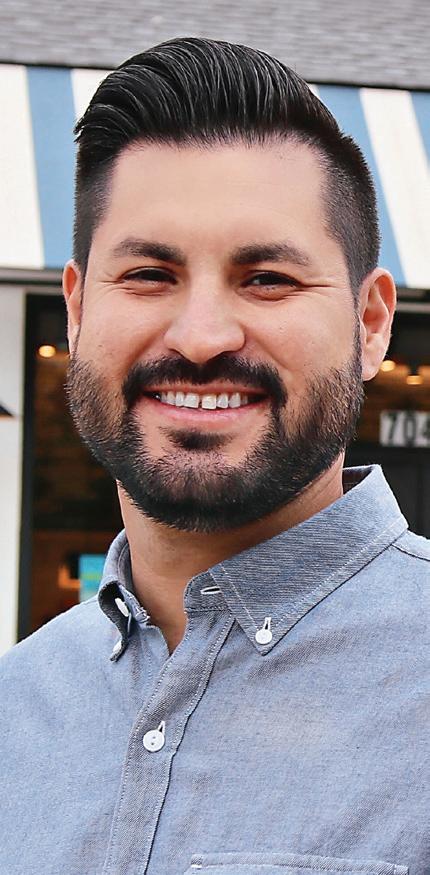
This deal will expand the brand into new markets in Alabama, North Carolina, and Tennessee and existing markets in Florida, Georgia, and South Carolina. These stores will also include a drive-thru, a first for the chain.
Cody ALACRON CONTROLLER ORIGINAL CHOPSHOP AGE: 34
Cody Alacron— the company’s third corporate hire—began at Original ChopShop seven years ago when there were only three stores. As the controller, he’s supported 17 openings, including three new markets. That will continue in 2023 with four store debuts, good for 21 percent unit growth.
Alacron has been a critical influencer in creating sophisticated systems and infrastructure, allowing for accessible data and rapid growth. In 2022, Original ChopShop experienced a record $41 million in annual sales and $2.5 million in AUV, an increase from $36 million and $2.4 million in 2021, respectively. He was a significant part of that growth by managing internal accounting, reporting, and forecasting and overseeing external corporate partners, like audit firms, credit card processors, payroll systems, healthcare benefits, accounting systems, point of sale providers,
Simoné SMITH
VICE PRESIDENT OF DEVELOPMENT
DICKEY’S BARBECUE PIT
AGE: 32
Simoné Smith’s colleagues
have used the word “firecracker” to describe her personality. When she first applied to work at Dickey’s Barbecue Pit as a project manager seven years ago, one of the employees told her she was applying for one of the hardest roles at the company. She thought they were saying she couldn’t handle it but Smith is no stranger to dealing with adversity. Her mother passed away when she was 12 years old.
“I was like, ‘If I could handle that, I can handle anything you guys throw at me,’” Smith told them.
Now the vice president of development, Smith has led the opening of hundreds of locations, including 173 in Q1 2023 (inclusive of virtual concepts). During the pandemic, Dickey’s was still expanding. Smith helped her project managers prepare for production delays when ordering necessities to build out stores, such as cooking equipment, refrigeration, and lumber. She formed a strong relationship with suppliers to anticipate demand. But Dickey’s wasn’t only focusing on the expanding brick-and-mortar locations. Smith’s team also aided in the growth of its three new virtual kitchen concepts in Dickey’s and other restaurants.
Smith’s goal is to hit a 1,500-unit restaurant count by December—counting brick-and-mortar and virtual.
“That’s how I’ve always been. I’m like, ‘OK, what’s the next goal? And everyone’s like, ‘Can we stop?’ And I’m like, ‘No, I don’t want to stop,” Smith adds.
Known for her positive outlook on life, Smith says staying optimistic isn’t always easy. She believes hope is an important element in executing a plan but in her time as a mentee of Dickey’s CEO Roland Dickey, Jr. she has learned the importance of making detailed plans as well as commitments to set herself up for success. As a result, she thinks ahead instead of dwelling too much on the problem.
FUZZY’S TACO SHOP ORIGINAL CHOPSHOP 30 JUNE 2023 | QSR | www.qsrmagazine.com YOUNG LEADERS
“That’s part of that optimism, just staying positive there and just OK, what’s the solution? Let’s not get caught up in the problem. How can we change this?” Smith says.
Dickey’s belief in Smith is how she stays so invested in the brand. It continues to teach her about leadership. She appreciates the flexibility that Dickey Jr. has given her. She can communicate with him if she doesn’t like a strategy or wants to do something different.
“I think that’s my favorite part. I can change things up if they don’t work. I don’t have to go through a lot of red tape and ask
for permission,” she says.
Smith’s style of leadership mirrors that of Dickey Jr.’s. She believes in working hard and doing anything possible to reach the final product. She wants her team to be self-sufficient and understands there are opportunities to move up in the company.
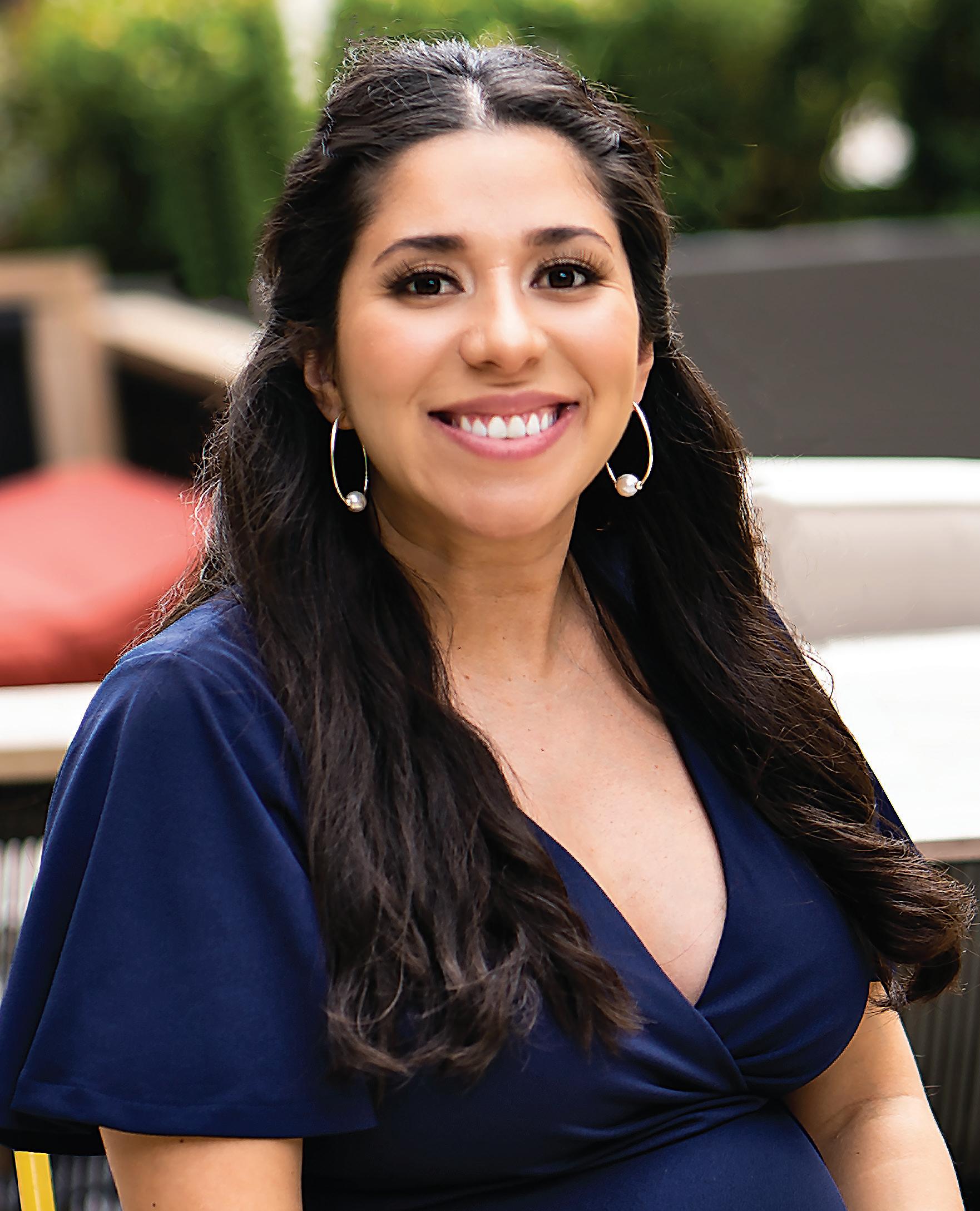
“My goal is to really create other leaders,” Smith says. “I don’t want them to be dependent on me. I don’t want to micromanage them. If they need me my door is always open to bounce ideas off of but, I really want them to grow and to learn and sometimes they have to learn from their mistakes too.”
third-party ordering platforms, and the company’s insurance policy provider.
“I believe Original ChopShop will continue to develop into a lifestyle brand, integrating into the lives of guests by not only providing a delicious, better-for-you meal, but also by inspiring guests to Just Feel Good with every brand interaction,” Alacron says.
Ian BRUGGEMAN DIRECTOR OF FP&A (FINANCIAL PLANNING AND ANALYSIS) NAF NAF GRILL AGE: 29
Ian Bruggeman’s foray into the restaurant industry with 40-unit Naf Naf Grill wasn’t just shaped by COVID—it was founded on it. In January 2020, Bruggeman left his job at the Indiana State Pension Fund to join his partners at 316 investments—formerly one of the largest and most successful QDOBA franchisees in

the system—to become the first Naf Naf Grill franchisee in the country in Indianapolis.
Never having worked a day in a restaurant, Bruggeman had to quickly learn from his cooks, bakers, managers, and front-line workers to catch up. He and his team opened up the Carmel, Indiana, location on March 16, 2020, and closed that Friday due to the pandemic, and didn’t reopen until May 25.
He and his team led the restaurant to significant sales growth over the next year. They opened another location in downtown Indianapolis. The two stores were eventually bought by Naf Naf Grill and became corporate locations. This allowed Bruggeman to transition from an operations role to his current role as director of financial planning and analysis. “My long-term goal for Naf Naf Grill is to make Middle Eastern cuisine accessible to as many folks in the United States as possible while remaining true to our founder’s authentic recipes, vision, and culture,” Bruggeman says.
NAF NAF GRILL
www.qsrmagazine.com | QSR | JUNE 2023 31 YOUNG LEADERS
DICKEY’S BARBECUE PIT
When Maxwell Fulton became a general manager at Taco Bell at 18 years old, he already had his career path mapped out. He knew he wanted to be a franchise owner, and he knew he had to align himself with the right leaders to help get him there. So he learned the ropes at Domino’s as a district manager, then at Burger King’s parent company, Restaurant Brands International, as a franchise operations consultant for the Southeastern U.S. division.
Fast forward to November 2022, when
Fulton closed an impressive roll-up acquisition consolidating seven Jimmy John’s units—six in Maryland and one in York, Pennsylvania—from three franchisees. That meant adjusting three separate teams to one set of systems, a challenge for even the most seasoned entrepreneur. The deal also included a development agreement to build five additional locations in the Baltimore area.
And he’s not done yet; the young entrepreneur plans to have 20 stores under his belt by 2027. As of press time, Fulton had eight open stores, with two locations in development in Eldersburg, Maryland, and Lancaster, Pennsylvania, with eight more in the pipeline.

As Fulton continues on his path to double in size over the next two years through new builds and additional acquisitions, he emphasizes the importance of building a strong company culture to support growth— which for him has meant offering a $15 minimum wage and other industry-leading benefits.
“My team is aligned with our goals,” he notes. “Take care of your people, and they’ll work with you to achieve your business goals.”
As Fulton grows his portfolio, there’s also the potential to expand outside of Jimmy John’s and become a franchisee of other concepts; Inspire Brands’ portfolio also includes Arby’s, Buffalo Wild Wings, Sonic, Dunkin’, and Baskin-Robbins.
“My journey so far as a franchisee within the Inspire Brands system has been nothing but a great experience,” he says. “With six distinct brands to learn from, the level of innovation and strategic planning from Inspire is incredible. I’m excited about not only my franchise journey with Jimmy John’s, but how the brand will continue to evolve and strengthen to position us for success for years to come.”
“I’m excited to continue seeing young restaurant professionals move up in the industry,” Fulton adds. “There is no better experience than having moved up within the industry and proving yourself along the way. Younger talent continues to bring a unique perspective that can position brands for long-term success as the industry faces unforeseen staffing and financial challenges.”
Krystina
ROMERO HELP DESK MANAGER
JERSEY MIKE’S AGE: 35
Within months of arriving at Jersey’s Mike’s in October 2022, Krystina Romero had completely revamped the tech help desk, which supports franchise owners and covers nearly 2,500 locations across the country. The sandwich chain’s proprietary POS was created wholly in-house and is supported exclusively by the help desk.
Bringing eight years of experience as a customer success trainer and learning specialist at Microsoft, Romero started her position at Jersey Mike’s by learning the day-to-day business and getting her team of two supervisors and 11 techs on the same page. One of her first efforts was shifting the team’s mindset, reminding them of their customers’ perspectives. The team responded with a renewed commitment to responsiveness and support, felt immediately and appreciated by the franchisees.
Romero also increased the efficiency of the help desk by implementing internal serviceled agreements and new monitoring metrics. She implemented regular self-assessments and feedback sessions, which bolstered the team’s morale and empowered them to take more ownership of their work. “My proudest achievement as the Jersey Mike’s help desk manager is cultivating a customer-centric culture where every interaction is rooted in empathy, understanding, and the genuine desire to provide exceptional assistance,” Romero says.
 Maxwell FULTON PRESIDENT OF FULTON HOLDINGS
JIMMY JOHN’S FRANCHISEE AGE: 24
Maxwell FULTON PRESIDENT OF FULTON HOLDINGS
JIMMY JOHN’S FRANCHISEE AGE: 24
JERSEY’S MIKE’S 32 JUNE 2023 | QSR | www.qsrmagazine.com YOUNG LEADERS
FULTON HOLDINGS
TAKE TASK MANAGEMENT OFF YOUR CLIPBOARD
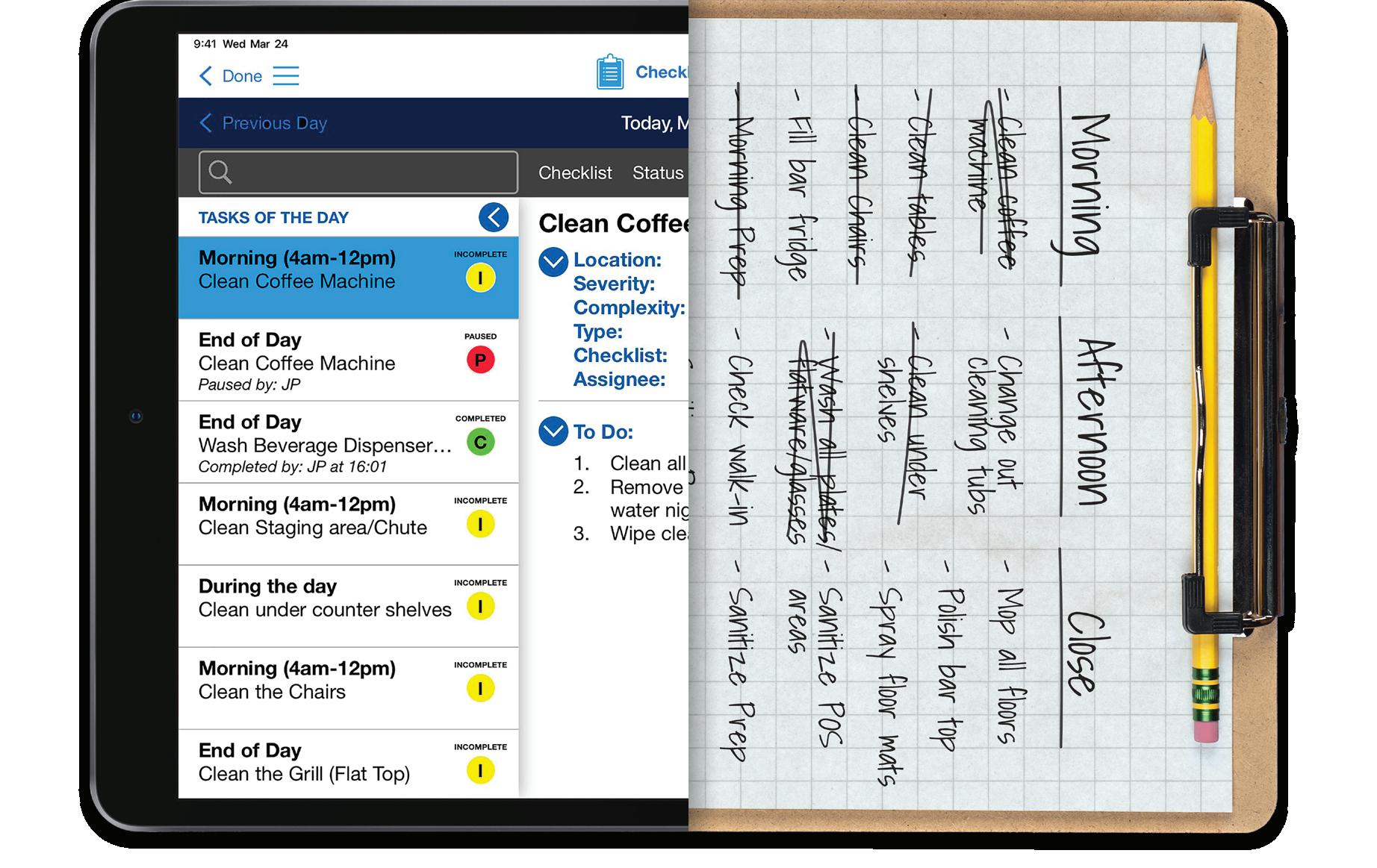
Just one of many ways BOHA! digitizes your back-of-house.
Ditch the masking tape, paper, and pencils for a solution operators, franchisees, and BoH staff love. BOHA! automates and simplifies everything from labeling, to temping, compliance and HCAAP reports, checklists, employee training, and more:
• Slash labor costs
• Improve accountability
• Prevent unnecessary food waste
• Enhance Food Safety & Quality
Across ALL locations — from the cloud
www.transact-tech.com/qsr-mag
CONCESSIONS OF THE FUTURE
ACCELERATED BY COVID, MULTIPLE TECH UPGRADES ARE BOOSTING THE FAN EXPERIENCE.
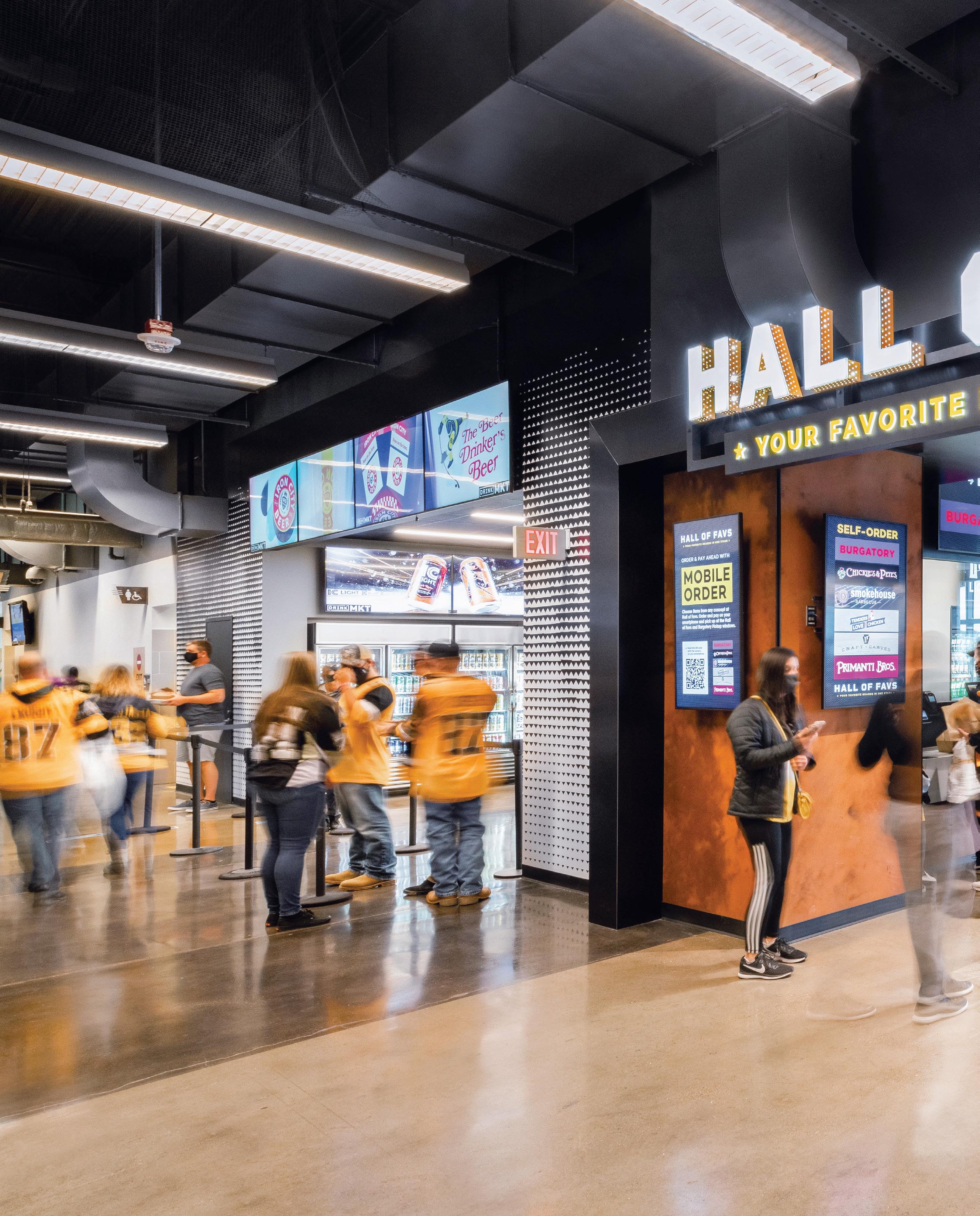 / BY SAM DANLEY
/ BY SAM DANLEY
PPG / ROB LARSON PHOTO 34 JUNE 2023 | QSR | www.qsrmagazine.com TECHNICAL ADVANCEMENTS
With Shaquille O’Neal as a founder and a lineup of handheld menu items, Big Chicken is a natural fit for concessions. Founded five years ago by the NBA Hall of Famer, the fast-casual chain is rapidly expanding its footprint in stadiums and arenas.
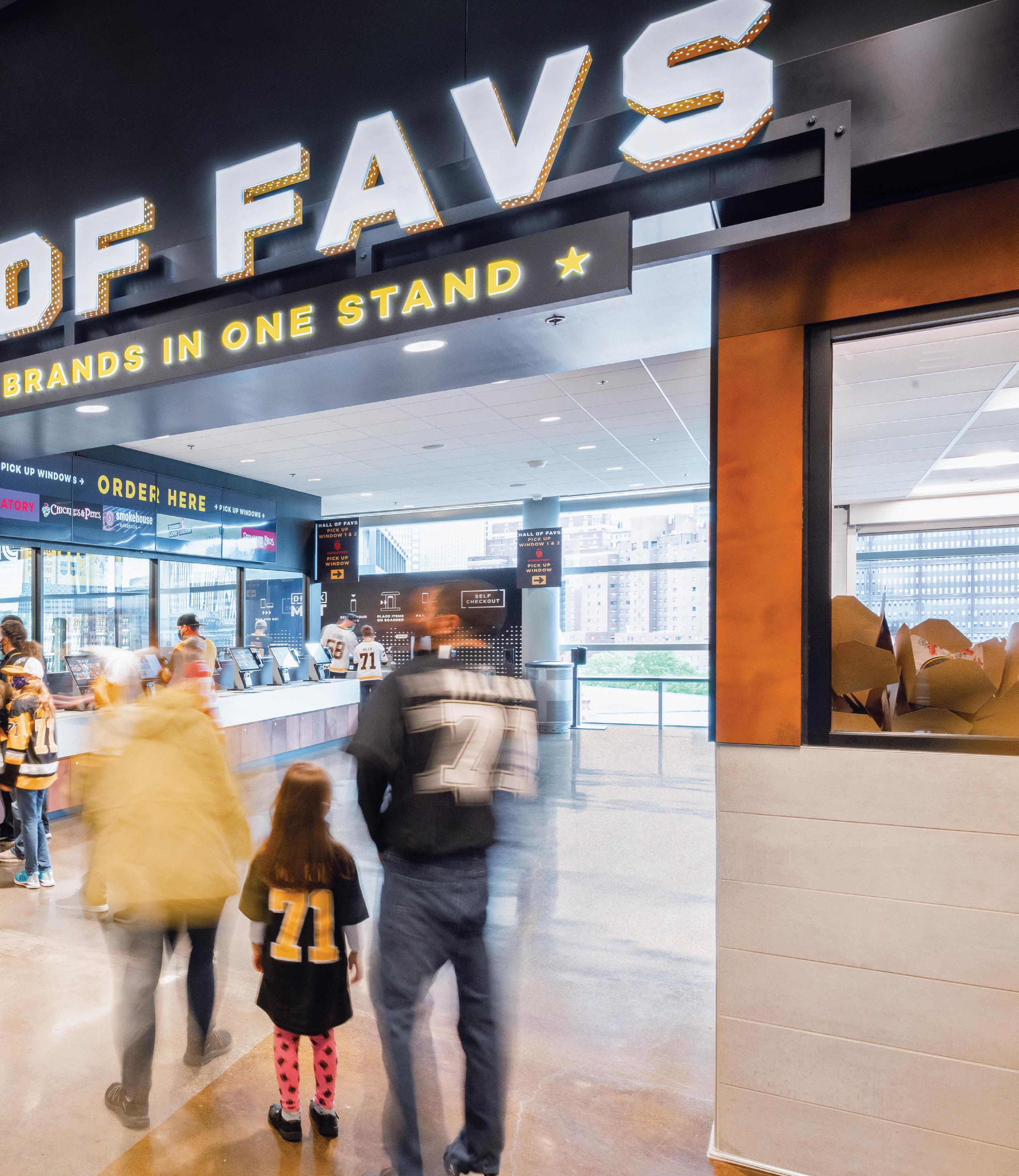
The brand opened its first concession stand in Seattle’s Climate Pledge Arena in late 2021, and by early 2023, it had surpassed 100,000 sandwiches sold in the venue.
“I don’t think anyone could have imagined how successful we would be in these arenas,” CEO Josh Halpern says. “Now, we’re entering arenas constantly, and it’s a major part of our strategy.”
The Climate Pledge Arena outlet was the first fast-casual restaurant in the country to feature Amazon’s Just Walk Out Technology and Amazon One, enabling guests to forgo the long lines that are a perennial part of the game day experience. The system is similar to Amazon Go, the tech giant’s
IT WASN’T EASY, BUT CONCESSIONS SUCCESSFULLY ADAPTED DURING COVID TIMES. www.qsrmagazine.com | QSR | JUNE 2023 35 TECHNICAL ADVANCEMENTS
cashierless convenience store, but instead of packaged snacks and drinks, fans are returning to their seats with a Shaqapproved crispy chicken sandwich.
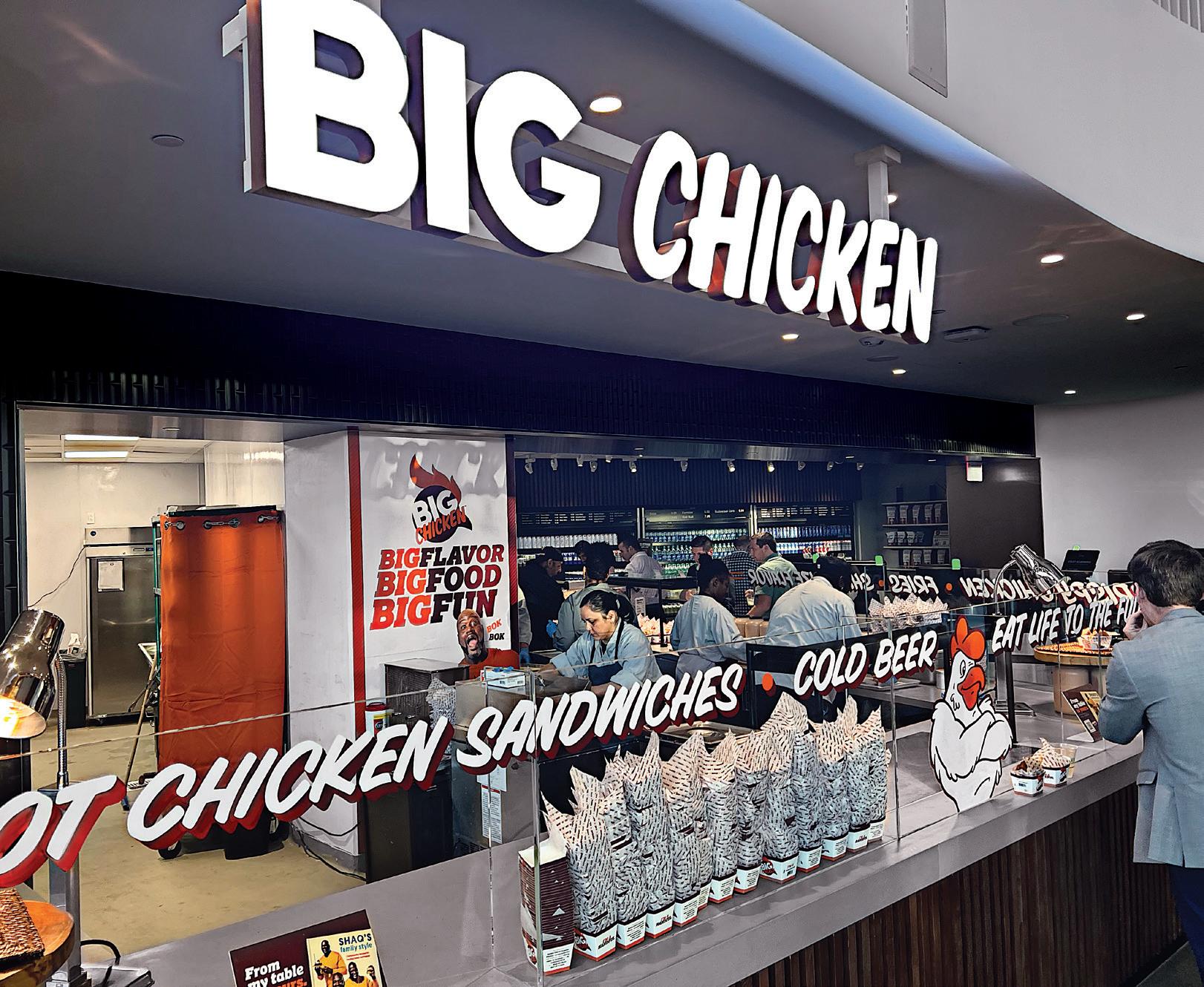
Just Walk Out lets guests insert their credit card at the location’s entry gate or hover their palm over an Amazon One device before entering. Leveraging computer vision, sensor fusion, and deep learning—the same technologies that power self-driving cars—it determines what items they take from Big Chicken, and the credit card they inserted or linked to their Amazon One ID is charged for the purchase.
“The reason for Just Walk Out is fairly simple,” Halpern says. “Food isn’t the main draw when you go to a sporting event or a concert. It’s a great part of the experience, but the draw is the game or the concert itself. So, the question becomes, how can we reduce friction? How can we get the best food in the shortest amount of time possible, so fans can get back to their seats and watch the game?”
The location is operated by Delaware North, which manages hospitality services at nearly 50 sports and entertainment venues worldwide. It’s just one example of the company’s focus on techdriven frictionless fan experiences coming out of the pandemic.
Jamie Obletz, president of Delaware North Sportservice, says concessions at stadiums and arenas are evolving faster than they ever have before.
“You had a period of 12-18 months where everything went dark,” he says. “When venues did start reopening, it was initially to no fans or with restricted capacities. It was tough going, but it gave us the opportunity to think about the business at a
deeper level and dream of what it could be when we reopened. Even more importantly than giving us the time to think that through, it gave us the change management inertia we needed.”
Conversations around innovation and new service models were happening before venues went dark, but Obletz says that 12-18 months period was the catalyst Delaware North needed to “supercharge” those efforts. One of the biggest changes was taking the business cashless, a move he says simplified operations, improved labor efficiency, increased speed of service, and expanded the size of the average transaction.
“As we’ve implemented a cashless footprint, we’ve integrated new ways of serving guests,” Obletz says. “We’ve transitioned a large part of our business away from traditional belly-up stands, and we’ve gone to marketplace concepts, where you can enter a market and have more free reign over what you’re picking. Then, when you exit that market, we’ve got everything from self-checkout to autonomous checkout, to digital camera-based checkout.”
Aramark also is embracing digital innovation. The company’s data science and design teams were studying technology and consumer interest trends like touchless and frictionless vendor experiences before the pandemic. By the time reopening began, it had developed a slew of innovations that could limit close contact and reduce congestion at the more than 200 stadiums and arenas it serves.
“Our clients were looking for things that were more frictionless coming out of COVID,” says Alicia Woznicki, vice president of design and innovation at Aramark. “We have the solutions to do that, and they also happen to really enhance the fan experience, too.”
Already commonplace in the greater retail market, self-order kiosks have emerged as a key area of focus.
“It was something that we weren’t getting a lot of adoption from pre-pandemic,” Woznicki says. “We’d have a kiosk location, and people would choose to go to the next section over.”
She says the biggest change in consumer behavior coming out of COVID was the considerable uptick in guests using kiosks. Along with speeding up service and freeing up employees to focus on other tasks, data from Aramark show that self-ordering systems lead to an 18 percent increase in sales.
Mobile ordering was another area of focus, but Woznicki says the company is still seeing limited consumer adoption on that front.
“Despite a lot of our partners
SPORTS FACILITIES ARE A MAJOR PART OF BIG CHICKEN’S GROWTH STRATEGY. BIG CHICKEN 36 JUNE 2023 | QSR | www.qsrmagazine.com TECHNICAL ADVANCEMENTS
NEXEO takes communication beyond the drive-thru and into key areas of your restaurant, increases efficiency with voice commands and group conversations, and seamlessly supports voice AI ordering. And that’s just the beginning.
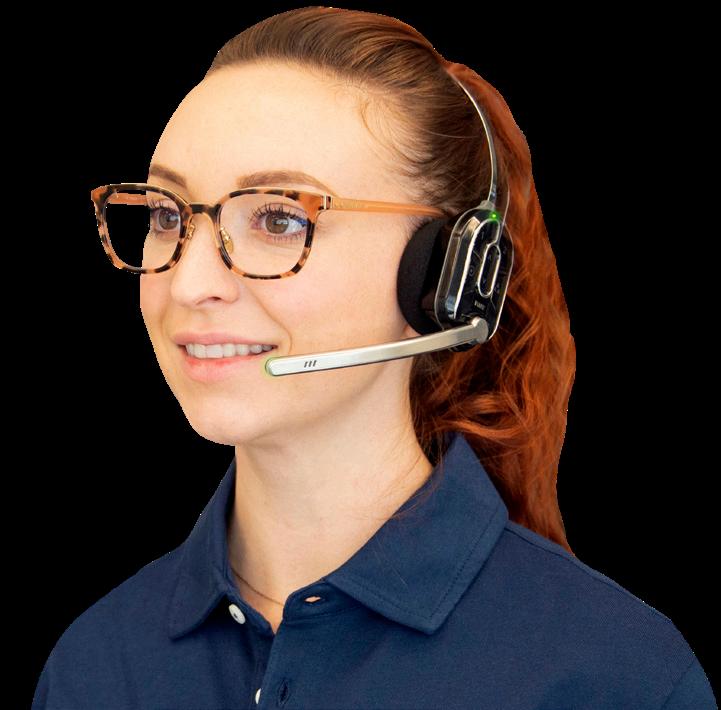
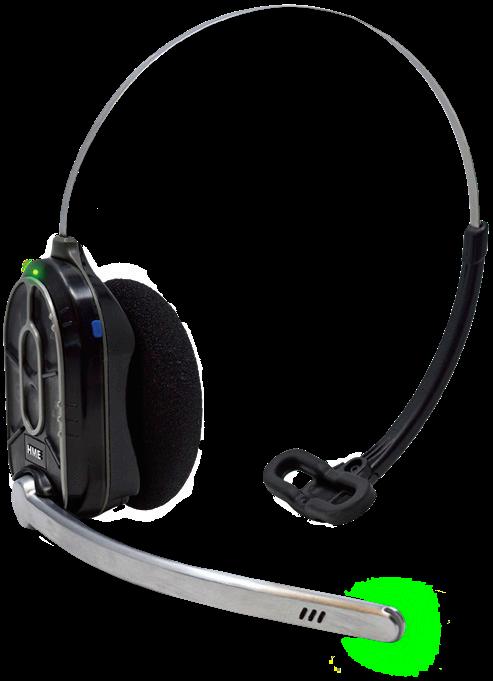
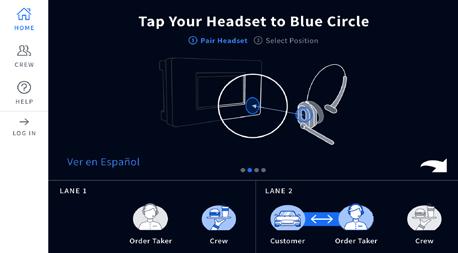
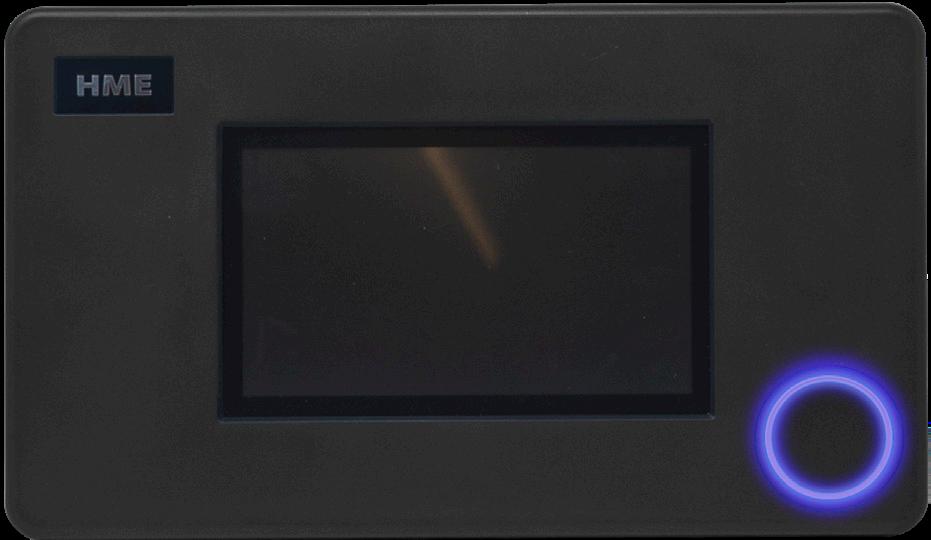

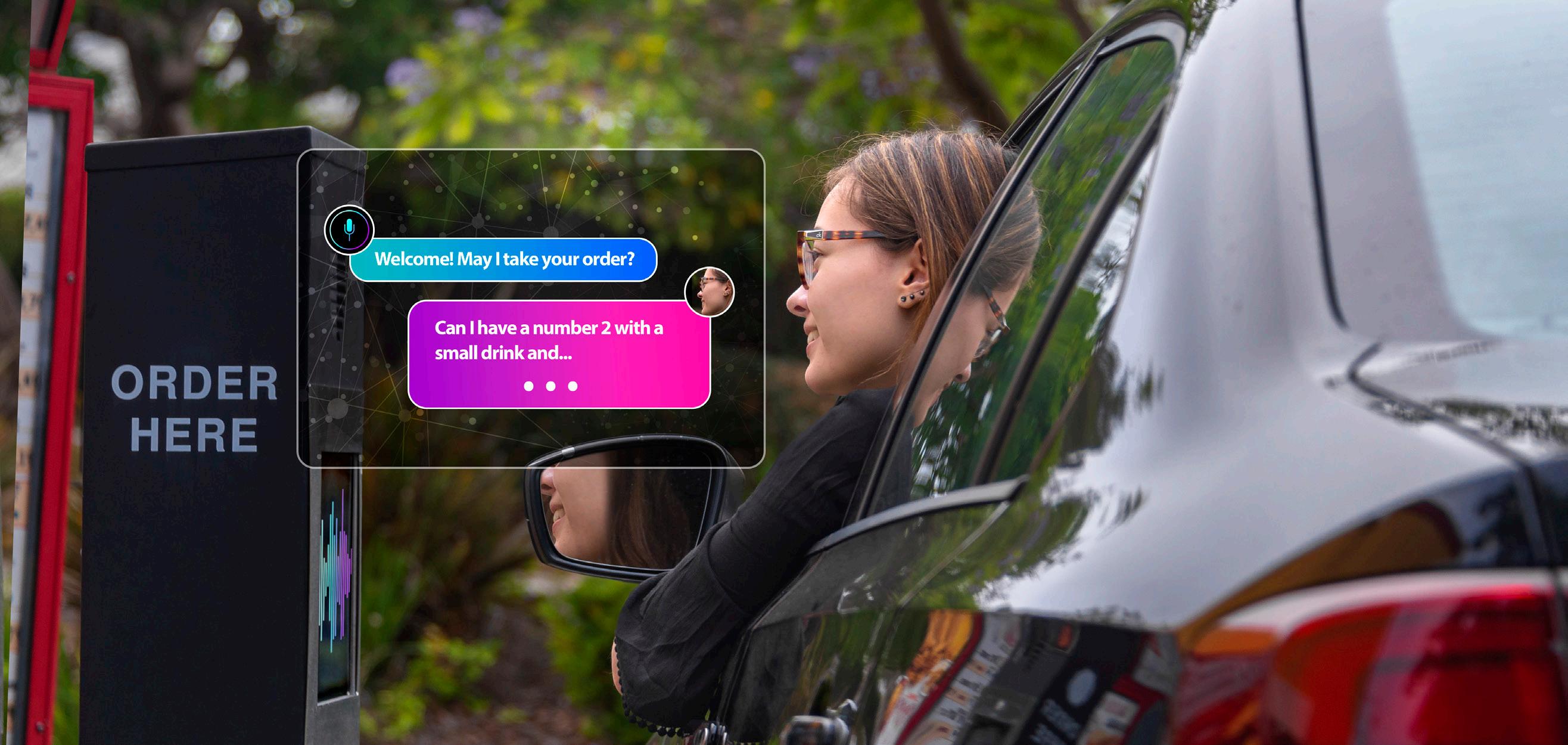


The Fully Digital Solution for Drive-Thru and Beyond 866.577.6721 | www.hme.com/nexeo © 2023 HM Electronics, Inc. The HME logo and product names are registered trademarks of HM Electronics, Inc. All rights reserved. Voice AI Ordering is Just the Beginning. “ OK NEXEO, Talk to Lane 1.” “ OK NEXEO, Volume 10. ” “OK NEXEO, Change Lanes.”
NEXEO | HDX™
Meet
and people in the industry thinking this was going to be the immediate change when we opened back up, we’re not necessarily seeing the consumer buy-in,” she says. “It’s one of those things that can get lost from a messaging perspective and the hustle and bustle of a stadium. I still think it’s coming, just not at the pace we anticipated.”
Aramark encourages digital ordering by pairing the systems with highly desirable menu items. It also is adding layers of convenience with concepts designed around the technologies. As an example, a Virtual Food Hall concept enables fans to purchase items from multiple locations throughout the building. Instead of waiting in four or five lines, they can go to a single pickup window to grab the entire order. A concept called Hall of Favs offers an even more consolidated version of that idea. It features the most popular concession items in one location, available via kiosk or mobile ordering.
“It’s almost like a ghost kitchen,” Woznicki says. “Instead of doing just one concept, you’re doing all of the most popular items throughout the entire building in a single high-powered kitchen. We’ve also done a lot around alcoholic beverages because that makes up such a huge portion of our sales across our portfolio.”
A Beer Express concept lets fans order and pay from their phone, then pick up their beer from one of more than a dozen
ogy with Amazon One devices. Guests who are registered with the system can pay with the swipe of a hand. Obletz sees similar opportunities to automate age verification for guests purchasing alcoholic beverages, but the possibilities don’t end there. In the future, he predicts stadiums and arenas will dedicate large portions of the venue, if not the entirety of the venue, to a completely seamless experience, where guests don’t even need to use their credit cards.
“Guest expectations are rising very rapidly, and our challenge now is to continue evolving the business in lockstep with those changing expectations,” he says.
Another task will be meeting heightened expectations around food and beverage offerings.
“This trend was very much underway pre-COVID, and it accelerated with the pandemic,” Obletz says. “You’re seeing two fronts on the culinary side. Expectations on quality and variety have increased, and expectations around local and offerings that are tied to the external marketplace have increased.”
Woznicki says concessions have been evolving beyond the typical stadium fare for years, and that won’t stop anytime soon. Aramark is tapping into the trend through LTO programs and partnerships with local providers.
This year, the company introduced a slew of collaborations
locations around the stadium after showing their ID.
“What we realized when we started saying, ‘Hey, you don’t have to check out, you can go right back to the game,’ is that there was one last piece of friction around checking IDs manually,” Woznicki says. “Everything is going smoothly, and then you’ve got this one bottleneck. So, we started thinking about how we can automate that process as well.”
The answer came in the form of an upgraded beer-purchasing program that uses facial authentication technology to speed up the age verification process. Fans still order and pay through their phones, but when they go to the beer stand, they scan their face for age and order verification.
Delaware North already is tapping into biometric technol-
across its MLB stadiums. A Taste of Queens concept in New York’s Citi Field features a revolving lineup of local eateries. Similarly, a Launch Test Kitchen concept lowers the cost of entry for up-and-coming brands, giving innovative newcomers the chance to gain exposure in stadiums without setting up a permanent location.
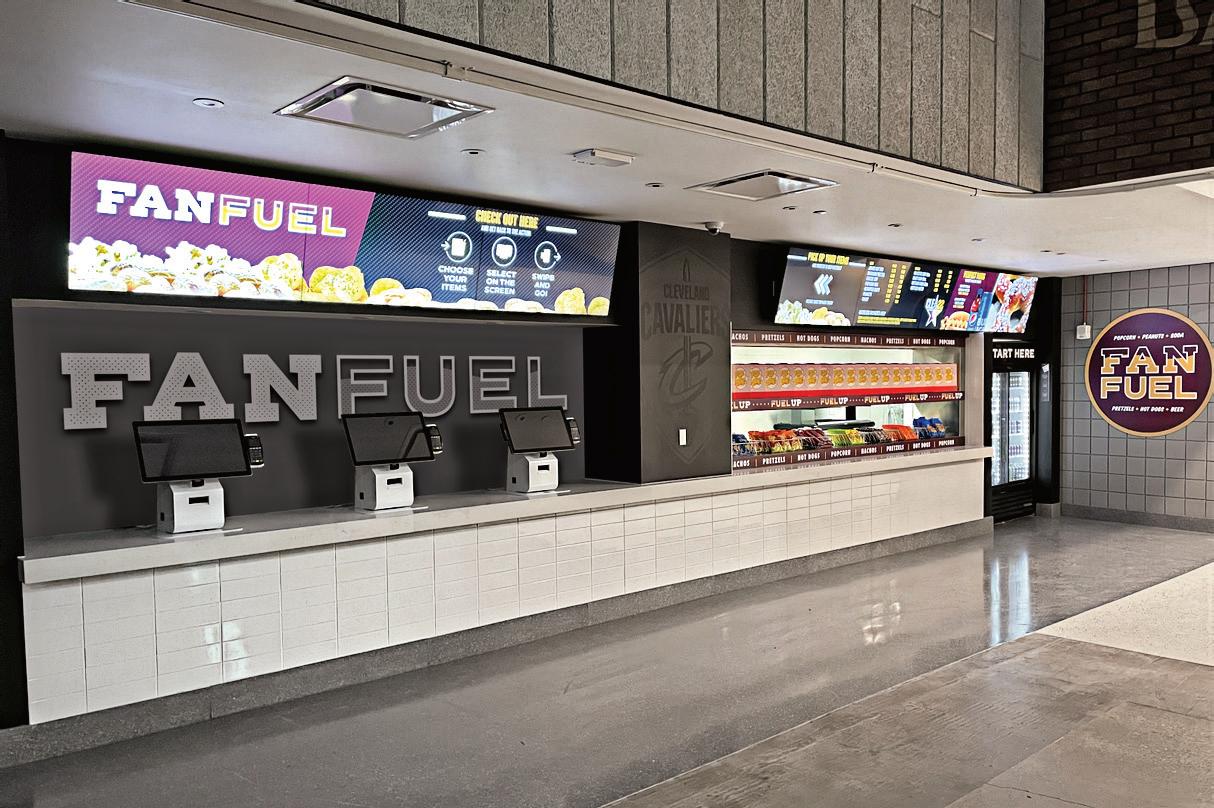
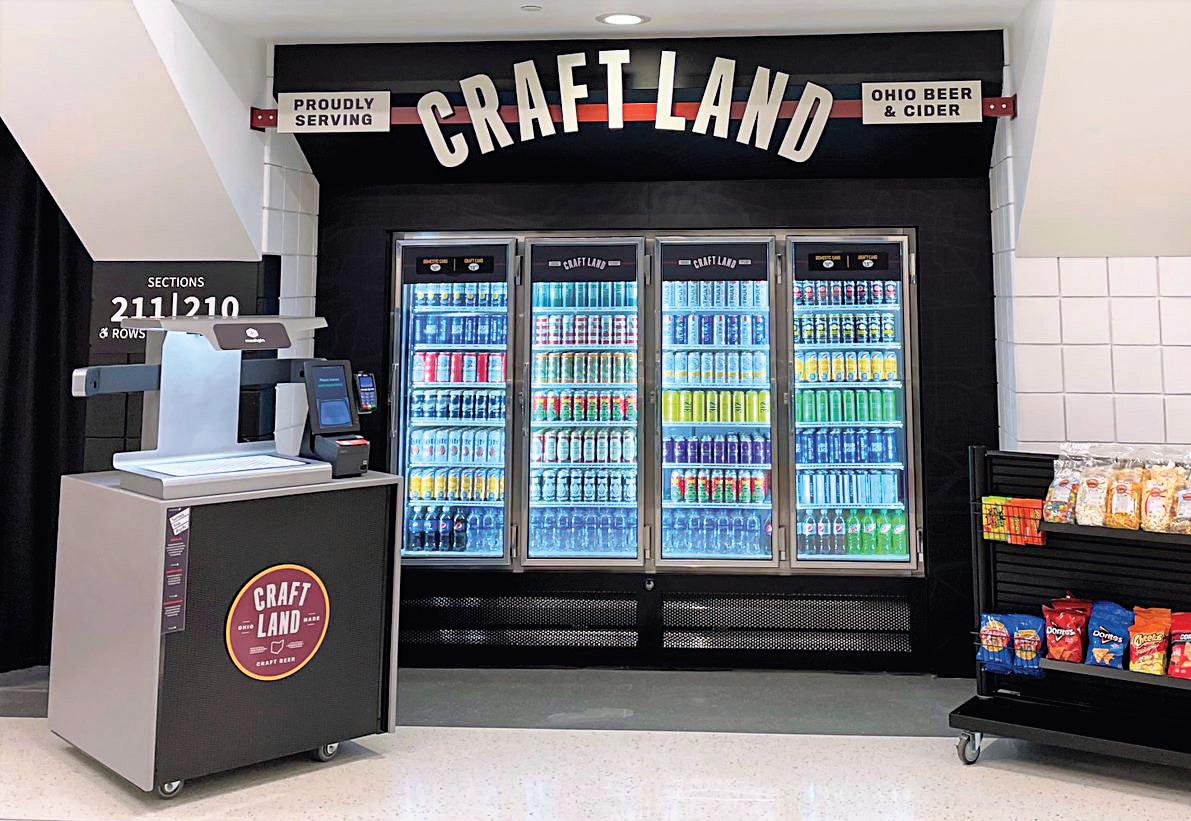
Aramark also is capitalizing on social media trends with successful LTO programs. Last year, it launched a Dare to Pair program that tasked chefs with developing their unique offerings featuring uncommon flavor combinations.
“We went viral with a Pulled Pork and Reese’s Peanut Butter Cup sandwich in Kansas City,” she says. “Even though it was a little out there, it really resonated with people and ended upbe-
ARAMARK (2) 38 JUNE 2023 | QSR | www.qsrmagazine.com TECHNICAL ADVANCEMENTS
ARAMARK IS RESPONDING TO CALLS FOR CONVENIENCE WITH SELF-CHECKOUT OPTIONS.
BOLD MOVE!
STAND OUT WITH THE SUSTAINABLE PRODUCTS IN BLUE.

With an iconic blue look and a feel that’s indistinguishable from plastic, phade® has the power to turn heads and customers into your biggest fans. Made with a natural biopolymer called PHA, phade products biodegrade in most natural settings, giving you the chance to offer the only sustainable, single-use products on the market that minimize waste and not the user experience – a fact patrons won’t soon forget!
Visit phadeproducts.com to learn how phade can impact your business and the world at large.
Marine Biodegradable | Home and Industrial Compostable | Made with All-Natural PHA
coming one of our highest-selling LTO programs. It helped us realize how the expectation around what used to be hot dogs, popcorns, and nachos is now so much more. People are even willing to experiment with completely out-of-the-box things.”
Big Chicken has catered to hometown fans with locallyinspired menu items. Earlier this year it entered Busch Stadium in St. Louis, home to baseball’s Cardinals, where it teamed up with a cult-favorite donut shop for a chicken sandwich served on a red-dyed maple bacon donut.
PDQ, a Florida-based fast-casual chicken chain, has concession stands throughout the Southeast, including in its home market of Tampa. Jeffrey Kamis, vice president of marketing and public relations, says the localized nature of those partnerships offers something that can’t be captured with traditional marketing collateral.
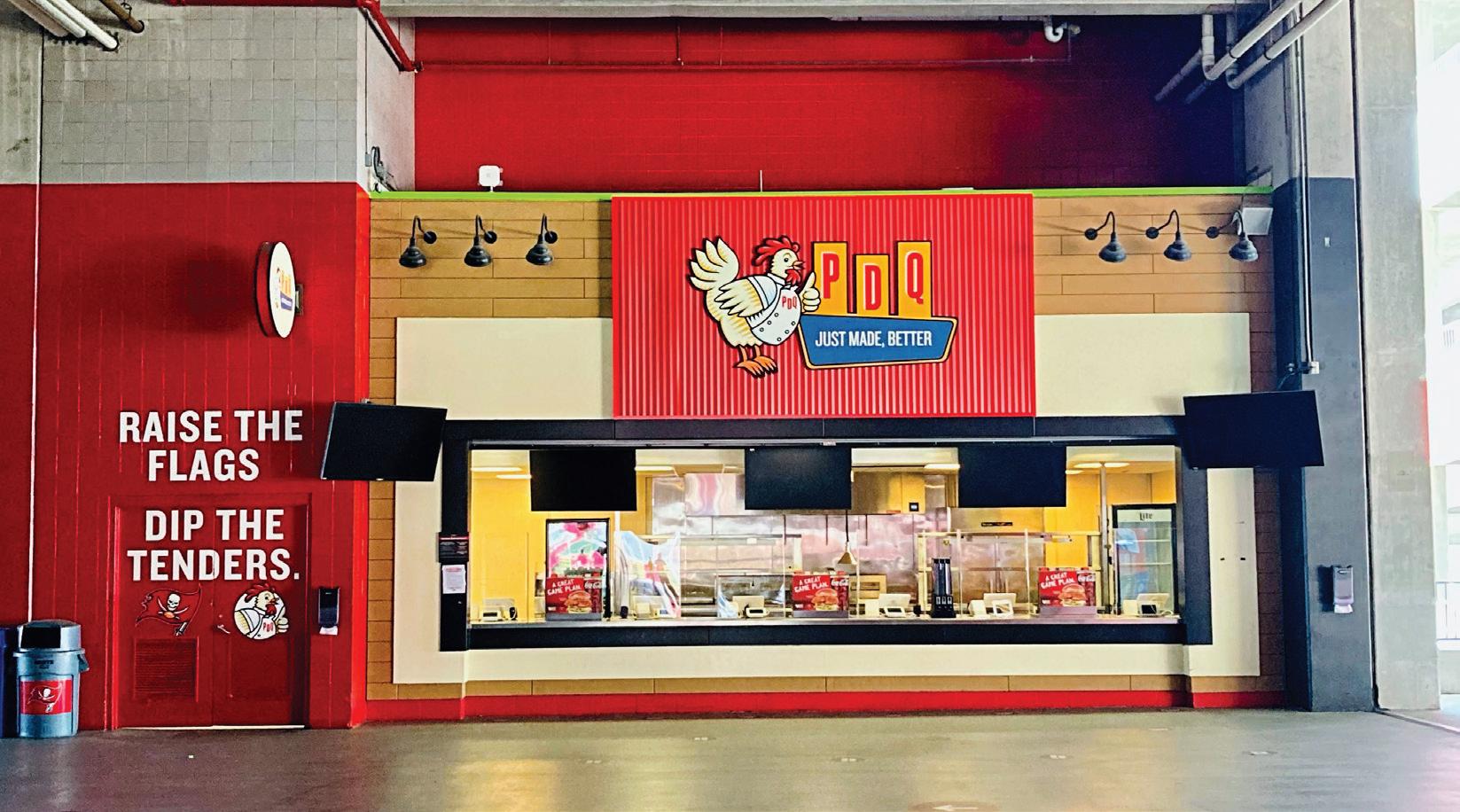
“The first PDQ was here in Tampa, and we’re the official chicken tender of the Tampa Bay Buccaneers,” he says. “That connection means something to people, especially here in our home market, where people are fans of the local teams.”
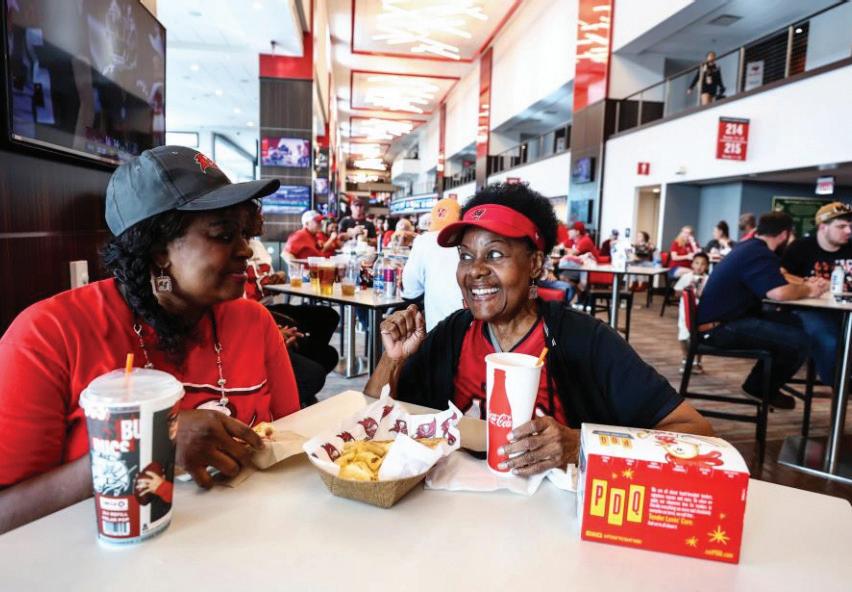
For fans that aren’t already familiar with the brand, the concession stands offer an unparalleled opportunity to convert stadium-goers into loyal customers. To further unlock that opportunity, the company has worked with its partners to streamline the concession stand menu and eliminate items that

aren’t resonating in the channel. Kamis says the smaller menu has improved speed of service and helped ensure the outlets are delivering restaurant-quality food.
“Regardless of who’s serving the food in the concession stand, it’s our name on the wall there. So from our perspective, it’s really important that the brand is represented the right way,” he says. “Our chicken is handbreaded and cooked fresh right at the stands, so we do training with staff at all the venues several times a year to make sure they’re up to date on all the procedures.”
Big Chicken had to adjust its standard operating procedures in concession stands to handle the massive influx of volume. A single stand may sell around 500 sandwiches in 30 minutes during a concert, or 1,000 sandwiches in 90 minutes during a sporting event.
“In brick-and-mortar restaurants, we’re dropping the chicken made-to-order, but here, we’re always dripping chicken and then dressing it made-to-order,” Halpern says. “If you’re going to order an Uncle Jerome–our Nashville hot sandwich–we’re going to quickly dunk it in the Nashville hot oil, add the toppings, and out it goes. But the chicken was already in motion before you ordered.”
For restaurant brands that make an impression in the stadium, he says the benefits of concessions extend far beyond the revenue generated on game day.
“In the beginning, we were the no. 1 concession stand in the Climate Pledge Arena, and we didn’t have any brick-andmortars in that market,” he says. “I used to joke with Shaquille that getting into stadiums early was both a blessing and a curse because if people loved our food, the closest restaurant was about 1,000 miles away.”
When the brand opened its first location in Seattle, it quickly became the No. 1 store systemwide.
“We had massive built-in demand the minute we opened our doors,” Halpern says. “Now, if we know we’re going into a stadium or arena, the question becomes, how do we get a franchisee there?
“If we’re going to generate all of this demand, we’d be crazy not to ensure that fans are able to get our food when they leave the stadium, too.”
Sam Danley is the associate editor of QSR. He can be reached at sdanley@wthwmedia.com
PDQ (3) 40 JUNE 2023 | QSR | www.qsrmagazine.com TECHNICAL ADVANCEMENTS
PDQ HAS CONCESSIONS THROUGHOUT THE SOUTHEAST, INCLUDING ITS HEADQUARTERS IN TAMPA.
Safety in every sense. From investment to usage






















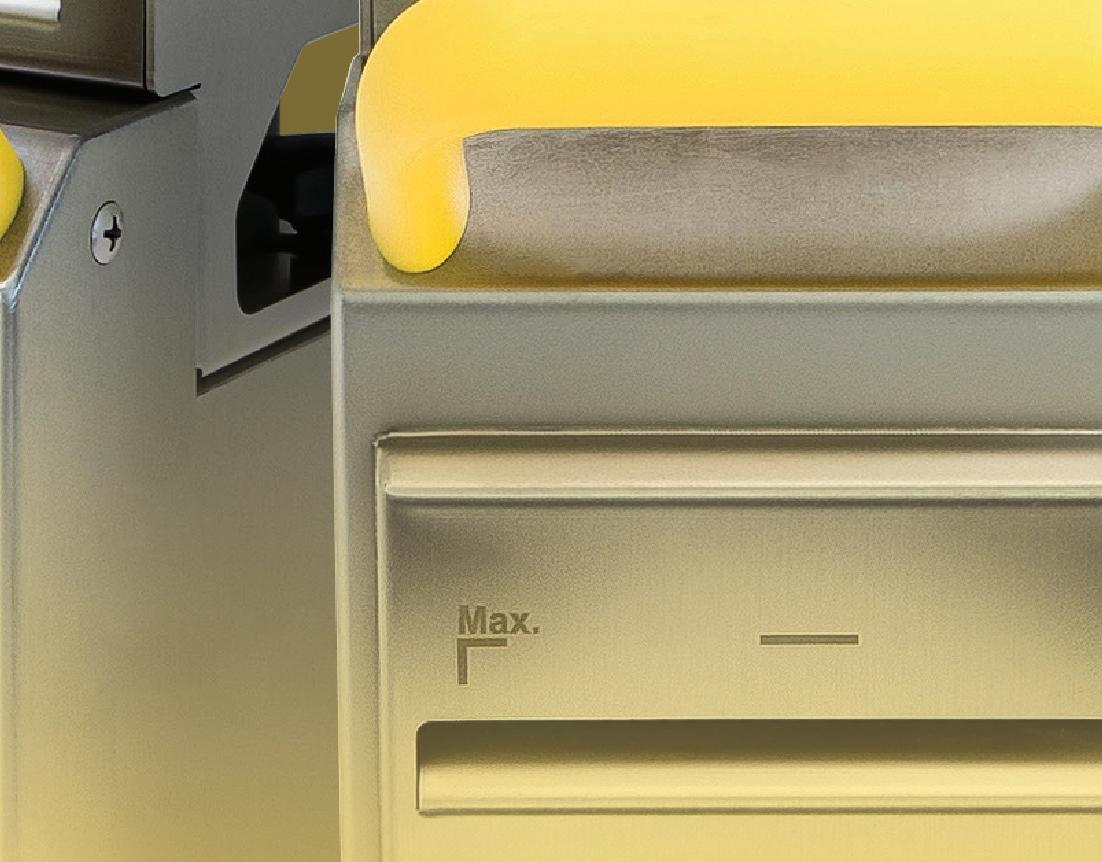
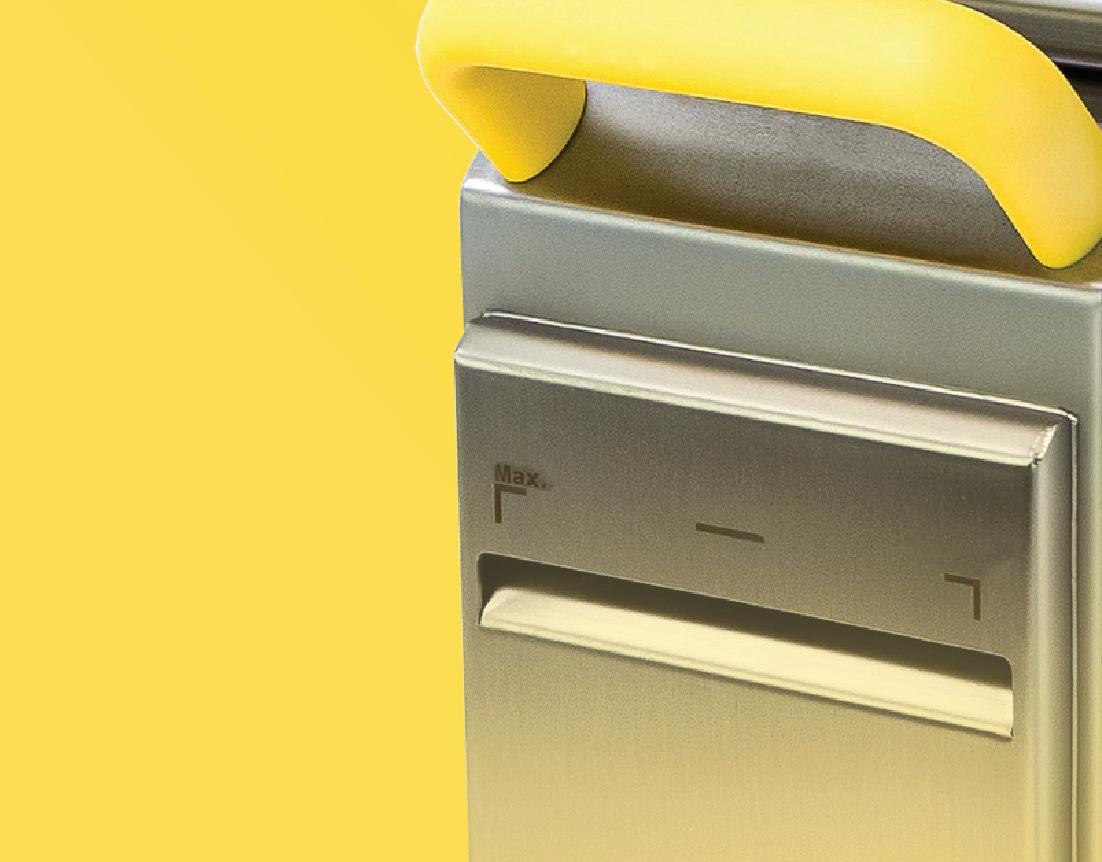
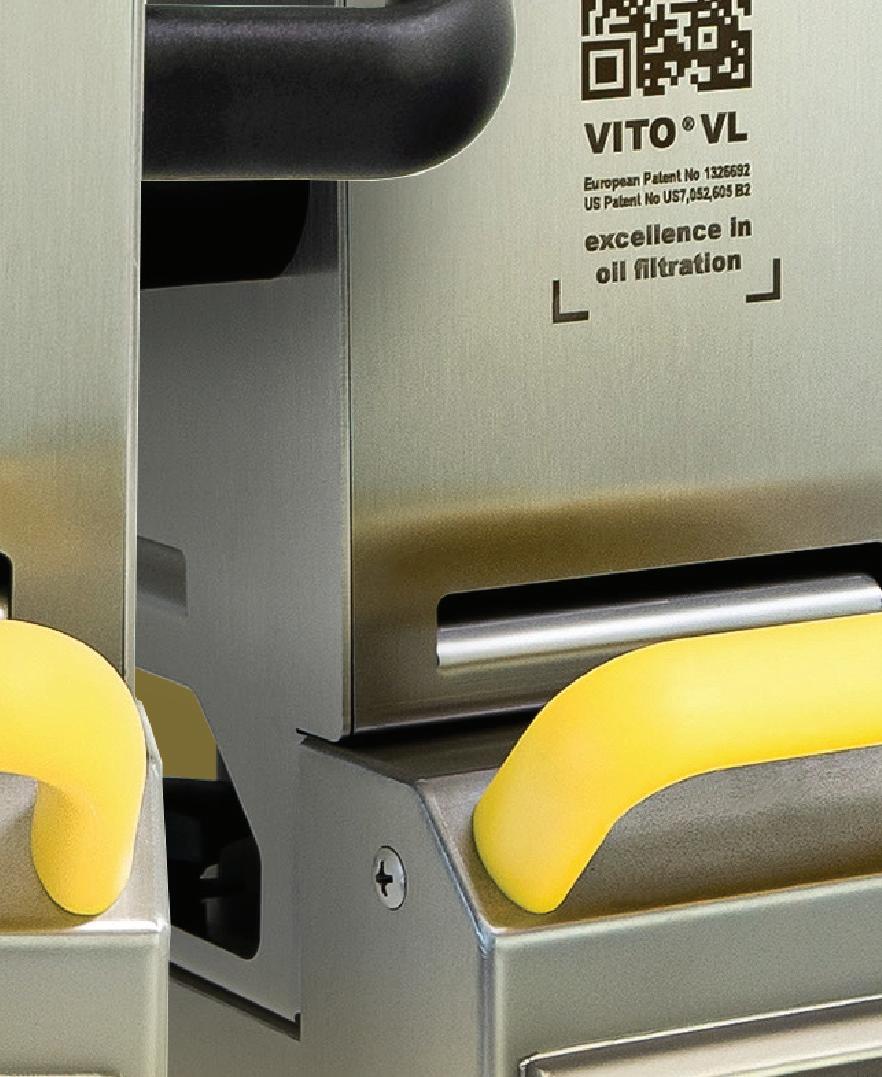

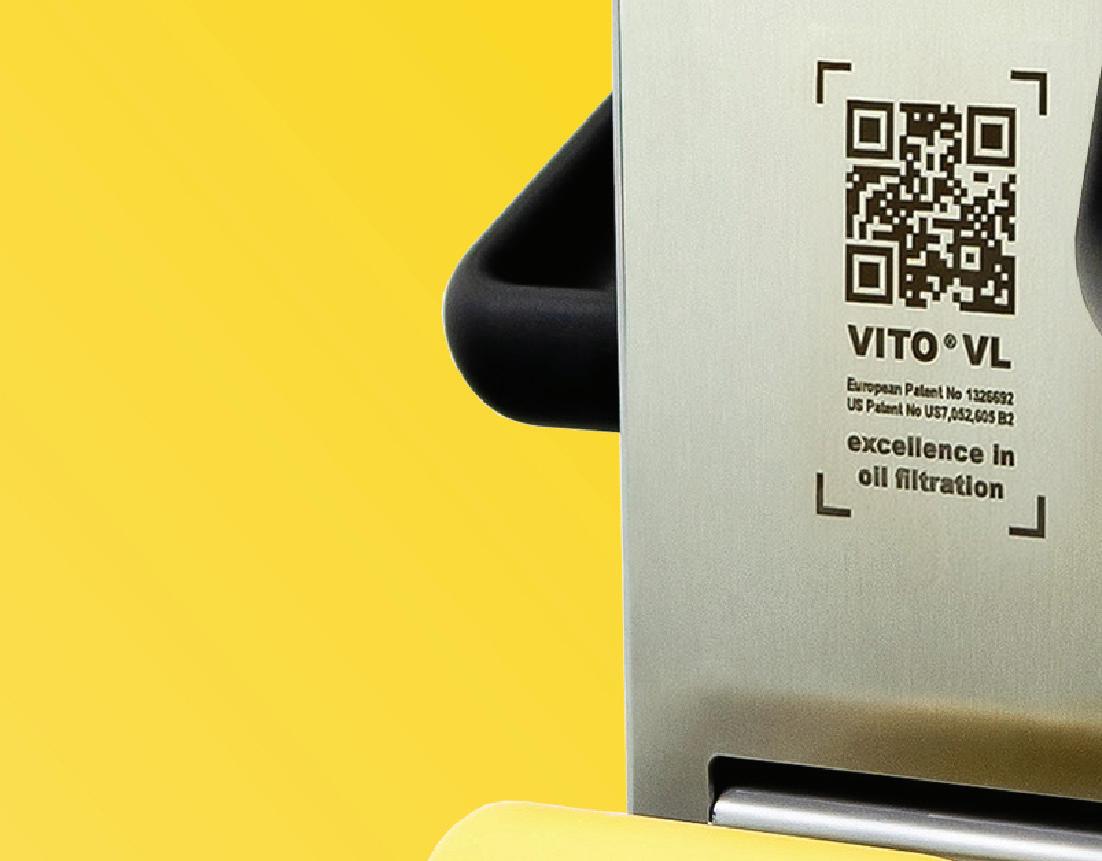
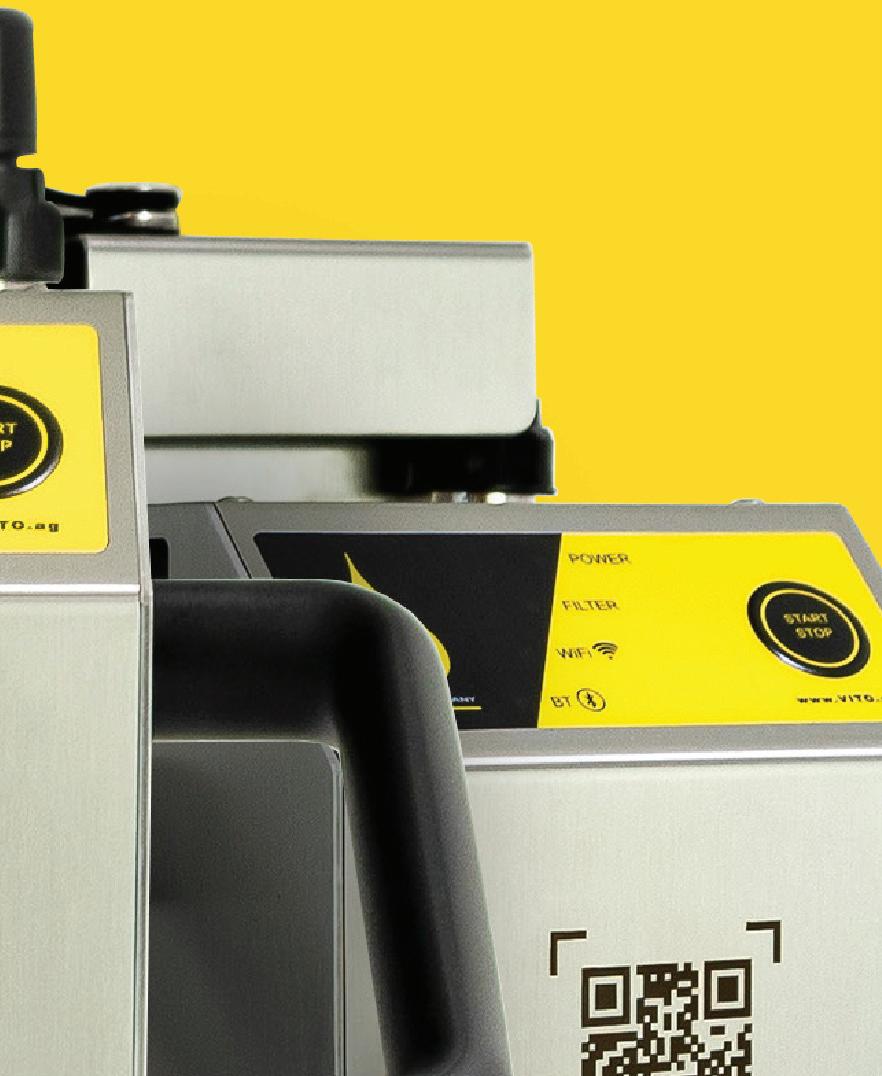
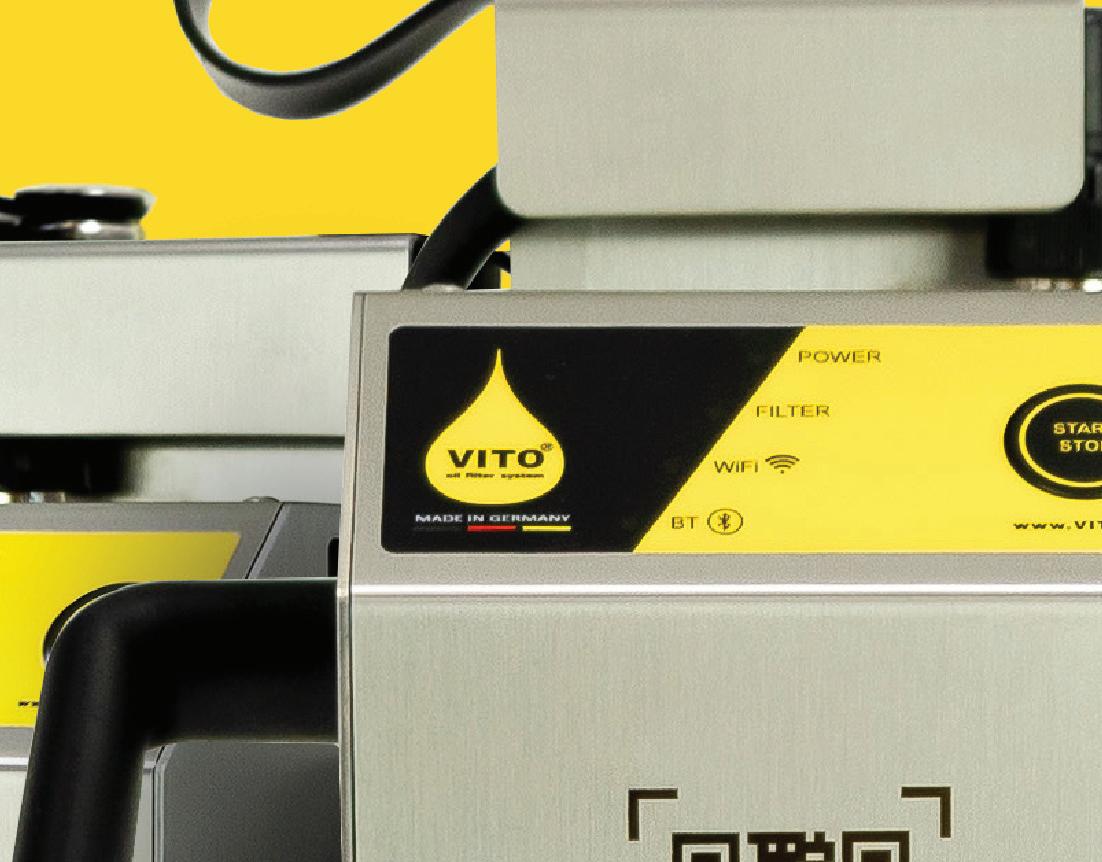
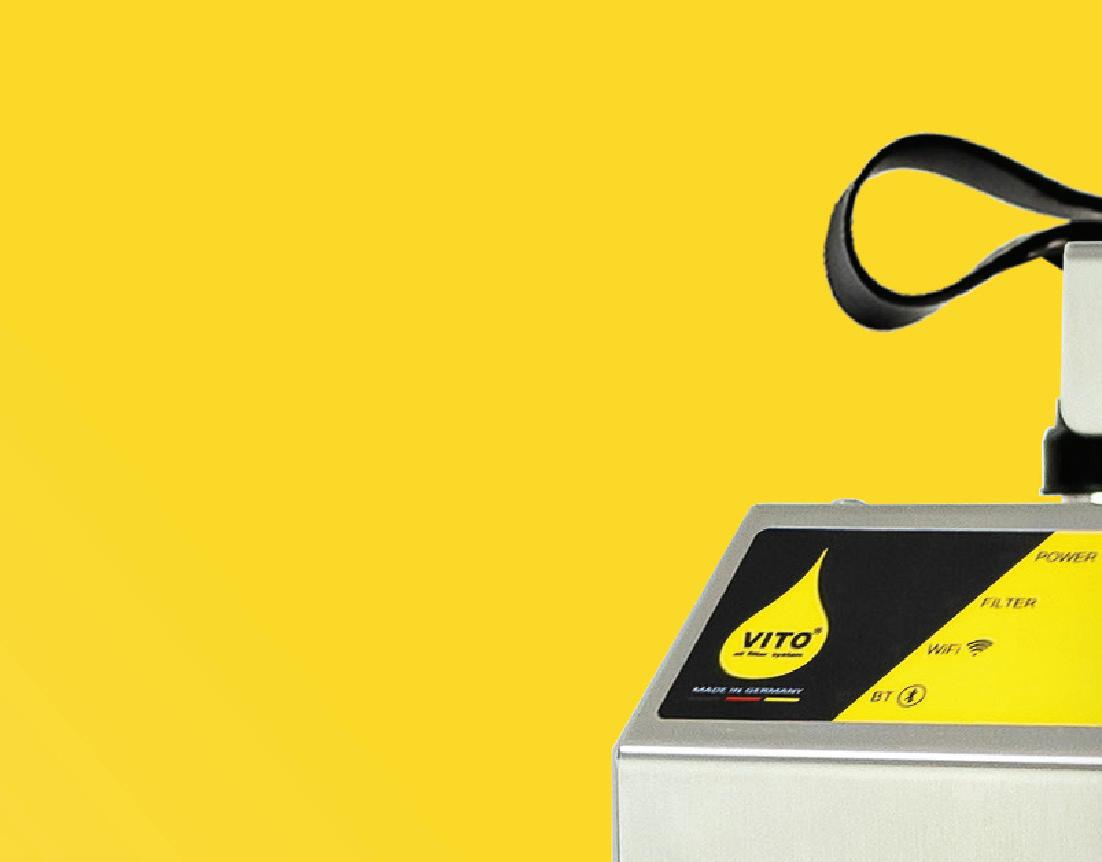








oil filter system
only in-tank filtration worldwide @VITOfryfilter
with us
up to 50% of your frying oil
The
Connect
Save
LOUD KRYSTAL CLEAR AND
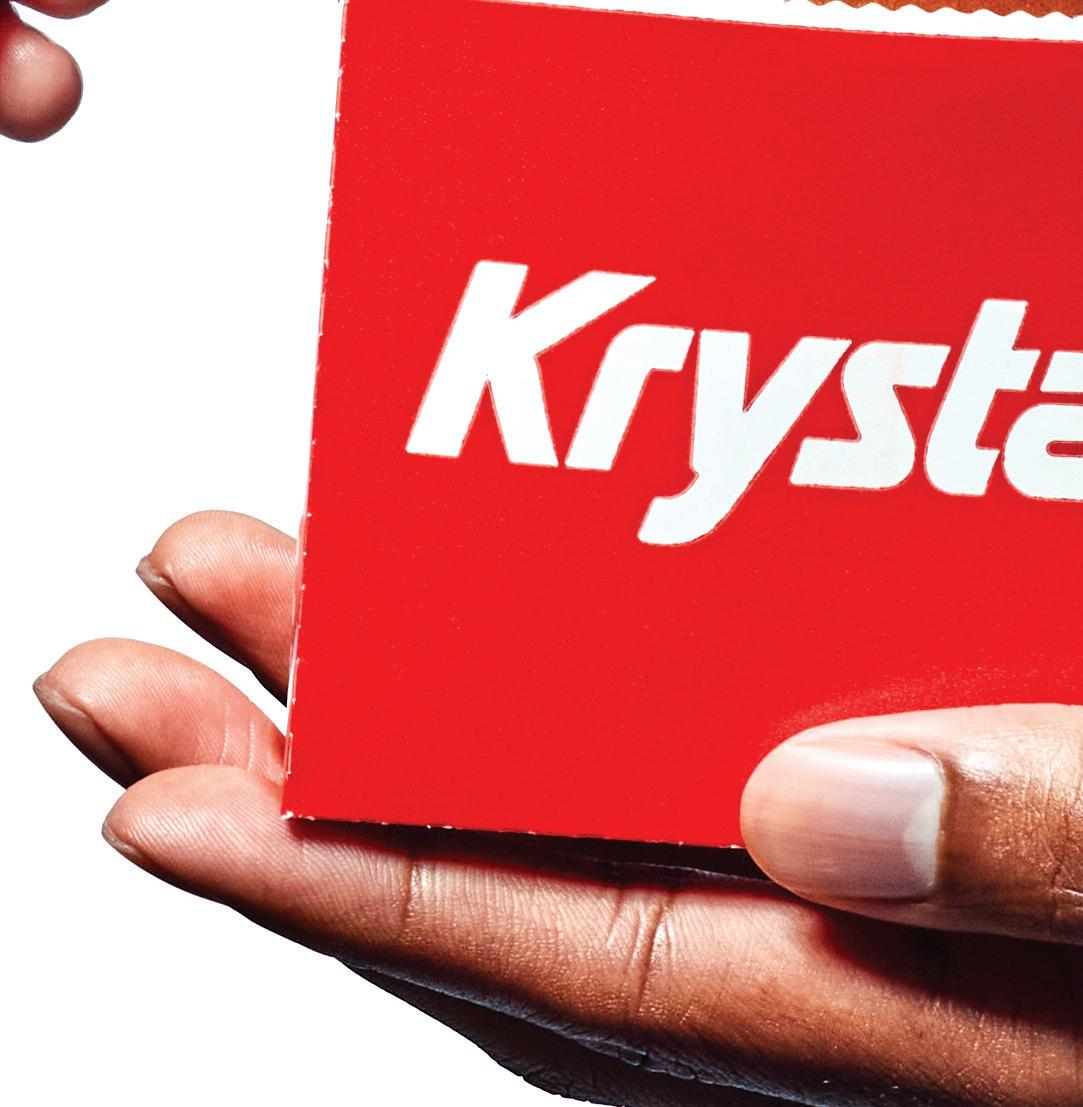
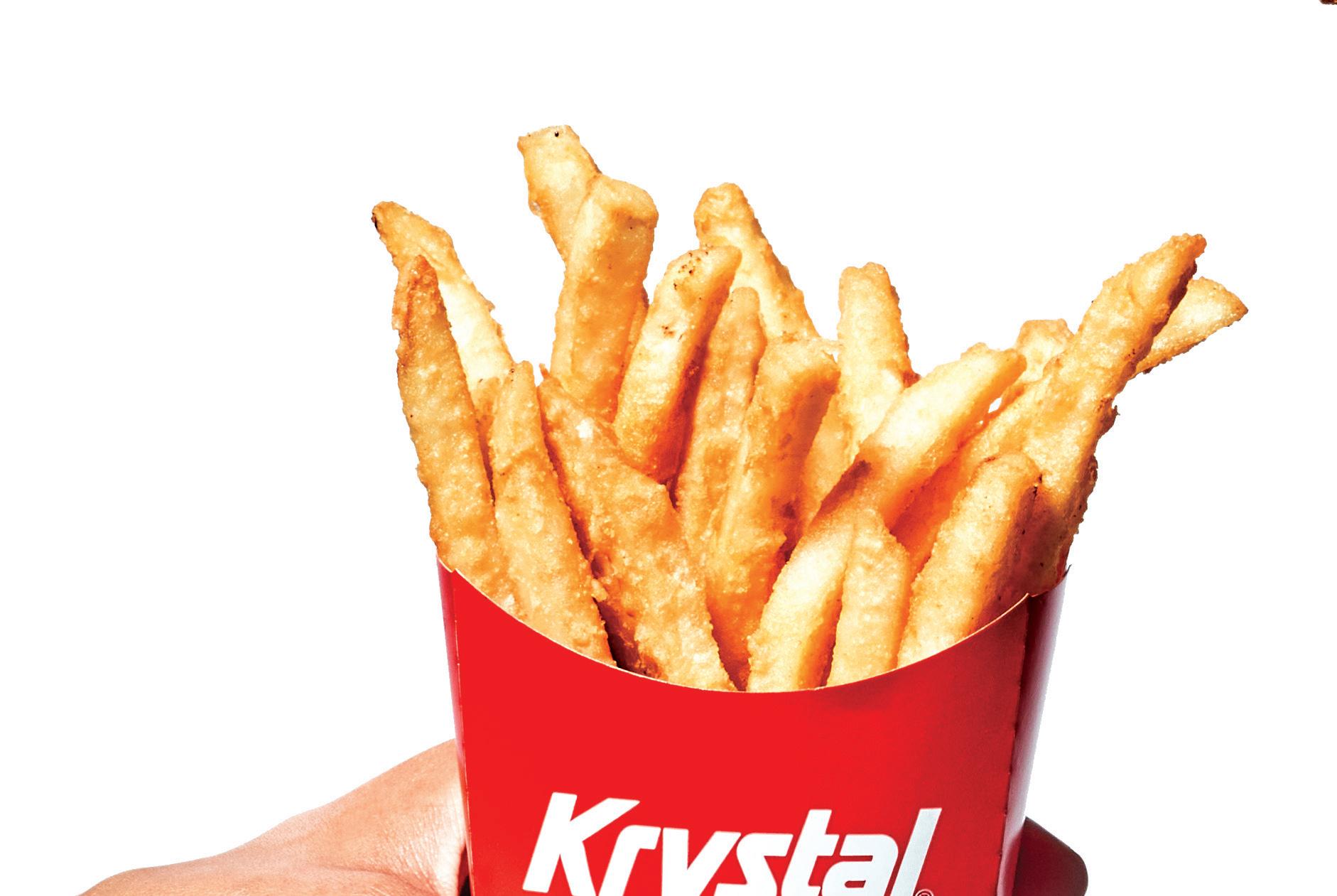
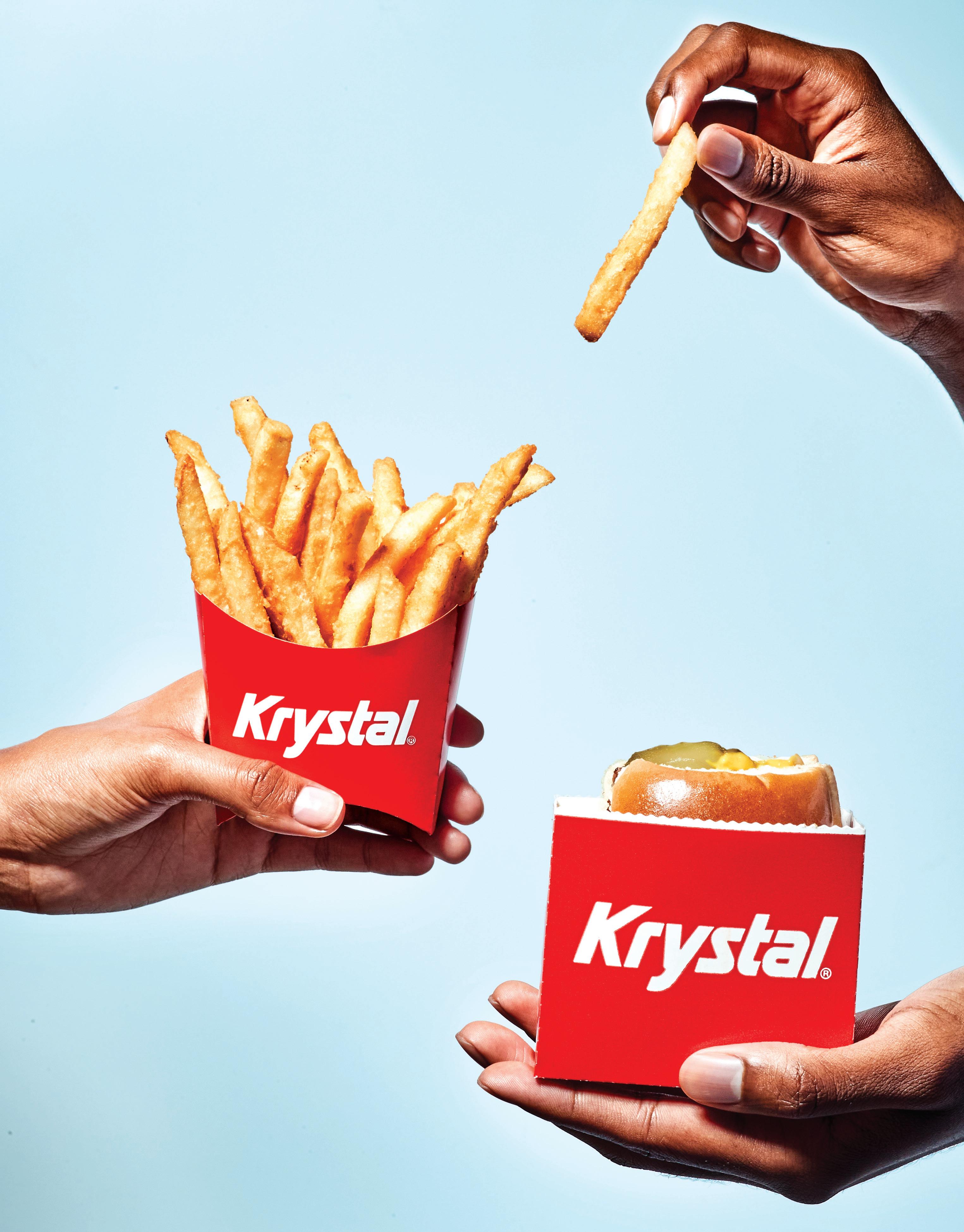
42 JUNE 2023 | QSR | www.qsrmagazine.com
KRYSTAL REFUSES TO ACT ITS AGE.
The 91-year-old Atlanta-based chain is learning a lot from partners—Datassential, Brandwatch, and Sparkfly, to name a few—to see how customers are reacting to its messages. Krystal is determined to understand who its authentic audience is and where it needs to double down. The brand has about 300 stores nationwide, but most are in the Southeast. The legacy company has dreams beyond its current geographies and product lineups. It wants to be a more mainstream quick-service restaurant.
“If somebody comes to us, where else did they go? What is our true competitor?” says CMO Casey Terrell. “Because it’s White Castle, but not really because there aren’t really White Castles in the South outside of Orlando and some other places. So where do they truly go? So it’s the big guys—McDonald’s Burger King, Taco Bell, Chick-fil-A. And we’re the original late-night spot that some other brands have filled in. So we’re just trying to reclaim a lot of our lost ground.”
“I think that we did a really good job this last year of putting a flag down that we were here,” he adds. “We’re still alive. We’re 91 years old, but we’re innovating and getting better.”
In January 2022, Krystal made waves by announcing rap star 2 Chainz as its head of creative marketing. The music icon is tasked with creating multiple platforms and partnerships covering menus and mer-
Spicy Chik, Donut-Glazed Sweet Chik Biscuit, Donut-Glazed Spicy Chik Biscuit, and the Classic Chik—against each other and let fans vote for their favorite.
The brand also asked guests—via Twitter, Instagram, and TikTok—to develop its latest tagline. The winner was “Now you Know.” Terrell says social media is supposed to be about conversation. He sees brands always claiming they want engagement online, but it’s the same research, focus groups, and tests. This time around, Krystal wanted to ask followers in real-time.
“Let’s try to break the mold a little bit here,” Terrell says. “I don’t need to go to a research agency that’s going to give me an N of 1,500 and tell me statistical significance. I just want to get a check from my fans about what they like. And so we’ll continue to do more stuff like that because I thought the cool thing to look at for the fan was, ‘Oh, they actually did something based on what we said instead of like, ‘Oh yeah, we get a temperature check.’”
Terrell says the intention is to target younger, college-aged customers engaged in the urban hiphop community. But the executive also recognizes there are several Krystal stores in rural areas that it doesn’t want to upset or alienate. He refers to the group as the company’s “pastoral pride.”
“How do we parse those two messages to make sure it’s one brand? Terrell asks rhetorically. “We’ll

AFTER DECADES OF OPERATIONS, THE LEGACY RESTAURANT IS FINDING A NEW VOICE.
/ BY BEN COLEY
chandising. The biggest splash came a few months later with the company’s new “Side Chik” chicken sandwich, a term popularized by millennials and Gen Z. The campaign, created with marketing agency Chemistry and internet personality Brittany Renner, was executed across television, social, out-of-home, and more. Around the same time, the concept showcased actor and singer Ray J in commercials to remind customers of late-night offerings.
Krystal began 2023 by releasing new commercials for its Sunriser Breakfast Sandwich with the help of Les Garland, cofounder of MTV and VH1, and Libbie Higgins, an online influencer. More recently, in honor of the NCAA Tournament, the slider chain released a TikTok-based Side Chik bracket. Krystal pitted its Side Chik lineup—
still use our partners. We’ll do a lot. I think we’ll add to the base. I think that there’s some stuff on the country side that we’ll do. Some other artists that we like. But the most important thing for us is the experience.”
These efforts were about “let’s just get some excitement and take a risk,” Terrell says. Moving forward, Krystal doesn’t plan to be shock and awe constantly. The brand doesn’t want customers continually thinking, “Where are they going to go now?” However, Krystal won’t go stale either. The company wants to be more connected on social media and immersed in the zeitgeist. Terrell used the comparison of Wendy’s, which operates more like a friend you follow—full of memes, funny responses, and videos.
KRYSTAL
www.qsrmagazine.com | QSR | JUNE 2023 43 BRAND RENEWAL
Krystal’s way of pushing the envelope will be through new and different culinary products.
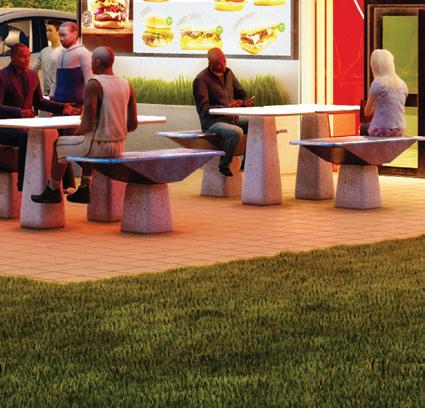

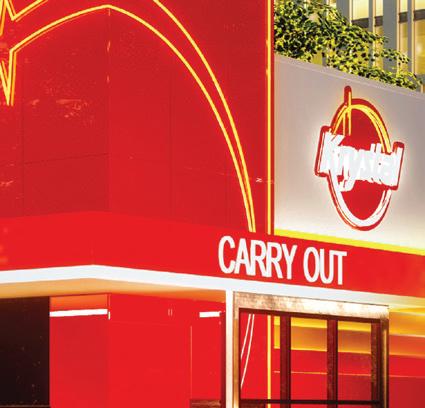

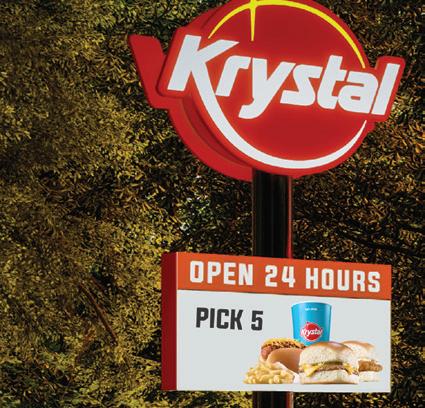


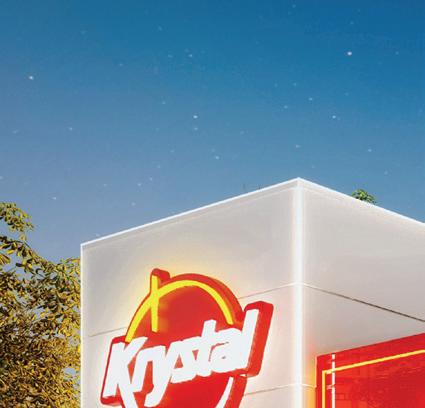
“I think we’re less focused on how do we shock as opposed to how do we now use all of this brand?” Terrell says.
Ray Kees, director of culinary for Krystal, says the company’s menu innovation is essentially the same as others—a stage gate funnel process that starts with 200 ideas for one particular item. They’re all filtered and flushed through various steps of testing. Then, depending on the product’s concept or marketing, it may go through consumer location tests and focus groups. But everything doesn’t have to go through the rigors. Some of it is common sense.
“Some items we develop here in the test kitchen,” Kees says. “We’re like, ‘You know what, it’s a milkshake.’ People love milkshakes. There’s certain parameters you want to hit based off season and your target audience, but we don’t necessarily have to put everything through the rigors of testing.”
This is Kees’ second stint at Krystal after working for the brand from February 2016 to October 2018. He says new ownership is more focused on quality. One of the first projects he worked on was reengineering the Side Chik sandwich. Before he came on board, it was a chopped and formed product, which isn’t bad, Kees says. The item served its purpose, but Krystal knew customers wanted something different. So in the latest version, the build is the same, along with a crunchy, savory coating and “whole muscle” white meat breast.
Krystal—known for its small sliders— also found an oppor-







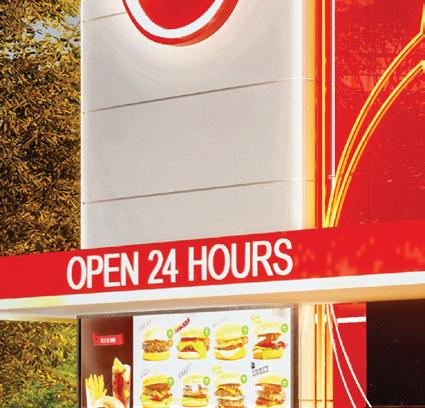


tunity to fill consumers’ needs with a more indulgent burger. As of press time, the chain was testing a larger iteration with quarter-ounce patties seared on a griddle, and a potato bun, cheese, sauce, and a pickle.
It’s an example of the brand’s nothing-off-limits approach to culinary creations.
“We’re willing to look at just about anything,” Kees says. “In the past, we haven’t been, which also held us back in innovation because if it didn’t fit on a small hot dog bun or fit on a little 2.5inch slider bun, we would throw it out. We just wouldn’t look at it. If it didn’t go into the deep fryer, we would also throw it out. So we’re looking at ways to use our equipment a bit more. That opens it up a bit. We’re having a little bit more fun with the menu.”
Terrell says none of these changes matter if customers don’t have a good experience at the restaurant and operations aren’t up to speed. To ensure this, Krystal hired industry veteran Jermaine Walker as its vice president of operations. He most recently served in the same role for Slutty Vegan. Also, he spent nearly 10 years with GPS Hospitality, a franchisee of Burger King, Popeyes, and Pizza Hut, and worked as director of operations for TGI Fridays.
Walker is never in the office, and Terrell loves it. That means he’s visiting restaurants and upholding standards.
“This brand was founded on Crystal Clean,” the marketing executive says. “That’s where the name came from. Clean as a crystal. That has not been the guest experience, and we need it to be. And so a huge part of our main focus is on oper-

KRYSTAL’S NEW PROTOTYPE DEBUTED IN CENTER POINT, ALABAMA. KRYSTAL 44 JUNE 2023 | QSR | www.qsrmagazine.com BRAND RENEWAL

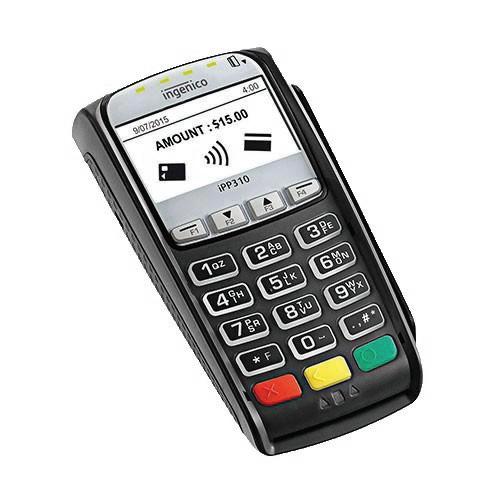
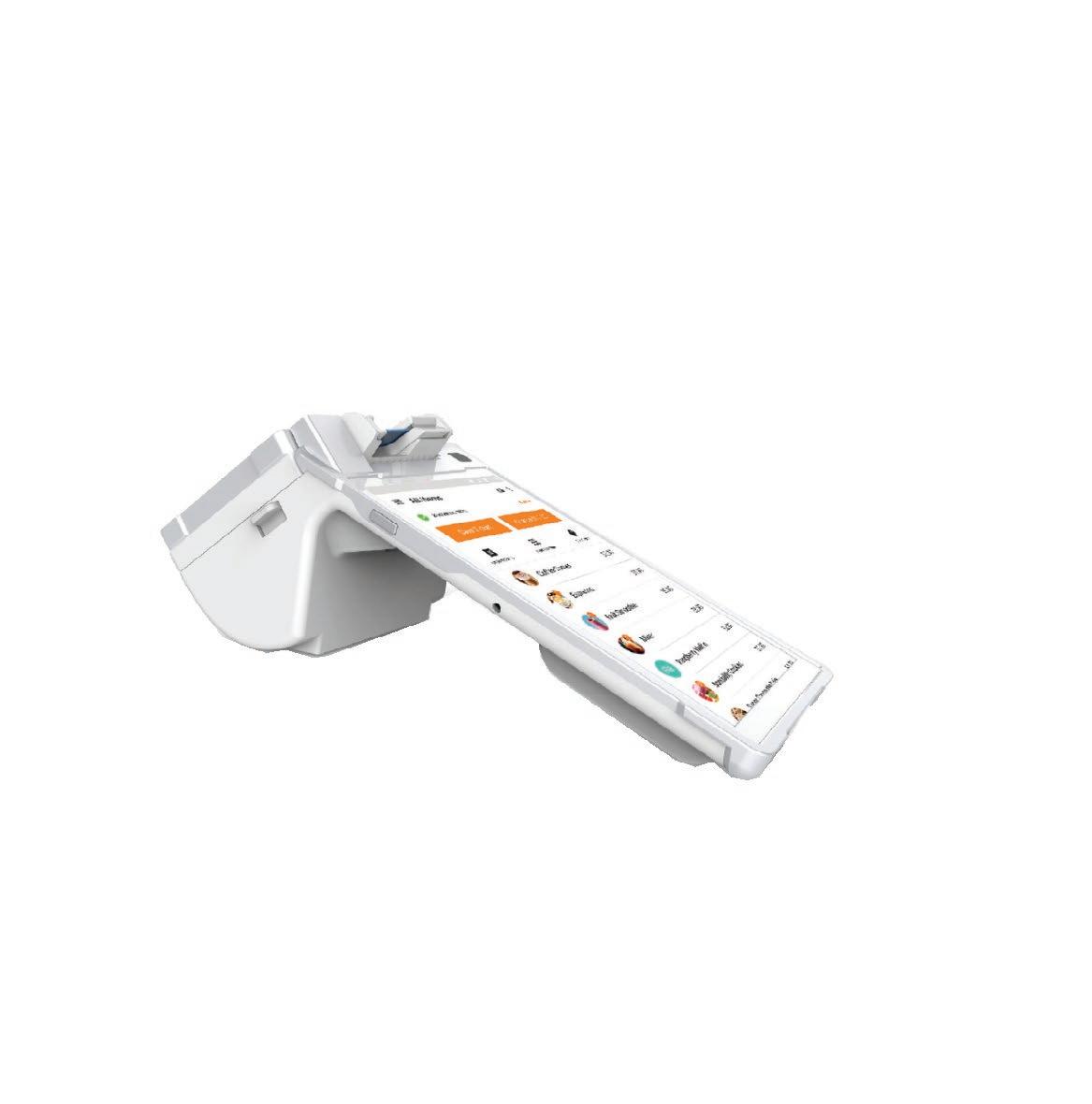

• FREE NFC & EMV-Ready Terminal & Pin Pad or wireless terminal. • Accept payments in-store, online, or on-the-go. OPTIONAL PROGRAMS: EDGE: The Best CASH DISCOUNT PROGRAM from North American Bancard Are you ready to get rid of the impact of payment processing costs on your business? With the Edge Cash Discount program you will enjoy the same profit margins from cash payments as you do from non-cash payments. • Point of Sale Systems Recommendations, Solutions & Integrations • Accept EBT/Snap Low Transaction Fee Accept EMV/NFC (Apple Pay, ETC.) EBT, Snap, Checks and more Next Day Funding with weekend settlement Rates as low as .05%* REDUCE YOUR CREDIT CARD PROCESSING FEES FREE Credit Card Terminal Placement Wireless/Landline/High-Speed/Dial-Up Easy setup (with no setup fees and quick approvals) Seamless integration with your current POS $295** towards your early termination fee (if you have one) with your current processor Access to Payments Hub - our secure, online merchant portal Free paper** GROW YOUR BUSINESS. PARTNER WITH NAB TODAY! 866.481.4604 © 2022 North American Bancard, LLC (NAB). All rights reserved. NAB is a registered ISO of BMO Harris Bank N.A., Chicago, IL, Citizens Bank N.A., Providence, RI, The Bancorp Bank, Philadelphia, PA, and First Fresno Bank, Fresno CA. American Express may require separate approval. *Durbin regulated Check Card percentage rate. A per transaction fee will also apply. **Some restrictions apply. This advertisement is sponsored by an ISO of North American Bancard. Apple Pay is a trademark of Apple. WWW.NYNAB.COM INTEGRATE WITH YOUR POS
ations and just getting back to what made us great. That’s really on the corporate side. The franchisees have done an amazing job forever and they’ve continued to, so we’re trying to make sure that the brand you see on social media and online and on TV matches the in-store experience. And a lot of that really has to do with corporate stores and getting better.”
Terrell, who came onboard in 2022, admits Krystal has had hiccups in the past and the communication with franchisees hasn’t always been the best. For the past decade, leadership hasn’t been consistent. Fred Exum was CEO for nine years until Argonne Capital bought the chain in 2012. In the following years, the brand cycled through several chief executives before entering bankruptcy in 2020 a couple of months before COVID hit the U.S. Krystal was eventually purchased by Fortress Investment Group in May 2020 for $48 million. In 2023, the brand merged with SPB Hospitality, parent of Logan’s Roadhouse and Old Chicago.
Franchisees have had a front-row seat to the past turmoil, and Terrell says transparency and explaining the data behind decisions will go a long way in building trust. Some operators have been around a long time. Wayne Hale, who Terrell describes as the “godfather of Krystal,” has been with the brand for three decades. The executive leans on the advice of operators like Hale. There’s an official Krystal Council, but a lot of it is also informal text messages and calls.
“We’ve made some mistakes and we had to rectify them,” Ter-
rell says. “But in general, they know that we care. We’re on the same page. This brand has been around a long time with a lot of owners, and they’ve seen me multiple times. It’s on us to earn their trust. We really try to be as transparent as possible.”
Terrell says much of it comes down to getting wins, driving traffic, and building sales. In January, a new 1,700-square-foot double drive-thru prototype debuted in Center Point, Alabama. It uses 20 percent less kitchen space and comes without a dining room.

It was the first company store opening in six-plus years, proving to franchisees that Krystal wants skin in the game, Terrell says. Additionally, the brand is leveraging celebrity power to grow franchises. Victor Cruz, former NFL player for the New York Giants, will open Krystal’s first inline restaurant in New Jersey, where it has no presence. Charlamagne tha God, a popular radio host, plans to open six restaurants in South Carolina.
The story Krystal is trying to tell is straightforward. It’s outside of being known as the oldest sliders in the South. Instead, the brand wants everyone to see how it can be so much more, Terrell says.
“I think that’s what we’re really trying to get to,” he says. “Our new tagline is ‘Now you Know’ and there’s a reason. So it’s like, ‘Oh, I didn’t know that Krystal had big burgers. I didn’t know Krystal did it this way.’ Now you know. And so that’s ultimately the brand revival where we’re trying to go.”
46 JUNE 2023 | QSR | www.qsrmagazine.com BRAND RENEWAL
Ben Coley is the editor of QSR. He can be reached at bcoley@wthwmedia.com
/BY KARA PHELPS











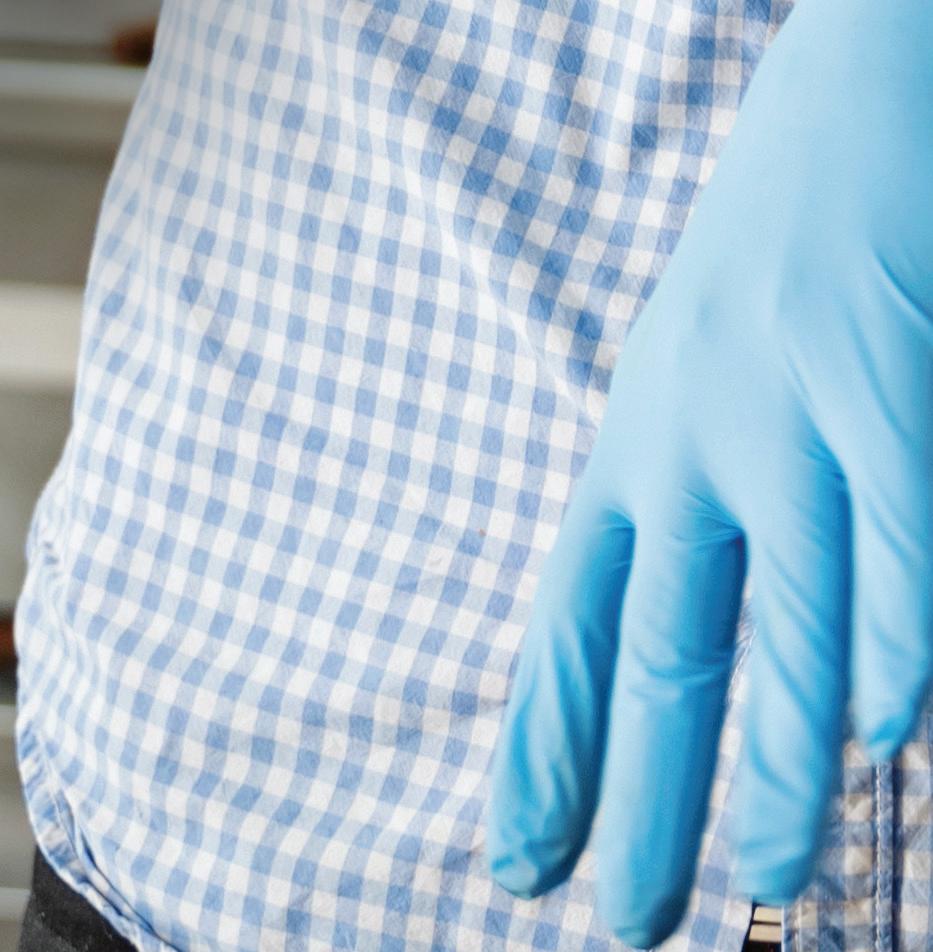




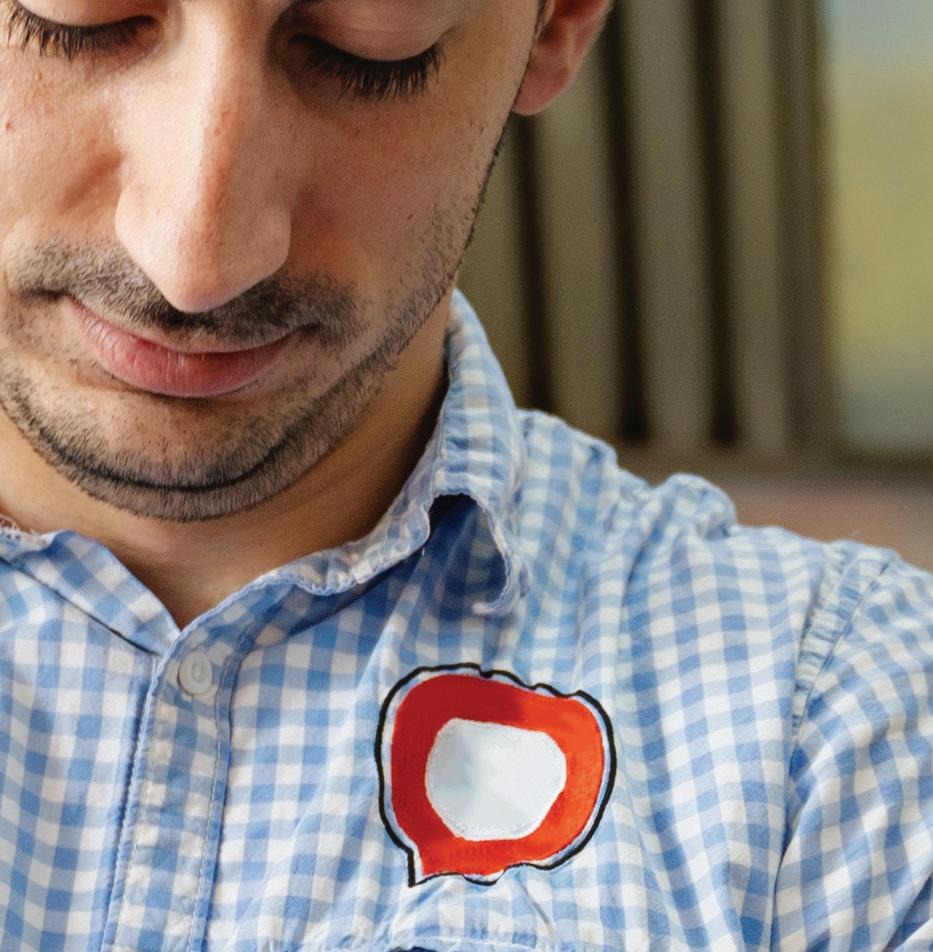










SmartChainJUNE 2023Chain Advancing Tech P48 Labor and Training P52 Visible Practices P56 Key Players P60 Food Safety Today Food safety is evolving to ensure restaurant customers are protected in a shifting world.
SPONSORED SECTION | JUNE 2023 47 ADOBE STOCK / MILJAN ŽIVKOVIĆ
Modernizing Food Safety
New advancements are responding to a changing world.
The pandemic fundamentally transformed many aspects of foodservice, speeding up the adoption of new technologies like mobile ordering and automation. The world of food safety is evolving to better ensure consumers are protected under changing circumstances like higher order volumes, inconsistent labor availability, and supply chain issues.
“We have seen a digital transforma-
tion coming out of the pandemic, which changed the dynamics of how food is ordered, prepared, served, and delivered,” says Esperanza Carrion, vice president and general manager of Sani Professional “The ability to quickly and easily order from thousands of restaurants off an app is great, but it puts a strain on kitchens to ensure they can prepare food safely with an increased order demand. We have seen some solutions for this—ghost kitchens have been able to use technology to better manage where orders are routed to ensure labor and ingredients are available.”
As more systems are automated, employees are freed up to spend more time with customers and focus on rev-
enue-generating activities that benefit from a human touch. The overall goal of increasing automation is to reduce operator error—an especially important aim when it comes to food safety, where one slip-up could spell disaster for a brand.
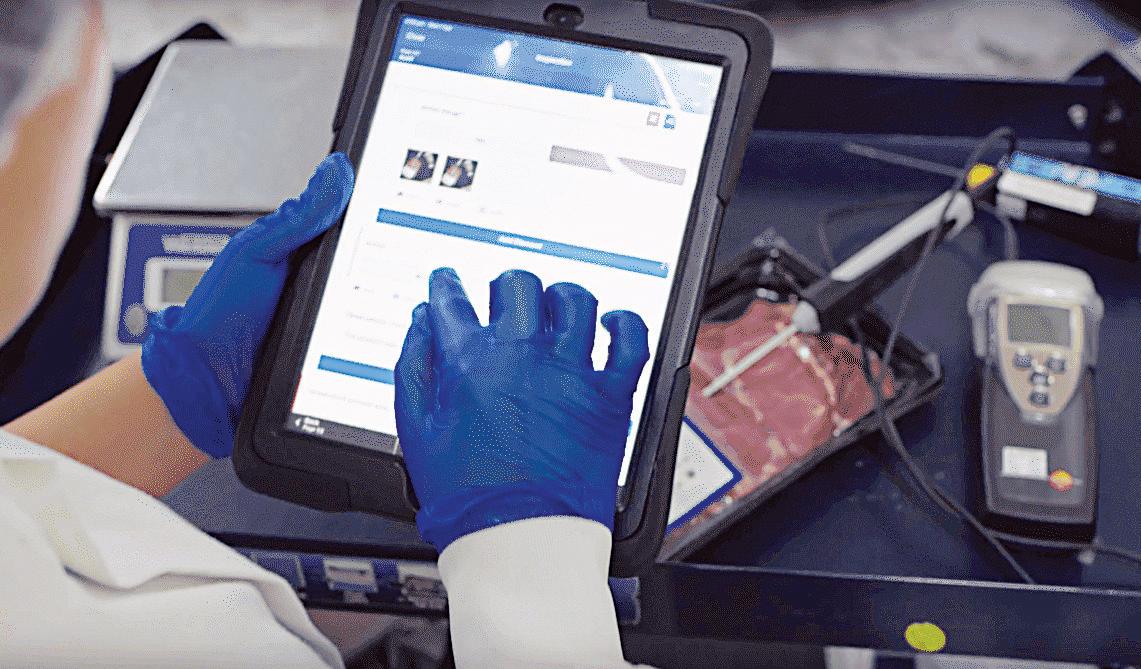
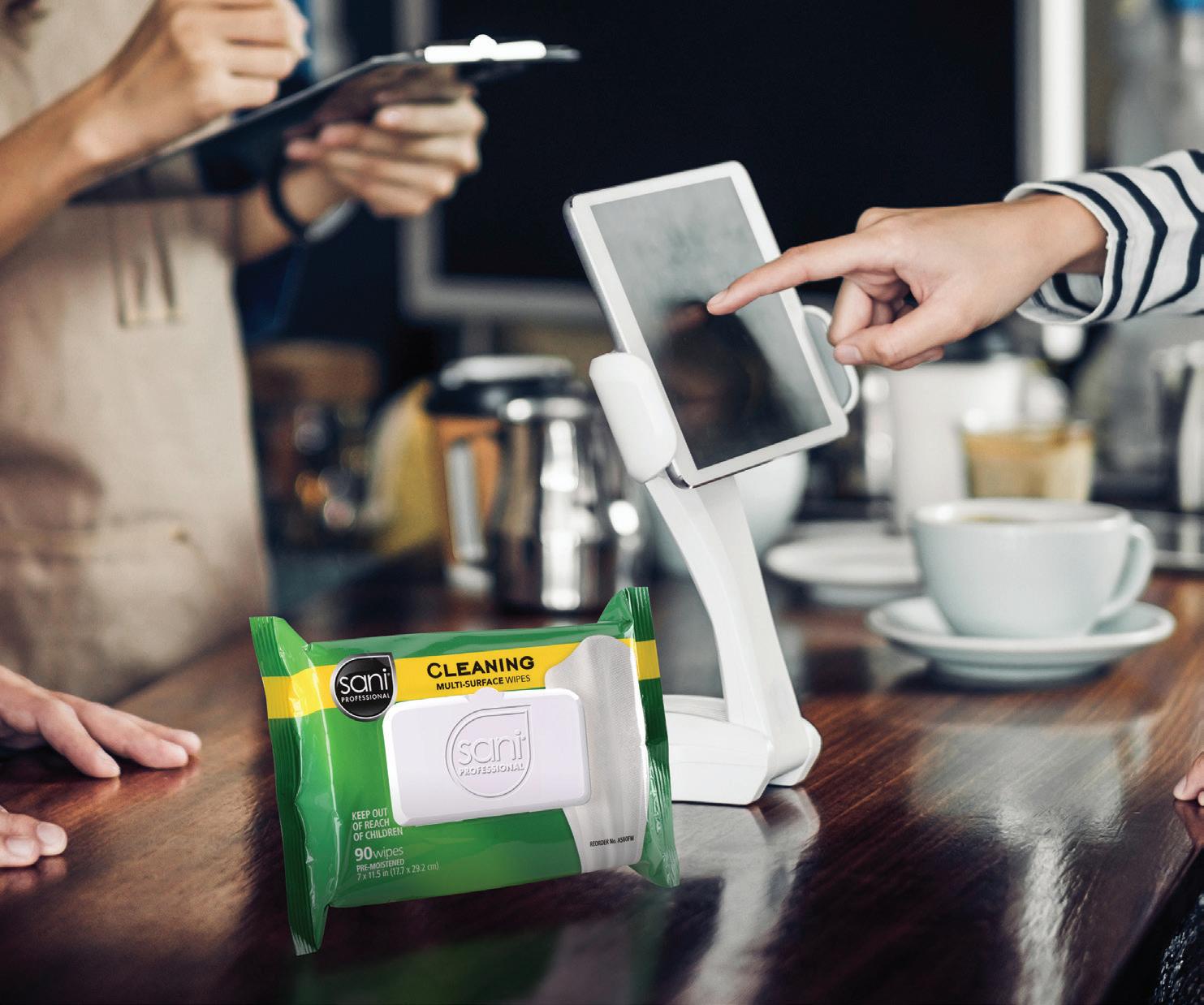
“Whether it’s ensuring proper food temperatures are met or wares are clean and sanitized, having a consistent and dependable solution in place can help pre-
vent cross-contamination, lead to better food code compliance, and increase water and labor savings,” says Isaac Fouts, lead chemist at Ecolab.
Restaurants are using software to help them be more efficient and consistent in reviewing their food safety practices. “Food safety software programs now provide applications for self-reviewing work areas as well as individual practice,” says Danté Parisi, marketing at Tronex “E-learning has taken the world by storm following the pandemic, resulting in better resources for restaurant operators to utilize in preparing their team to provide the safest food service possible.”
Online tools for self-assessing food
48 JUNE 2023 | SPONSORED SECTION SmartChain Food Safety
SANI PROFESSIONAL
“
We have seen a digital transformation coming out of the pandemic.”
SafetyCulture
Sani Professional
SAFETYCULTURE
Brand Trust and Loyalty are Earned.
3 Dedicated to foodservice safety and compliance by offering innovative, easy-to-use sanitation solutions.


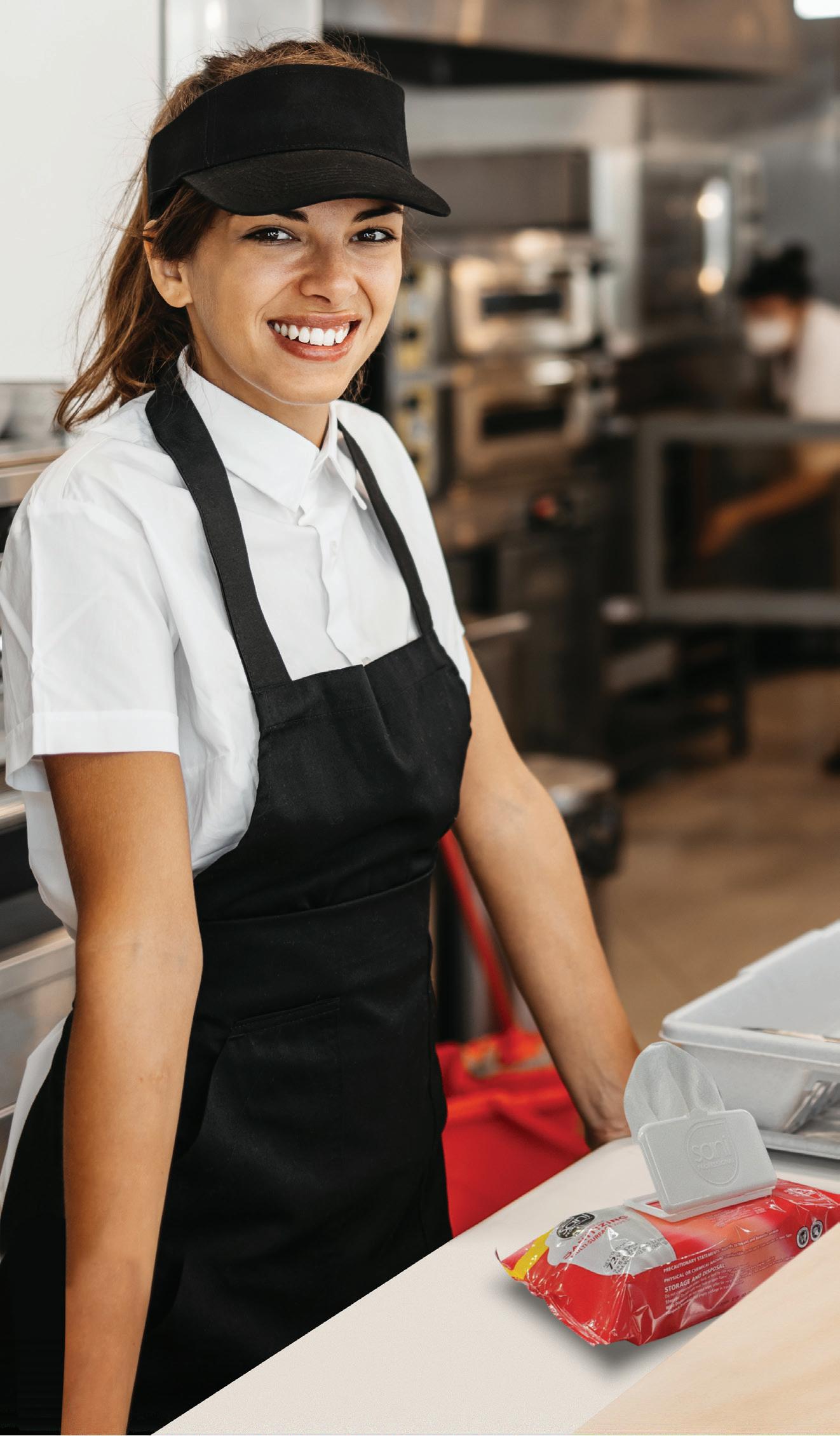

3 Powered by the largest global manufacturer of wipes and a national network of distributor partners.
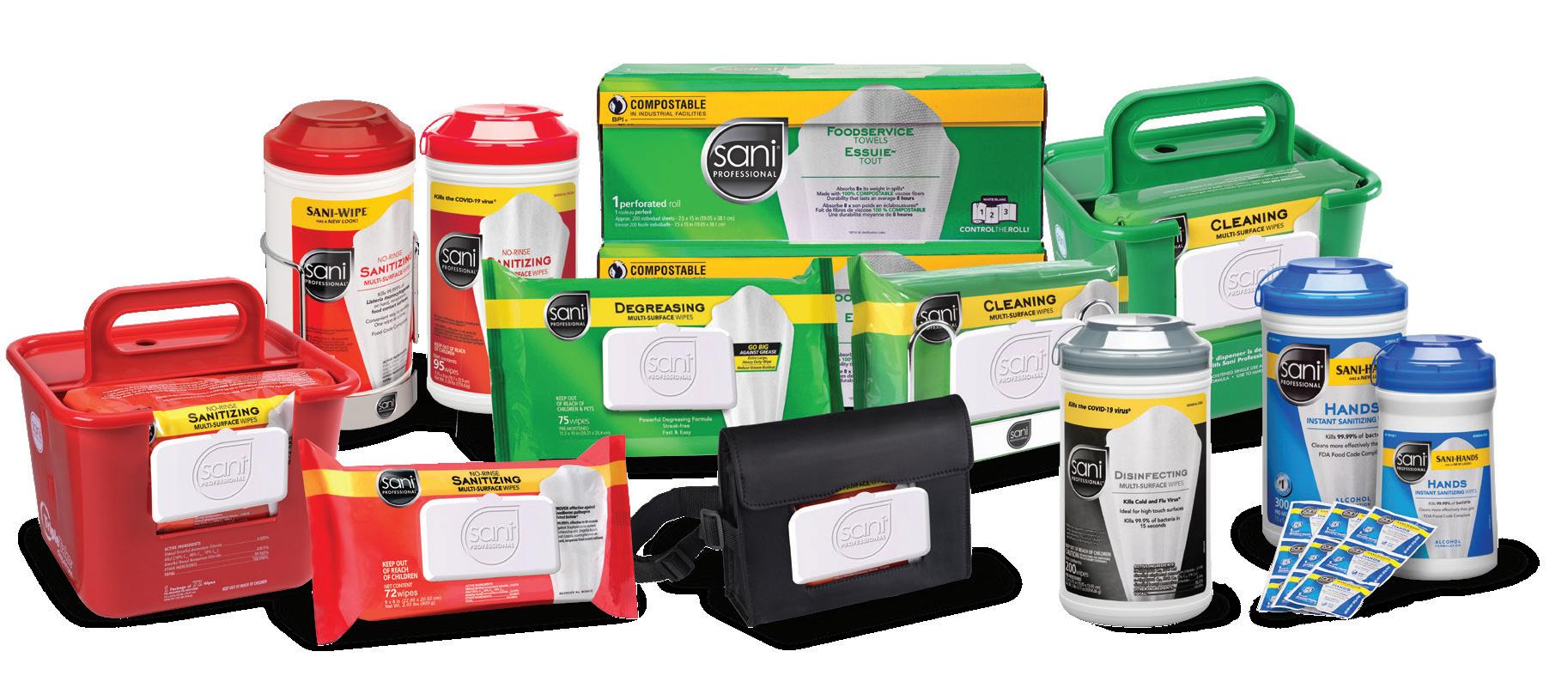
3 Focused on delivering personalized, operator-focused support from field testing to training and supply.

how we do it. † Kline (Kline & Company) data, Q3 2022 © 2023 Professional Disposables International, Inc. All rights reserved. Sani Professional® and Food Safety is our Passion. Making it Simple is our Mission.® are registered trademarks of PDI, Inc. 63794QSR Learn More at SaniProfessional.com/ TrustedPartner/QSR † Kline (Kline & Company) data, Q3 2022
Here’s
safety can help employees hone in on the right checks, suggest appropriate followup actions, track trends in compliance, and more. Staying alert and aware is key. “Implementing a system for self-assessments is critical in maintaining proper food safety practices,” says Chris Boyles, vice president of food safety at Steritech “Food safety inspections happen a few hours a year. Operators need to own food safety every shift of every day.”
It’s now easier to do this than ever before. Operators are incorporating more technology into their processes for monitoring critical food safety-related data points. Network-connected sensors, also known as the internet of things, are making it possible to track potential issues as they develop. “The internet of things is a game-changer for restaurant operators, offering real-time safety data delivery to the right personnel,” says Kylie Uvodich, general manager, Americas at SafetyCulture “Affordable sensor solutions that enable managers to receive instant, contactless alerts—like temperature and humidity levels for food safety—have gone from a ‘niceto-have’ to a standard in a post-pandemic world. They’re preventing large amounts of waste and helping businesses run more sustainably.”
After all, it takes just one significant mishap for such sensors to prove their worth. “Companies that aren’t focused
on adopting technology when it comes to continuous monitoring will inevitably also suffer,” Uvodich says. “If you’re forced to throw away 10,000 gallons of milk because someone left the door ajar and the temperature feels outside the acceptable temperature range, that’s a huge loss of revenue. Take that small mistake and imagine it happens every couple of months across all your locations. That could mean hundreds of thousands of dollars over time. And that’s just one component of a larger complex operation of the supply chain.”
Of course, a foundation of food safety is proper hand hygiene—and consumers now have a heightened awareness of its benefits. As technology costs lower, some restaurants are experimenting with hand hygiene monitoring systems to help them demonstrate their commitment to best practices. “These systems allow a chain to monitor hand hygiene compliance over time, which can help determine if continuous improvement efforts are working,” says Chip Manuel, Ph.D., food safety science advisor at GOJO
Quick-service operators are also investing more in touch-based technology like self-serve kiosks and other digital displays in the front of the house as well as the back of the house. These touch screens must be cleaned and sanitized with products that don’t damage the technology. “There is an enhanced need for compatible surface cleaners, sanitizers, and disinfectants that are worry-free and effective and can support an operator’s food safety policy,” Manuel says.
Innovation is also taking place in the makeup of cleaning and sanitizing chemicals themselves. Traditional cleaning chemicals like bleach and quaternary ammonium compounds are associated with health risks, and the CDC recommends not using these chemicals around people who have asthma or allergies—about 30 percent of the U.S. adult population and 40 percent of U.S. children. Seventy-five percent of consumers also say they’re concerned about the safety of disinfectants used in restaurants.
“People don’t want to be subjected to the health risks from toxic cleaners any more,” says Sandy Posa, CEO of Force of Nature. “The health risks are avoidable, though, with new disinfecting technologies that use hypochlorous acid (hocl) as the active ingredient. HOCl has no toxic fumes or residues to rinse, so it’s much easier for staff to sanitize and disinfect surfaces. But don’t let its toxic-chemicalfree nature fool you—HOCl is a serious germ-buster. It’s the same chemical that the human body’s immune system creates to fight infections.”
From automated systems and the internet of things to innovations in cleaning products, new advancements are changing the ways operators ensure food safety in their stores.
“Restaurant operators with the greatest chance of success are those that remain curious about the potential of new technology,” Uvodich says. “These operators are devoting their efforts to integrating cost-effective solutions that can enhance food safety and quality, as well as allowing staff to concentrate on high-value customer interactions and creating exceptional experiences.” SC
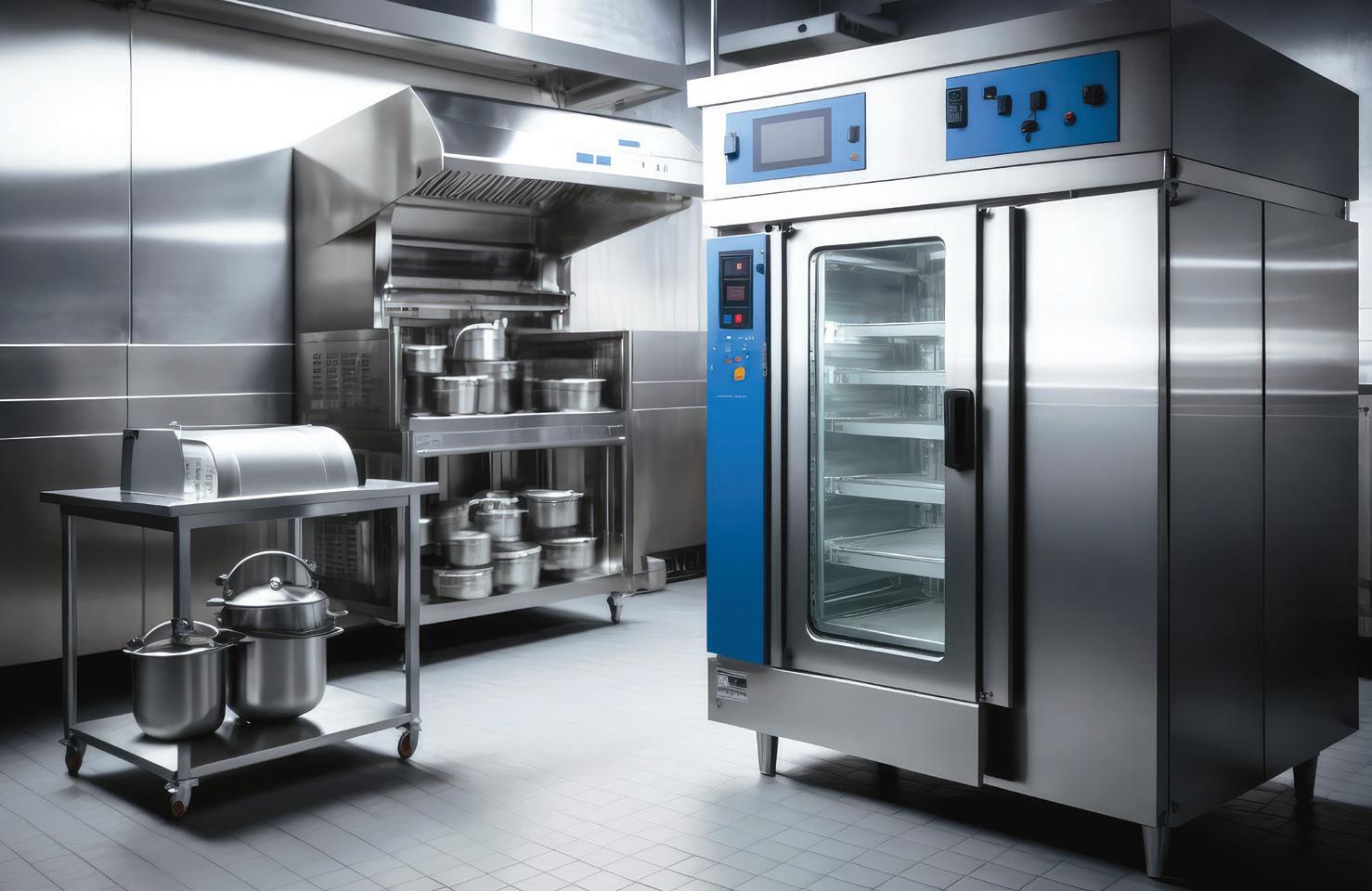
50 JUNE 2023 | SPONSORED SECTION SmartChain Food Safety
“The internet of things is a game-changer for restaurant operators.”
ADOBE STOCK AICANDY
EDUCATE YOURSELF









’s webinar series tackles hot topics in foodservice— and best of all, you can learn from the comfort of your own office. Take a deep dive into our collection today!
Did we mention they’re free?) ® WWW.QSRMAGAZINE.COM/WEBINARS
QSR
(
Keep It Simple
Jobs in the restaurant industry are on a growth path to full recovery from the pandemic, but understaffing continues to challenge restaurants. High churn rates mean that—while more jobs have been posted in recent months—many of them are still going unfilled from month to month. Earlier this year, the National Restaurant Association estimated the industry still has a labor shortfall of at least 540,000 employees.
Restaurants remain short on time and labor, and this can have major implications for food safety.
“Scarce labor, high turnover rates, and the need to frequently and properly train employees on proper food safety protocols presents a major challenge to overall restaurant food safety levels,” says Isaac Fouts, lead chemist at Ecolab. “Working with a reduced staff puts more burden on each crew member to do more, taking time and focus away from important food safety tasks.”
To combat this, many restaurants offer incentives to new hires and existing employees. Anything that makes employees’ lives easier can serve as a retention tool, including the streamlining of standard processes. “Another way operators are addressing employee satisfaction is by simplifying practices and processes, like food preparation, cleaning, and sanitizing,” says Chip Manuel, Ph.D., food safety science advisor at GOJO. “They’re also ensuring employees are using surface products that are worry-free, effective, fast-acting, and simple-to-use to address increasing concerns around product safety and improve employee efficiencies.”
Simplifying processes can also mean sourcing products designed to help restaurants minimize labor needs. “Operators
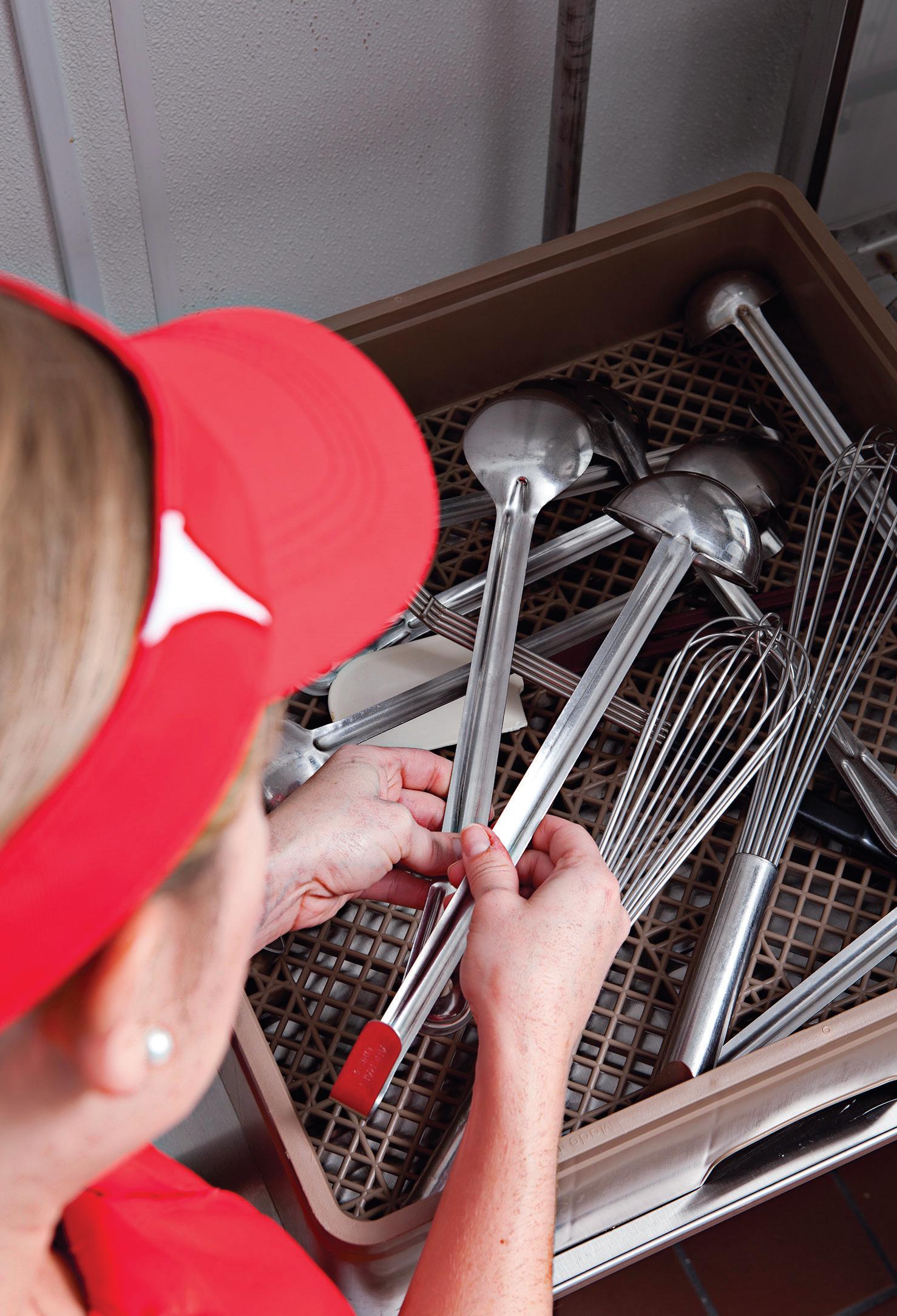
52 JUNE 2023 | SPONSORED SECTION SmartChain Food Safety
When employees are stretched, how can brands ensure food safety doesn’t falter?
Ecolab
“ Working with a reduced staff puts more burden on each crew member to do more.”
ECOLAB
Where
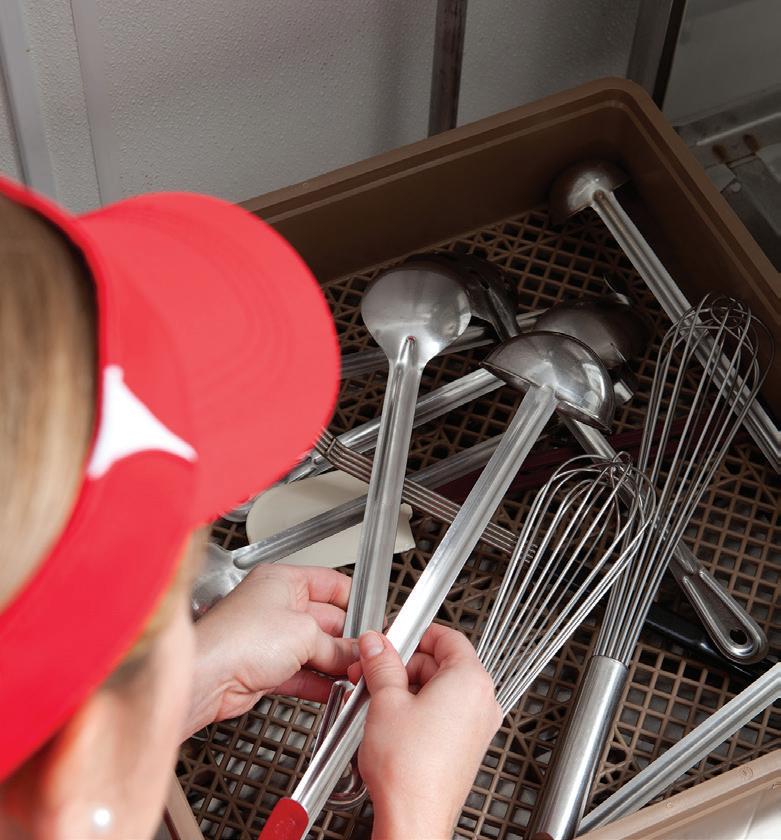
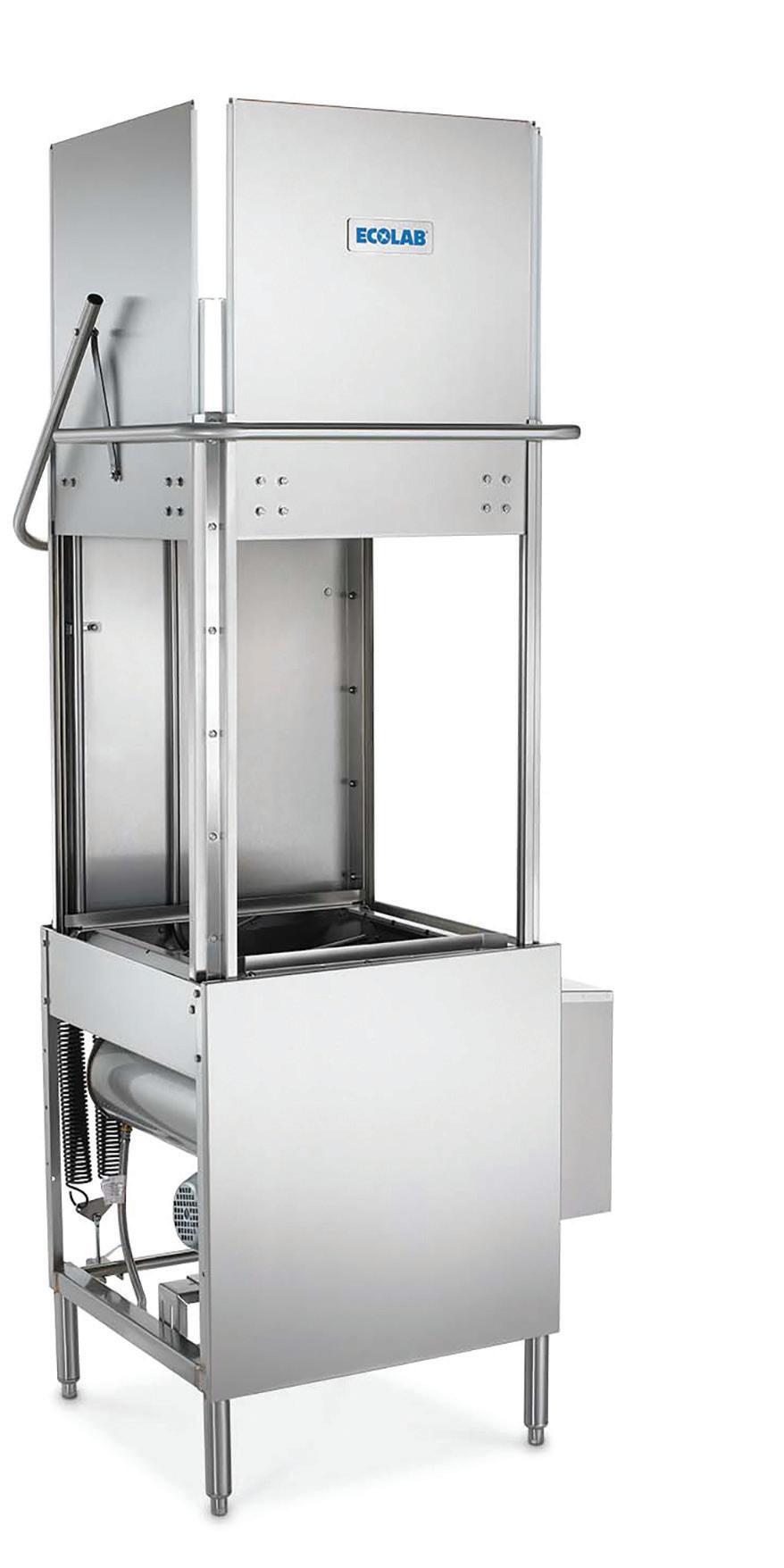
Ecolab USA Inc. All rights reserved. Contact your Ecolab Representative or call 800.529.5458 TODAY ! * According to Ecolab Man vs. Machine study circa Dec. 2018 ** At 50/cycles per day – a typical QSR machine utilization *** Based on QSR industry field testing results of time saved when vs. a manual only process MEET THE ALL NEW XL WAREWASH MACHINE Labor Savings OR MORE REPURPOSE labor per day*** 2 HOURS vs. traditional dump/fill machine 6,400 Water Savings GALLONS OF WATER SAVED PER YEAR** SOIL REMOVED* 90 % MORE compared to manual only process* Food Safety
Performance
Value Designed specifically for QSR applications, the XL has a higher wash chamber, 50% faster cycle time, faster dry time, and delivers productivity and food safety at a lower total cost.
Meets
are rethinking ways to optimize their labor resources. This includes looking for new products and solutions that are simple, easy to use, and require minimal training to implement,” says Esperanza Carrion, vice president and general manager of Sani Professional. “There is increasing preference for the use of disposables over reusables, from utensils to condiments to cleaning products. More and more, operators are looking for disposable cleaning alternatives to the reusable rag and bucket to better prevent cross-contamination of surfaces.”
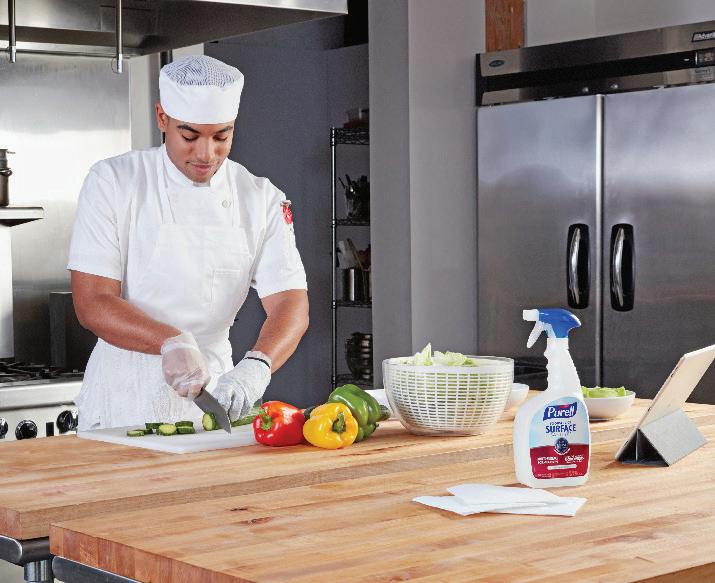
Equipment that automates certain food safety procedures can also save time when a restaurant is short-staffed. It can enhance food safety outcomes, as the potential for human error is reduced. “One example is machine warewashing,” Fouts says. “We use dishwashers in our homes every day, and operators are now bringing this technology into the restaurant. Automated processes such as warewashing require less training, shorten labor time, and enhance sanitation compliance, leading to safer food.”
Keeping things as clear and straightforward as possible is key when it comes to food safety. That’s especially true in terms of protocols—it’s essential to ensure staff can actually learn and apply them, even with regular turnover. “The more complicated it is to sanitize and disinfect, for example, the higher the risk that it won’t be done to the level that it needs to be,” says Sandy Posa, CEO of Force of Nature
Restaurant operators are providing regular training to keep protocols topof-mind among employees and to update them on new procedures and best practices. Most food safety depends on the actions of food handlers, after all, and reinforcement of key concepts is critical. “Proper and consistent education is key, and explaining the ‘why’ behind food safety will help food handlers and employees understand the importance of following every food safety step and procedure,” says Chris Boyles, vice president of food safety at Steritech.
Boyles recommends writing effective corrective and preventive action plans. These plans should address the root cause
of any issue, diving deeper to discover why it occurred—and how to prevent similar mishaps in the future. “Many people require managers to write a response, but they typically write something like ‘Cleaned it’ or ‘Discarded it,’” Boyles says. “That might be the corrective action, but it does nothing to prevent the issue from happening again. Managers need to go into more detail, explaining the ‘why’ behind each food safety action in order to gain the most benefit from each action.”
“While the pandemic shone a light on some mistakes that would not be acceptable in today’s world (like restaurant workers coming in with a cold), most of
the common mistakes come from lackluster monitoring, processes, and training,” says Kylie Uvodich, general manager, Americas at SafetyCulture. “The good news is that technology is ever-evolving and can standardize many of these inconsistent processes.”
Operators and managers must cultivate a culture where food safety is prioritized. “Consistent and quality management will firmly reinforce hygienic practices and create a proactive culture that guides everyone to make the right decisions when it comes to the safety of food, operators, and customers,” says Danté Parisi, marketing at Tronex. “This includes proper product handling practices, sanitation stations in both the front and back of house, and optimizing communication channels between both the team as well as the consumers in optimum health safety practices.”
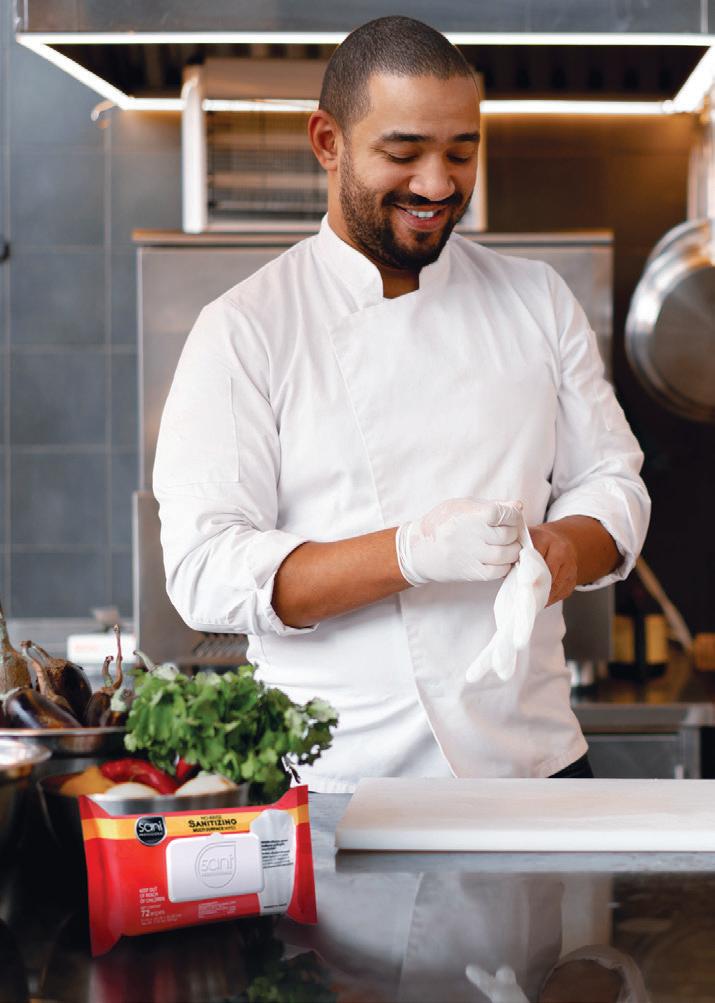
That means investing time and money into a food safety program, and ensuring that all levels of management understand what’s at stake. “The costs of a solid food safety program are incremental because the basic practices are no different from the rest of the business,” Boyles says. “Management—all the way up through senior management—should be fluent in the vocabulary, processes, and risks of food safety so that they can direct resources, drive improvement, and hold people accountable, just as they do for the rest of the business.”
Senior leadership may not need to be certified in food safety, Boyles says, but they should be familiar with the topic. They may find it helpful to take a course. And brands must ask themselves if they have a food safety policy statement—a written commitment to food safety that guides decisions. According to Boyles, when it comes to food safety as much as any other initiative, the actions of senior leadership speak volumes. “Do senior leaders approve food safety initiatives with measurable goals, then hold the business accountable for achieving them? Do they talk about food safety as often as they talk about financials and growth? What they say and do sends a strong message to the rest of the business.” SC
54 JUNE 2023 | SPONSORED SECTION SmartChain Food Safety
“Proper and consistent education is key.”
GOJO
Sani Professional
GOJO SANI PROFESSIONAL

Protection is Paramount #8955 Vinyl Powder-Free Gloves: SM - XL Supply Chain Resilience & High-Performance PPE Offering a versatile range of disposable gloves, masks, & PPE for over 34 years Deeply Passionate and Communicative Service Team www.tronexcompany.com
Keys to a Strong Brand Reputation
Consumers now expect food safety practices to be visible.
compared to times before the pandemic, when consumers often assumed that seeing employees cleaning meant something must have gone wrong. “In today’s world, highly visible sanitation practices are obligatory,” says Chris Boyles, vice president of food safety at Steritech. “Customers are watching for cleaning and sanitizing, careful handling of food and utensils, and no signs that employees are working while ill. If they don’t see sanitation hap-
In the wake of COVID-19 and the ripple effect it sent across the supply chain, restaurant operators now face a new test: ensuring food safety in a world that changed seemingly overnight. “Restaurant operators must now be conscientiously maintaining hygienic practices and demonstrating excellent sanitation habits to stay a trusted brand in the industry,” says Poyee Tai, executive vice president of Tronex. “Not only those within the food industry, but its consumers too, now have a broadened knowledge of cross-contamination and virus prevention.” To maintain a strong brand reputation and ensure safe food experiences for
their customers, operators are communicating their food safety practices more openly and taking steps to guarantee best practices are consistently followed.
“The pandemic made people much more germ-aware in general, so they’re attuned to what’s being sanitized and how,” says Sandy Posa, CEO of Force of Nature. “Customers want to feel confident that their space is being sanitized and disinfected, and with products that won’t cause any side effects.”
Visibility and transparency in cleaning and sanitizing practices are more important than ever before. This represents a complete reversal in best practice
pening, they might assume the worst.”
“When a customer walks into a location or goes through the drive thru and sees everything is clean, they automatically infer that the store maintains a high level of food safety. Conversely, the opposite is true,” says Isaac Fouts, lead chemist at Ecolab. “And once a customer has a negative experience, it’s hard to get them back.”
Guests expect a clean environment to enhance their dining experience, whether they eat in the dining room or off-premises. They want to see cleaning taking place throughout the restaurant, and they want to see evidence that the brand is thoughtful and proactive about cleaning and sanitation. “Operators are taking the extra step by transitioning from traditional cleaning methods, such as a rag and bucket, to an enhanced cleaning and disinfection practice utilizing effective, costefficient, and easy-to-use products that enable their staff to maintain a clean environment,” says Esperanza Carrion, vice
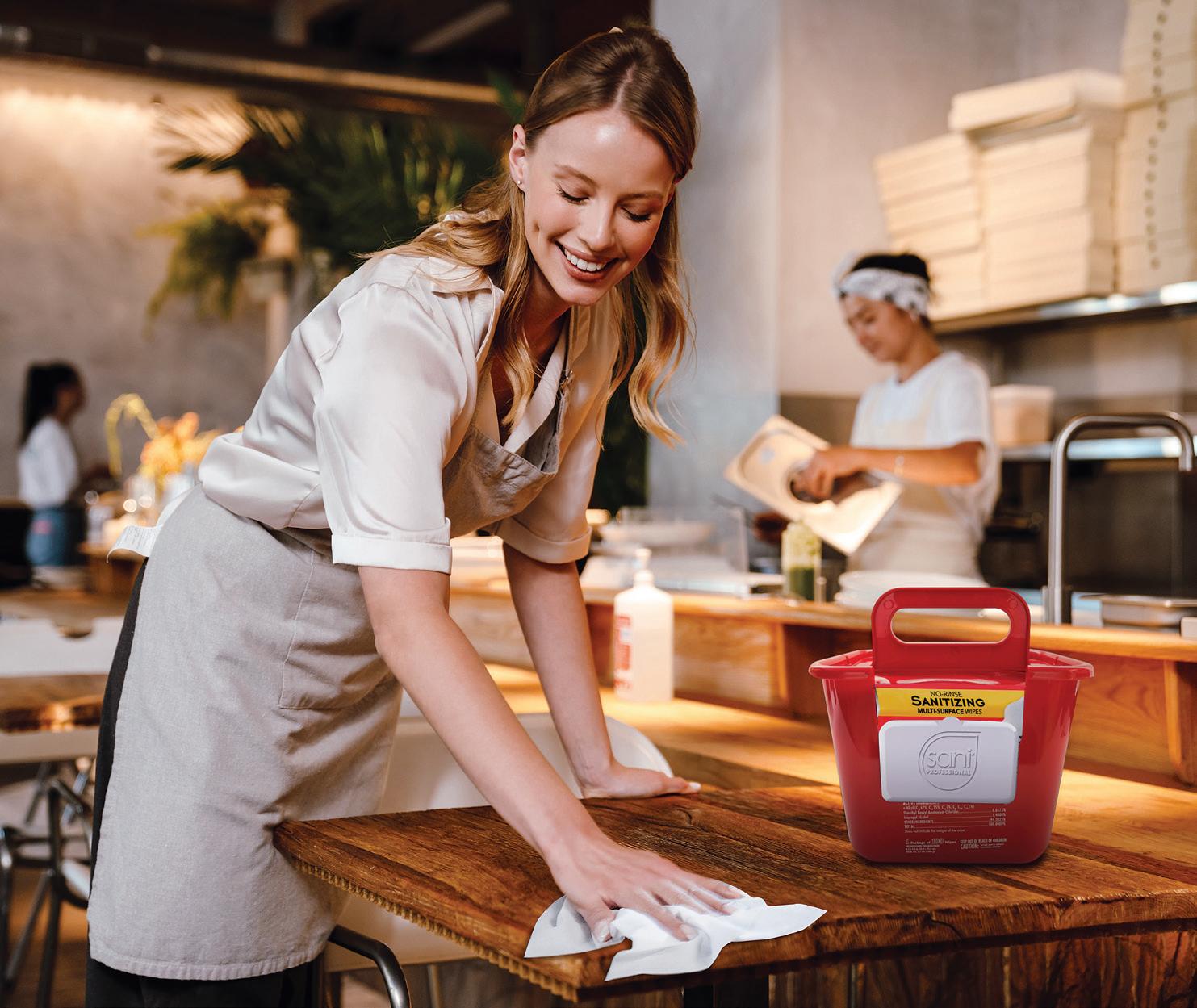
56 JUNE 2023 | SPONSORED SECTION SmartChain Food Safety
Sani Professional
“The pandemic made people much more germ-aware in general.”
SANI PROFESSIONAL







SmartChain next/ For advertising opportunities/ Eugene Drezner: 919-945-0705 / edrezner @ wtwhmedia.com January: Restaurant Equipment & Technology february: Restaurant Franchising march: Digital Signage Special FEATURED SECTION Special FEATURED SECTION Chain ese special reports in the pages of QSR help busy restaurant operators understand current trends & sources in a variety of areas vital to your business. SEPTEMBER: Featured Section Restaurant Franchising JULY: Featured Section Restaurant Equipment & Technology AUGUST: Kitchen Solutions
president and general manager of Sani Professional. “Takeout service providers are also driving an improved experience using contactless delivery. Tamperresistant containers and sealed delivery bags are visual cues to promote safety.”
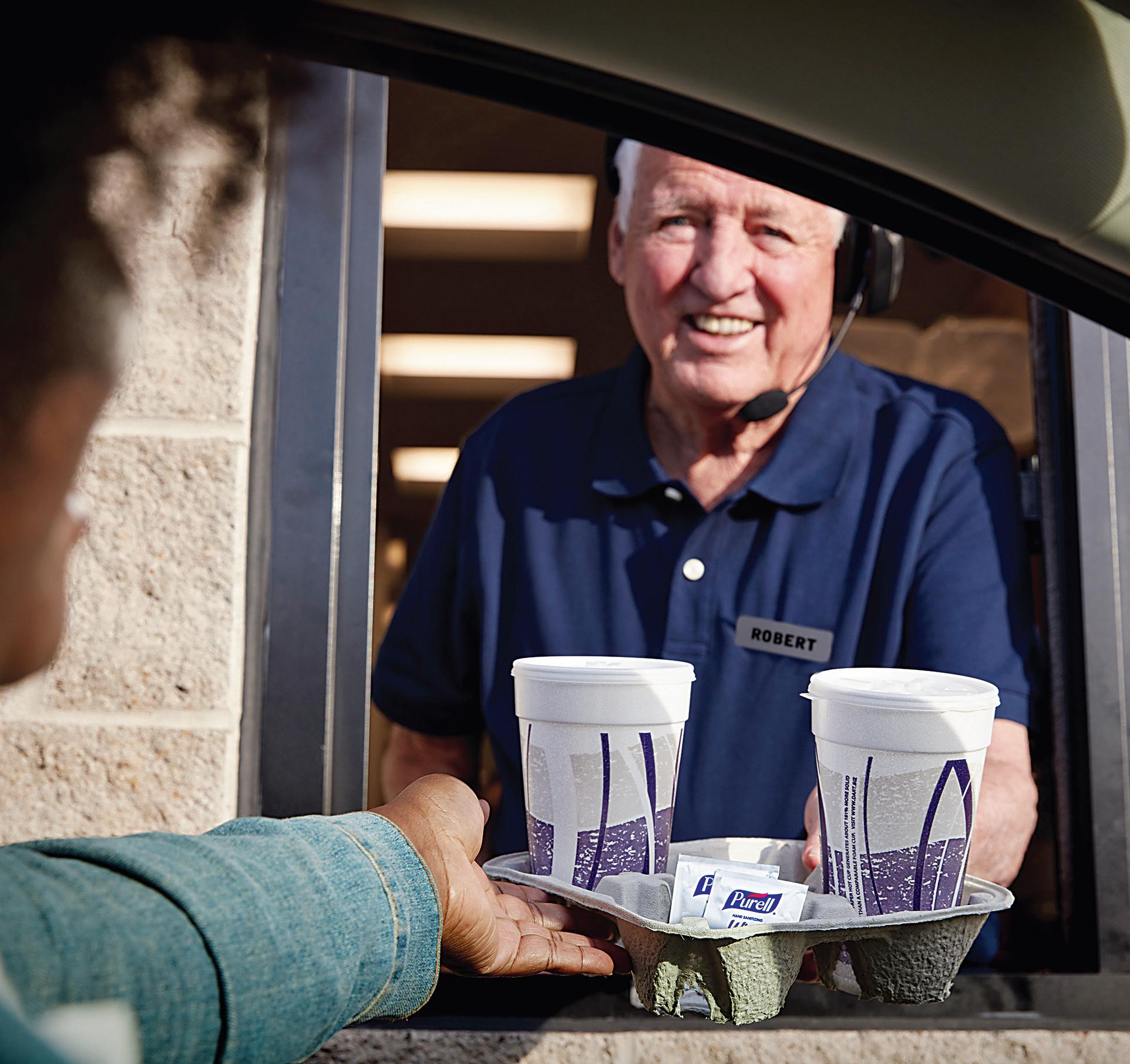
Operators are showcasing food safety and sanitation practices to accommodate the shift in consumer mindset and help ensure their customers’ peace of mind— including, Carrion says, “changing gloves between preparing each order, having hand sanitizing product readily available at highly frequented areas, utilizing disposable sanitizing wipes in front of the customer, and increasing the frequency of cleaning, sanitizing, and disinfecting throughout the day.”
“Consumers want to see that an establishment takes food safety seriously by seeing examples of food safety in the restaurant,” says Chip Manuel, Ph.D., food
safety science advisor at GOJO. “They want to see things like quality hand sanitizer being made available, employees washing hands, and employees properly sanitizing tables.”
Consumers are also getting savvier about various types of cleaning and sanitizing products used in restaruants. Many are now expressing concerns about the health impact of common disinfectants now that businesses seem to use them more and more frequently.
Posa suggests that operators communicate with their customers about the
food safety processes the brand follows as well as the types of products it uses. “One way to ensure that customers know that they’re safe is to use an EPA-registered disinfectant that doesn’t contain any bleach, quats, or other harmful chemicals,” Posa says. “This can mean menu, website, or poster signage in the restaurant itself.”
Tai recommends adding hand-washing sheets in the restroom, positioning PPE requirement signs to be visible from the back of house to the front, and placing easily visible allergen warnings on the menu for guests. These actions communicate to customers that they can feel confident and safe eating food prepared in a specific restaurant.
Strategically placed visual signage is an effective way to increase customer awareness of a brand’s high regard for cleanliness and food safety. “Reminders for everyone—not just employees—to wash their hands, as well as cleaning logs and protocols, will reassure consumers that cleaning and sanitizing are top of mind inside the establishment,” Boyles says.
Of course, even with the right messaging, a brand’s reputation can fall apart quickly if a single food safety incident occurs at any location.
“We’ve seen foodborne illnesses like Listeria and Salmonella continue to dominate the news (ice cream, deli meat, even oyster recalls),” Carrion says. “In addition to killing 3,000 Americans each year, foodborne illnesses can wreak havoc on businesses and can result in costs running into the millions.”
Preventing cross-contamination that may cause foodborne illnesses remains a major challenge. “Factors that can contribute to cross-contamination include poor employee health and personal hygiene, using contaminated equipment, and in today’s environment, failing to adequately protect against public health outbreaks, such as COVID-19,” says Carrion. “The good news is that these are all preventable with products that are effective against a variety of pathogens, proper staff education and training, consistent implementation of protocols, and regular monitoring.”
Setting up a rigorous food safety program is essential—even and especially if a
58 JUNE 2023 | SPONSORED SECTION
Food Safety
SmartChain
“Consumers want to see that an establishment takes food safety seriously.”
GOJO GOJO ROSIE HILEMAN
restaurant has never experienced an outbreak. Strong, consistent practices and regular training can prevent a disaster scenario. After all, it only takes one slipup by one person to potentially destroy consumer goodwill toward a brand. “Sometimes establishments think they are not at risk just because they have never had an outbreak before. This is a dangerous belief because an outbreak can not only harm your employees and guests, but it is also costly and can cause long-term damage to your establishment’s reputation,” Manuel says. “Along this line, operators also need to ensure the surface products they are using actually kill viruses of concern, like norovirus. Public health agencies can increasingly trace an outbreak back to its origins, and you don’t want it to be your establishment.”
According to Steritech assessment data, restaurant brands consistently experience a higher number of food safety issues on particular days of the week. The specific days of the week vary by brand, but virtually all brands were found to have at least one day of the week where their issue count is consistently and significantly higher than the rest.
The data revealed that—perhaps counterintuitively—a location’s worst day often corresponded with the days when more people were present. “This indicates the issue is not always caused by a labor gap, but a leadership gap,” Boyles says. “The common factor seems to be that leadership is focused on something other than food prep on certain days: delivery days, inventory shifts, manager meetings, or other tasks. It also correlates to the experience level of the leadership present; for example, issue counts often rise on the general manager’s regular day off.”
Steritech has found that the difference between a brand’s best day of the week and its worst day is typically between 12 percent and 18 percent, but some brands vary by more than 30 percent. “Restaurant owners and managers need to recognize and pay close attention to those ‘opportunity days’ in order to ensure proper and consistent food safety practices are being executed at every shift, every time,” Boyles says.
Purchasing quality ingredients also remains a critically important part of maintaining food safety and customer loyalty. “Restaurant operators need to recognize that their patrons may view going out to eat as more of a splurge than ever before, and ensuring the quality and safety of their products is vital to the business,” says Kylie Uvodich, general manager, Americas at SafetyCulture.
Regulations are calling for new ways of labeling, packaging, and storing products in various locations. “A handful of our customers are facing new legislation whereby all restaurants are being forced to face a new ROP procedure (‘reduce oxygen packaging’), whereby removing food from a bag and sealing it at a specific temperature for a period of time is calling for
a new, rigorous process,” Uvodich says. “This is forcing many of our customers to adopt new hardware and new software to keep up with the growing government demands. Not to mention, more and more states are adopting new procedures like this. This makes national chains become much more difficult to manage.”
As restaurant operators deal with skyrocketing costs at virtually every turn, food safety programs, products, and services may be seen as just another painful expense. But cutting corners on food safety can end up cau sing extensive and lasting harm. “Ensuring food safety is one of the most crucial aspects any restaurant business faces, and ensuring the proper protocols are met is vital to long-term success,” Uvodich says. SC

SPONSORED SECTION | JUNE 2023 59 Food Safety SmartChain
SafetyCulture
“Ensuring food safety is one of the most crucial aspects any restaurant business faces.”
SAFETYCULTURE
Ecolab


8300 Capital Drive Greensboro, NC 27409
800-529-5458
ecolab.com/qsrmachinewarewashing
Ecolab is a global sustainability leader offering water, hygiene, and infection prevention solutions and services that protect people and the resources vital to life. We deliver comprehensive sciencebased solutions, data-driven insights, and worldclass service to advance food safety, maintain clean and safe environments, optimize water and energy use, and improve operational efficiencies.
Force of Nature
P.O. Box 1145 Westford, MA 01886 888-985-8099
forceofnaturepro.com

Force of Nature Pro is an EPA-registered medical-grade disinfectant, sanitizer, and multi-purpose cleaner that contains no harmful chemicals. It kills 99.9 percent of bacteria and viruses, including Salmonella, Norovirus, Listeria, Staph, MRSA, Pseudomonas, and Influenza
A. It’s Green Seal Certified for meeting the highest standards in protecting human health and is the only carbon-neutral disinfectant.
GOJO
One GOJO Plaza, Suite 500 Akron, OH 44311
800-321-9647
GOJO.com

For more than 30 years, PURELL® products have adhered to high standards of formulation and manufacturing, including innovations for the foodservice industry. PURELL® products provide worryfree, effective germ kill on hands and surfaces, without the need to choose between products that are effective and products people feel great about using.
SafetyCulture
2114 Central St., 6th Floor Kansas City, MO 64108 816-787-1343 safetyculture.com
SafetyCulture’s mobile-first operations platform leverages the power of human observation to identify issues and opportunities for businesses to improve every day. More than 70,000 customers use the SafetyCulture platform to perform checks, train staff, report issues, automate tasks, and communicate fluidly.




Sani Professional

400 Chestnut Ridge Rd. Woodcliff Lake, NJ 07677 800-999-6423
saniprofessional.com
Sani Professional, the food safety division of PDI, is a global leader in infection prevention. It is a leading manufacturer of a wide variety of disposable wipes and solutions for cleaning, sanitizing, and disinfecting multi-surfaces and hand sanitizing designed for commercial establishments, helping them deliver a clean experience for employees and guests.
Steritech
6701 Carmel Rd. #300 Charlotte, NC 28226
866-576-5689
steritech.com



Since 1986, Steritech has provided best-in-class assessments and consulting services to companies to mitigate risks, drive operational consistency, and help multi-location businesses accelerate growth. Through on-site coaching paired with robust data insights and reporting, Steritech helps close performance-impacting gaps, helping businesses deliver their ideal brand experience every time, ev erywhere.
Tronex
300 International Drive Mount Olive, NJ 07828
800-833-1181
tronexcompany.com
Tronex is an award-winning, medical-based global enterprise that offers an extensive range of disposable head-to-toe personal protective solutions. Tronex International is built upon a progressive angle and adaptable business model that merges the most advanced products in the market with passionate services and a responsive culture.

60 JUNE 2023 | SPONSORED SECTION
SmartChain Key players
Chipotle Goes Ghost
Like many others, the fast-casual giant is learning how to unlock the true benefits of a virtual brand.
BY SATYNE DONER
In the wake of COVID, virtual concepts have turned into culinary goldmines. The industry could potentially reach $1 trillion by 2030, according to research firm Euromonitor International. In early February, Chipotle joined the fun with Farmesa, a virtual concept offered via Kitchen United in Santa Monica, California. So far, the fast casual is one of the largest restaurant chains to explore this emerging culinary space.
For Chipotle, the new venture represents a departure from the traditional ways in which restaurants operate. Executives such as Nate Lawton, the vice president of new ventures for Farmesa, are confident the new brand will allow the company to test future concepts and learn more about what it means to run a successful virtual restaurant.
In the past, Chipotle has tried secondary food and beverage ideas, such as Tasty Made and ShopHouse Southeast Asian Kitchen. However, Farmesa is the company’s first move into ghost kitchens, driven by a growing betterfor-you fast-casual category and the promise to deliver fresh, real ingredients to a wider consumer base. The inception of Farmesa was fueled by a fusion of Chipotle concepts and innovations. Lawton expresses “there are some great things we learned from Chipotle that have allowed us to design what we think is super exciting in this space.”
While Chipotle has seen modernization in the way of operations, store layout, and technology partnerships, Lawton points out Farmesa’s menu is what will truly connect with consumers and keep them coming back for more. Nate Appleman, a James Beard award-winning chef, serves as director of culinary innovation for Farmesa. A Chipotle veteran, Appleman was the driving force behind the brand’s menu in the mid-to-late 2000s. During Farmesa’s infancy, Appleman teamed up with Lawton to discover what customers were looking for on a menu.
“I spent four months with chef Appleman out in the marketplace, just trying to immerse ourselves in what people in the U.S. were looking for,” Lawton says. “We found that ‘fresh eateries’ had the type of food many people were looking to eat multiple times a week.”
Farmesa’s menu, inspired by Chipotle’s “Food with Integrity” standards, includes fresh proteins, greens, grains, and vegetables
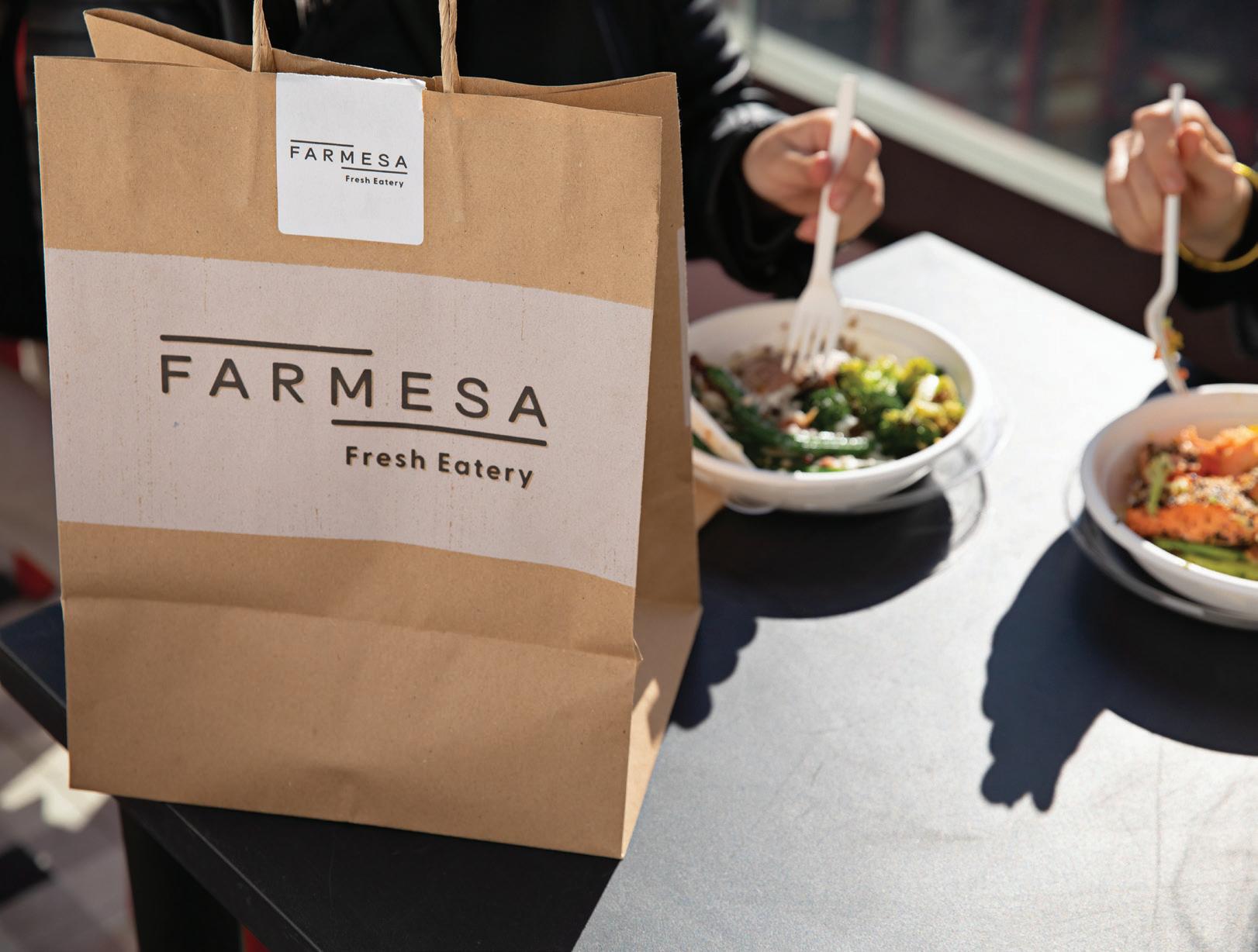
assembled into a bowl which ranges in price from $11.95 to $16.95. A standard bowl includes a protein, green or grain, two sides, a topping, and a choice of five sauces. Additionally, Farmesa partnered with Tractor Beverage Co. to provide 100 percent organic and all-natural drinks. According to Lawton, the virtual brand reflects the “fresh, real ingredients and classic culinary techniques” of Chipotle, but the digital model allows room to learn and adapt to customer tastes. The partnership with Kitchen United grants Farmesa the opportunity to be flexible and make changes as time passes.
“One of the things we learned from our past ventures is that we wanted to get out and learn on our menu with consumers quickly, which is why we chose this approach,” Lawton explains, regarding the decision to launch Farmesa in a ghost kitchen. “We want to adapt and evolve as we go.”
To launch expeditiously, the ghost concept started with a limited menu. However, customers can now explore a menu that includes items like tri-trip steak, king salmon, and sweet potato chips. Before Farmesa launched at full throttle, Lawton says
CHIPOTLE FARMESA
DEPARTMENT INNOVATE
CONTINUED ON PAGE 63 www.qsrmagazine.com | QSR | JUNE 2023 61
Farmesa taps into a healthy eating trend, especially among younger consumers.
growth’s sake,” Kwon says. “We probably could have opened up for franchising three years ago, but we said, ‘No, we’re not going to open it up until we’re ready, until we have the numbers and we’re confident with how stores are performing.’”
That strategy paid off when the company appeared on “Shark Tank” last spring. Kwon says it was the numbers, along with a taste of spicy Korean barbecue beef, that sparked interest from the potential investors. While all five sharks made offers, the brand ultimately struck a deal with Mark Cuban, taking a $1 million loan in exchange for a 5 percent stake in the business.


“I knew exactly what investors want and what’s important to them because I’d been sitting in their chair as an investor before joining Cupbop,” Kwon says. “Numbers talk, and the fact that we were able to accomplish everything through organic cash flow really got them interested.”
The business has only accelerated since then. AUVs are clocking in around $1.1 million, and same-store sales are consistently growing in the double-digits. Margin profiles are strong, too.

Those numbers are giving him confidence in the brand’s ability to accelerate its national expansion through franchise growth. Cupbop late last year announced it was opening up opportunities.
The footprint stands at 47 stores throughout Utah, Idaho, Arizona, Colorado, Nevada, and Oklahoma.
Cupbop has stayed true to its food truck roots with small storefronts and simple operational procedures, offering a streamlined business model Kwon believes will help attract the right partners.
He says the front-of-house setup is similar to Chipotle. Each cup starts with rice, cabbage, and noodles. Guests choose their protein and pick from a variety of sauces, with heat levels ranging from 1-10.
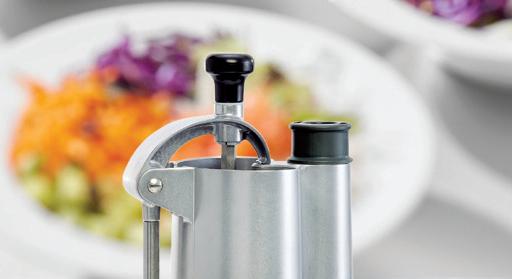
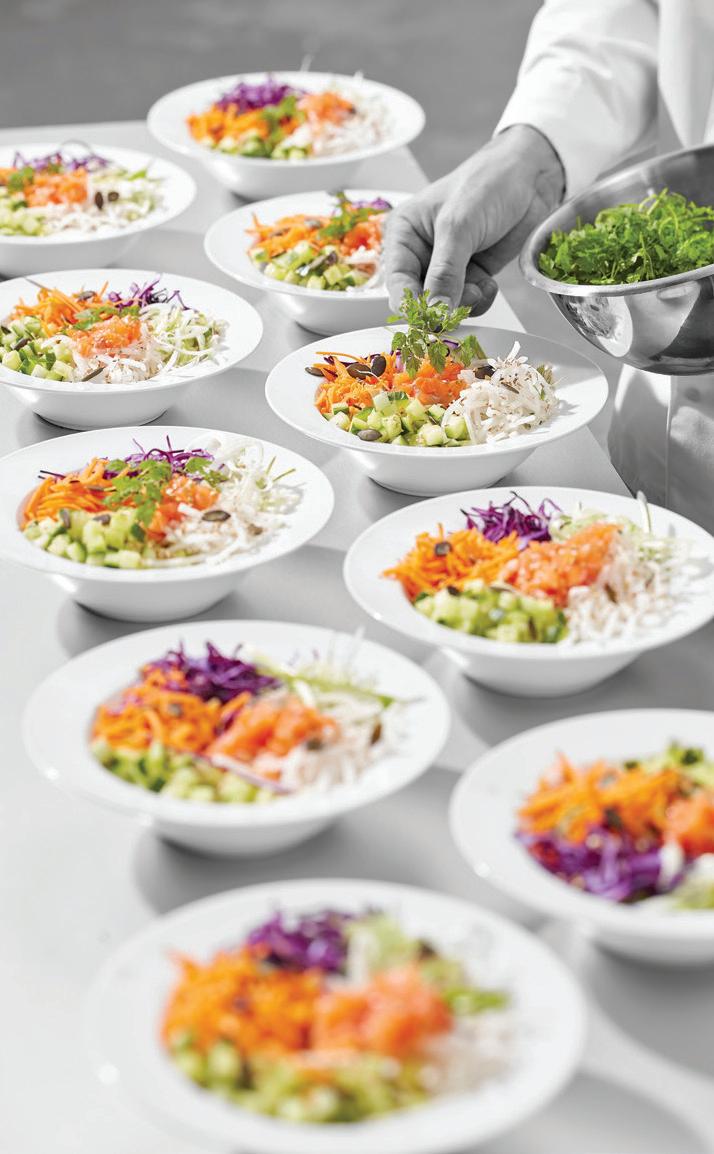
“There is an outsized secular growth happening for Asian concepts,” he says. “Stacked on top of that, everything Korean is cool right now. From K-pop, to K-dramas, to ‘Squid Game’ on Netflix, people are very interested in Korean culture, and with that, demand for Korean cuisine is growing.”
expresses similar sentiments toward authority shifts.
However, he affirms, “The execution doesn’t change.”

While standards may not differ, there is no denying Yadav and Mumtaz felt the pressure of becoming a franchisor.
Yadav says the responsibility of wins and losses falls squarely on the franchisor’s shoulders. Moreover, the biggest hurdle he faced with the purchase of Taco Cabana was the adjustment from a publicly traded company to a privately held one.
“The mindset is different,” Yadav explains.
“There is a culture difference between public and private currency and the way you obtain your capital needs. That switch, and the switch from franchisee to franchisor, is all in the mindset.”
Once Yadav adjusted his outlook and recognized the duty shifts, finding the balance in Yadav Enterprises’ portfolio became seamless.
“I’ve been in the business for so many years, and there’s been time to rebuild and learn from any mistakes,” Yadav says. “Franchising, having mentors, learning the best practices that work for other brands have all made things easier for me to implement and change my mindset."
Things like reworking the front and back of the house, investing in innovations, simplifying product procedures without sacrificing quality, and reforming displays so customers can order products easier are all ways Yadav Enterprises found success in both franchisee and franchisor segments.
Yadav believes the same core business practices that made him successful as a franchisee will be the same ones that grow his brand as a franchisor.
He points to a future revitalization of the Taco Cabana brand and opportunities for additional acquisitions of Jack in the Box locations.
No matter if a brand takes the seat of a franchisor or a franchisee, objectives are still the same, Mumtaz says.
“We want to fix ourselves,” the CEO says. “We want to make sure that our product is good, and that our customers are happy. Every day is a new learning opportunity."
ONES TO WATCH / CONTINUED FROM PAGE 14 FRANCHISE FORWARD / CONTINUED FROM PAGE 16
Sam Danley is the associate editor of QSR. He can be reached at sdanley@wthwmedia.com.
62 JUNE 2023 | QSR | www.qsrmagazine.com
Satyne Doner is a staff writer at QSR. She can be reached at sdoner@ wthwmedia.com.
there were three areas of focus for the brand—consumer experience, operational consistency, and financial attractiveness. This “grow-as-we-go” approach is deliberate, as Lawton’s goal is to get on the market and start learning from consumers immediately.








“We knew that if we put the initial menu into the market, we would get consumer feedback right away,” Lawton says. “We would adapt or evolve in that view as we go ... We have the flexibility to do that.”
From an operational perspective, Farmesa’s kitchen is set up for culinary flexibility.
From fryers to open-flame grills, there are a variety of resources available.


“We went in with a base set of assumptions of how we would operate the menu, but we also knew there would be opportunities to improve,” Lawton says. “We knew the menu would change, so we wanted to have the flexibility there.”
Additionally, the Kitchen United partnership allowed Farmesa to move from concept menu design to market in about six months.
For reference, a traditional restaurant concept would take anywhere from 15 to 20 months.
Lawton explains the decision to operate through a ghost kitchen was made with “the expectation that we would be learning and iterating through the process.”
Kitchen United’s technology platform also aided in Farmesa’s quick arrival onto the market. This platform allows guests to choose their location, shop for meals, and select pickup or delivery.




In fact, guests looking to eat at Farmesa have multiple order options: an onsite kiosk in Santa Monica, takeout from Farmesa’s website, or scheduled delivery through third-party service providers.




Between Farmesa’s menu, diverse kitchen space, and Kitchen United’s partnership, an ability to adjust and grow has been built into the brand’s mold from the beginning.
“I think what you’ll see in the foreseeable future for us is continuing to tinker or make bigger changes based on what we learn,” Lawton says. “We want to get this proposition as clear and as consistent for consumers as we believe it should be.”
Anchor Packaging .......................... 27 anchorpac.com
ASSA ABLOY Entrance Systems ......... 6 704-221-2068 | assaabloyentrance.us



























































































Cholula ........................................... 15 855-246-5852 McCormickForChefs.com/products/cholula
Ferrero USA ..................................... 3 800-408-1505 | ferrerofoodservice.com

Ghirardelli ....................... Inside Front 800-877-9338 | Ghirardelli.com
HM Electronics ............................... 37 866-577-6721 | hme.com/nexeo Loomis .............................. Inside Back 713-435-6700 | loomis.us

















































McCormick Cattlemen’s .................... 9 855-552-9797 McCormickForChefs.com/cattlemens














INNOVATE / CONTINUED FROM PAGE 61
Satyne Doner is a staff writer at QSR. She can be reached at sdoner@ wthwmedia.com.
National Loss Prevention ................ 10 312-819-4900 | nationallps.com National Sign Systems ....... Back Cover 614-850-2540 | nationalsignsystems.com NorthAmerican Bancard ................. 45 866-481-4604 | NYNAB.com Phade ............................................ 39 phadeproducts.com Ready Access ................................. 46 800-621-5045 | ready-access.com RF Technologies .....................5, 13, 63 800-598-2370 | rfdrivethru.com Robot Coupe .................................. 62 800-824-1646 | robot-coupe.com Steak n’ Shake ................................. 17 steaknshakefranchise.com/opportunity TransAct Technologies .................... 33 877-748-4222 | transact-tech.com/qsr-mag Vito Fryfilter ...................................41 847-859-0398 | vitofryfilter.com SMART CHAIN 47-60 Ecolab .......................................... 53 800-529-5458 ecolab.com/solutions/machine-warewashing-qsr Sani Professional .......................... 49 SaniProfessional.com/TrustedPartner/QSR Tronex .......................................... 55 800-833-1181 | tronexcompany.com For more information on these companies, visit www.QSRmagazine.com/connect/
INDEX www.qsrmagazine.com | QSR | JUNE 2023 63
AD
Shawn Lalehzarian
Cofounder and CEO
THE RED CHICKZ
What was your first job? My first job when I got to the U.S. was working as a dish washer at a local restaurant in San Diego.
What’s your favorite menu item at Red Chickz? Chickz Tenders plate.
What’s your favorite cuisine aside from chicken? Beef Ribs BBQ. Who inspires you as a leader? Chipotle CEO Brian Niccol and John Addison, the former CEO of Primerica. What’s the best piece of advice that other restaurant executives should hear? One word: “Self-Awareness.”
What are some of your interests outside of work? I do professional photography as a hobby. I also like to keep my mind moving by reading a lot of books and watching documentaries.
As an Iranian immigrant first arriving in the U.S., I looked for a job that didn’t require much speaking and secured a position as a dishwasher at a local restaurant in San Diego. After picking up some communication skills and learning English through this initial role, my job turned into a passion as I uncovered my dream of opening a restaurant. I worked hard to move up the ranks, from server to cook, before finally landing a management position and working with larger brands such as Wolfgang Puck, Starbucks, California Pizza Kitchen, and Chili’s.
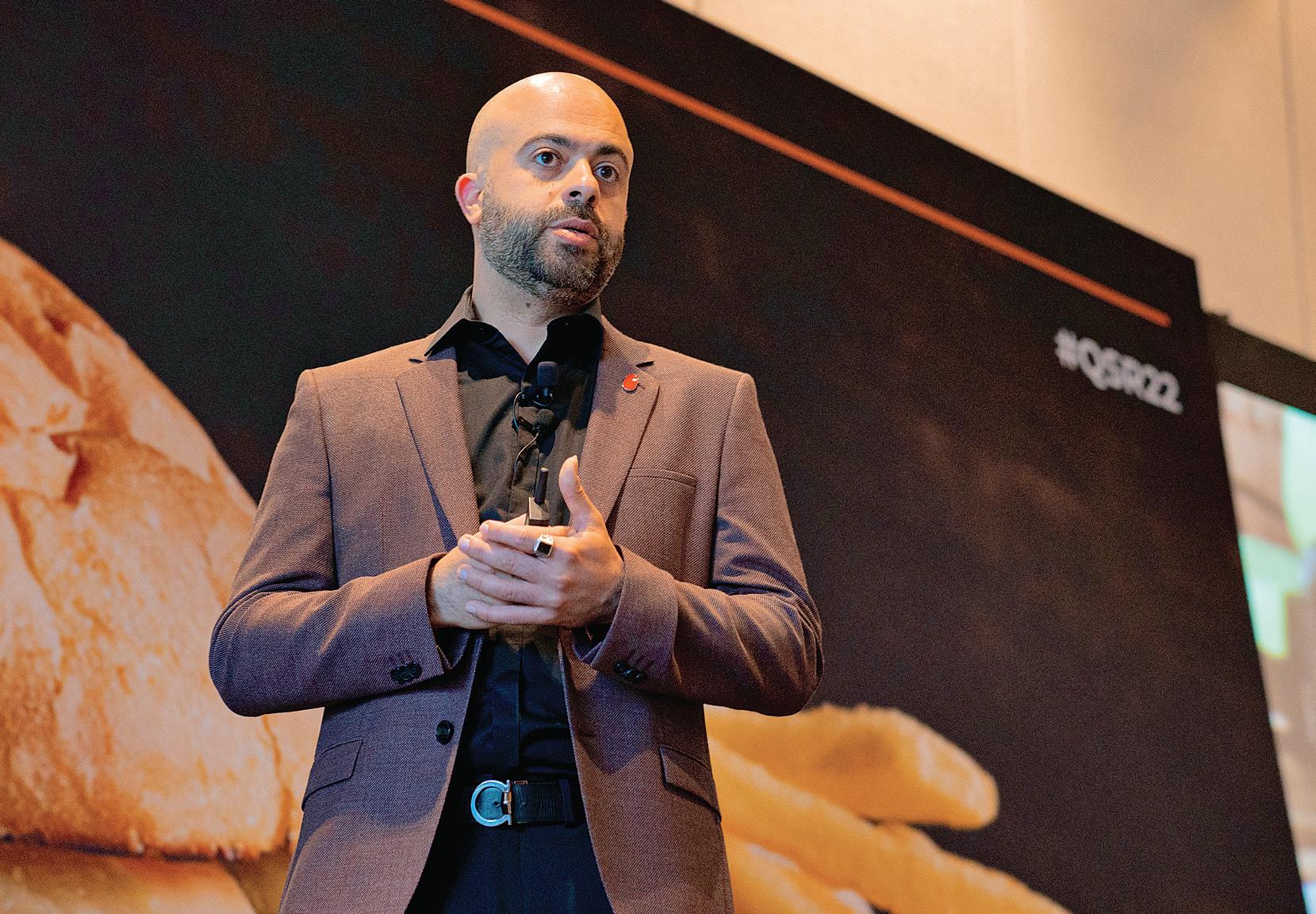
My firsthand experience working in multiple restaurant roles, combined with a determination to be successful in my new home country, fueled an idea to take advantage of the latest popular food trend at the time, Nashville hot chicken. So I set out for Nashville on a discovery mission to learn as much as I could about the dish, asking everyone I encountered, from Uber drivers to hotel bellman, if they knew how to make hot
chicken. Filled with new knowledge, I then flew back to L.A. with the foundation of a new restaurant concept, The Red Chickz.
Since perfecting the recipe and opening the brand’s first location in 2018, The Red Chickz has been serving Los Angelenos a West Coast spin on their favorite Southern dishes: like madeto-order Nashville hot chicken tenders and sandwiches available in six different spice levels, fried shrimp, classic sides like potato wedges and coleslaw, and more unconventional items like chicken and French toast and hot chicken tacos.
In addition to the brand’s variety of unique menu items, The Red Chickz stands out in the LA Nashville hot chicken scene thanks to a massive following on social media. The brand has gained 150,000 followers on Instagram and over 1.2 million followers on TikTok by posting mouth-watering content featuring menu items. This insane amount of attention propelled The Red Chickz’s success even further, resulting in our decision to begin franchising in 2021.
BACK PAGE START TO FINISH THE RED CHICKZ 64 JUNE 2023 | QSR | www.qsrmagazine.com
cash handling

Cash handling can be a huge time and labor commitment – something restaurant operators don’t have enough of. SafePoint is comprised of smart safe technology, change order management, armored transportation, and our customer reporting platform, and is designed to make your in-store cash handling quick and easy. Leave it to the pros!
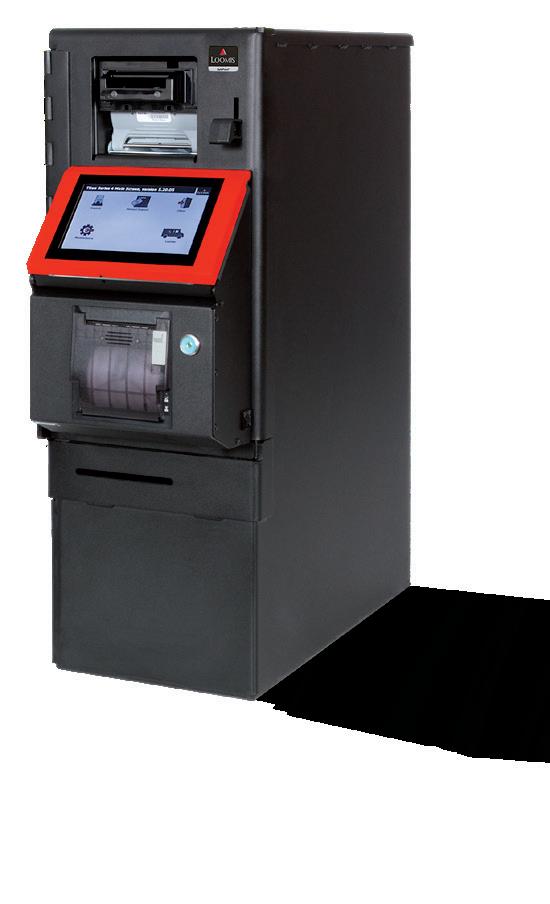
download the Ultimate guide for restaurant Cash Handling

Everything you need to know to increase efficiency, mitigate risk, and reduce costs associated with in-store cash handling.
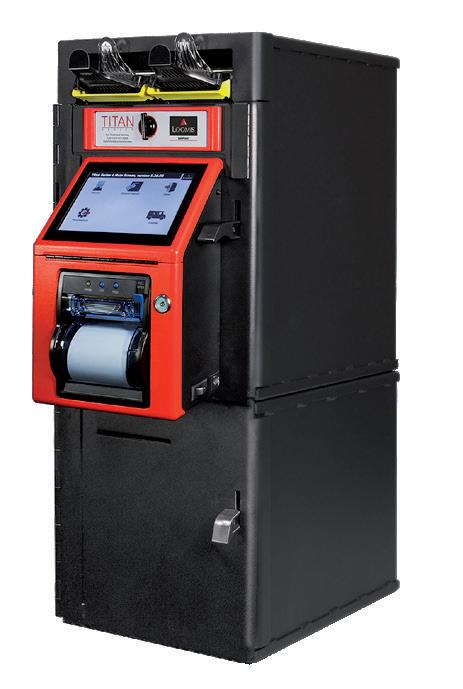
Simplify cash management in-store and across your operations with SafePoint. GET A HOLD OF YOUR Save on labor costs Improve visibility of funds Leverage advanced reporting Increase security of cash Experience bestin-class service Reduce risk to staff & customers 2500 CityWest Blvd., Suite 2300. Houston, TX 77042 www.loomis.us 713-435-6700
DRIVING YOUR BUSINESS FORWARD
We specialize in creating drive-thru systems that are tailored to your specific needs, ensuring that your brand’s messaging is effectively conveyed to your customers. From the color scheme to the menu design, our team will work with you to create a system that is not only aesthetically pleasing but also delivers a seamless customer experience.
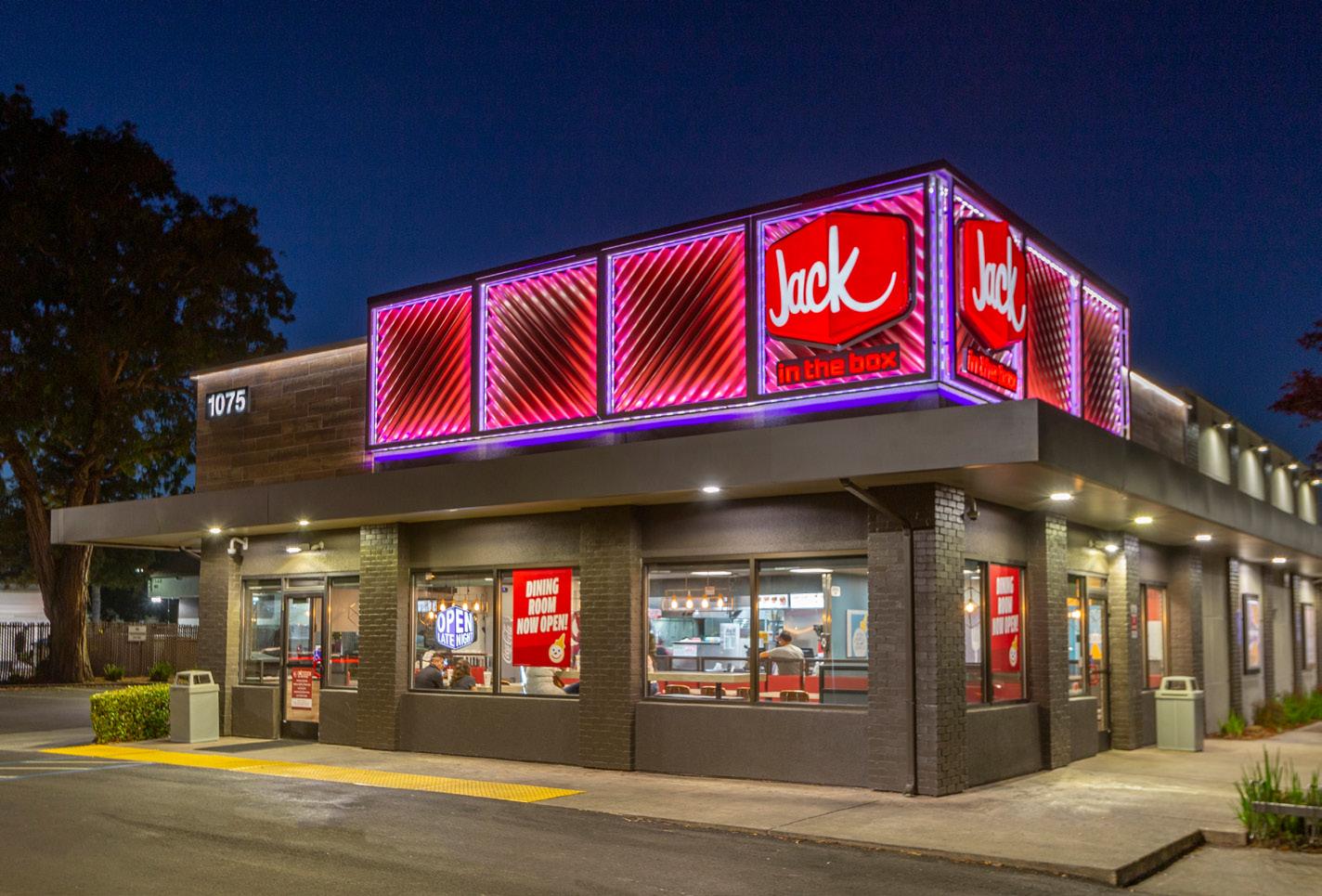

For more information call us at 1-614-850-2540, email us at sales@natsignsys.com or visit our website www.nationalsignsystems.com.
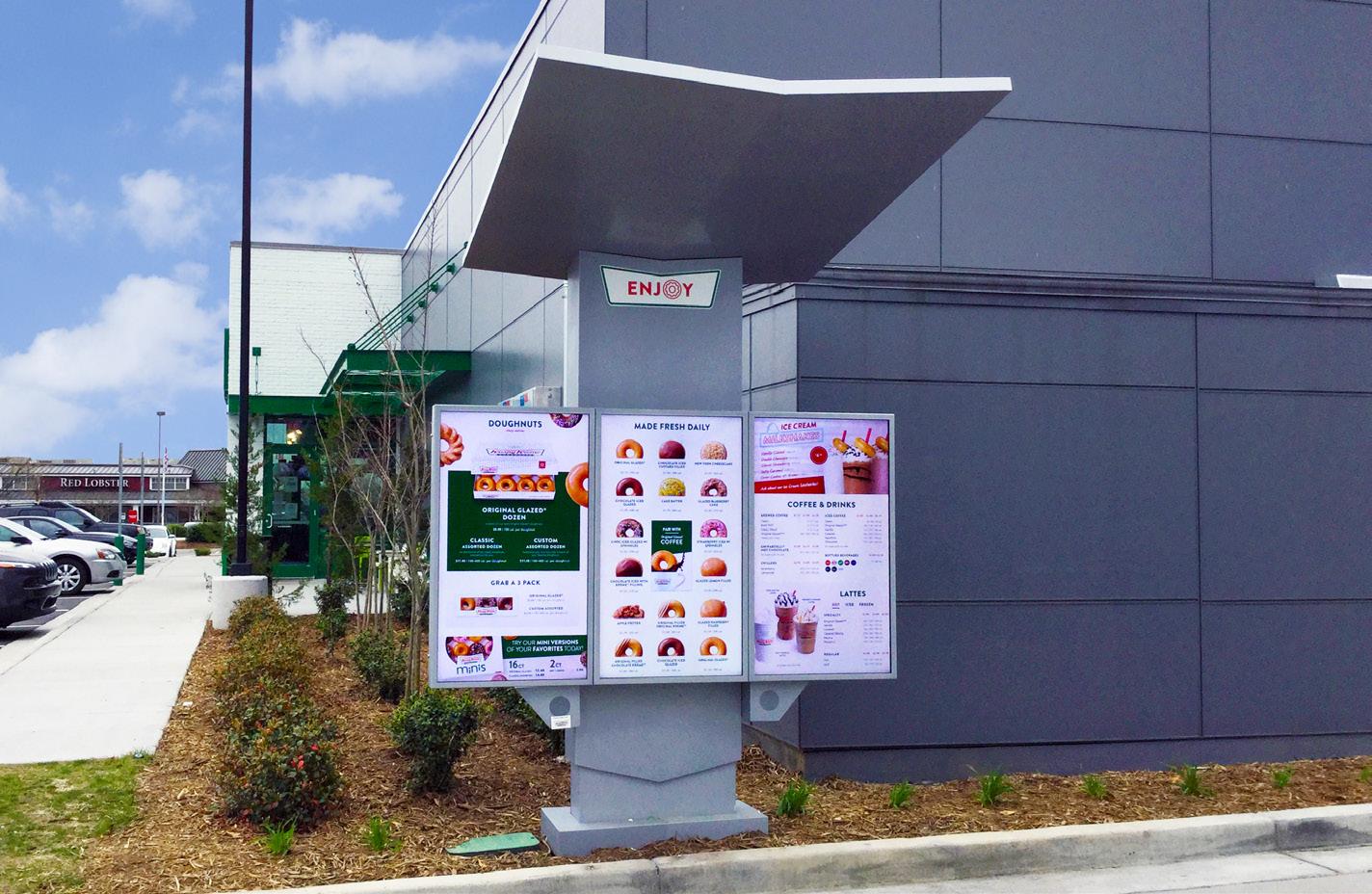
CONSTRUCTION
CUSTOMIZABLE
IN
HIGH-QUALITY
FULLY
MADE
THE USA HIGH-RESOLUTION DISPLAYS
BUILDING SIGNAGE DRIVE THRU SYSTEMS REVOLUTION® DIGITAL MENUBOARDS










 BY SATYNE DONER
BY SATYNE DONER



 BY SAM DANLEY
BY SAM DANLEY

 DANLEY
DANLEY






















































































































































 Aman
Aman

 HUNGRY HOWIE’S
HUNGRY HOWIE’S

































































 Maxwell FULTON PRESIDENT OF FULTON HOLDINGS
JIMMY JOHN’S FRANCHISEE AGE: 24
Maxwell FULTON PRESIDENT OF FULTON HOLDINGS
JIMMY JOHN’S FRANCHISEE AGE: 24

 / BY SAM DANLEY
/ BY SAM DANLEY














































































































































































































































































